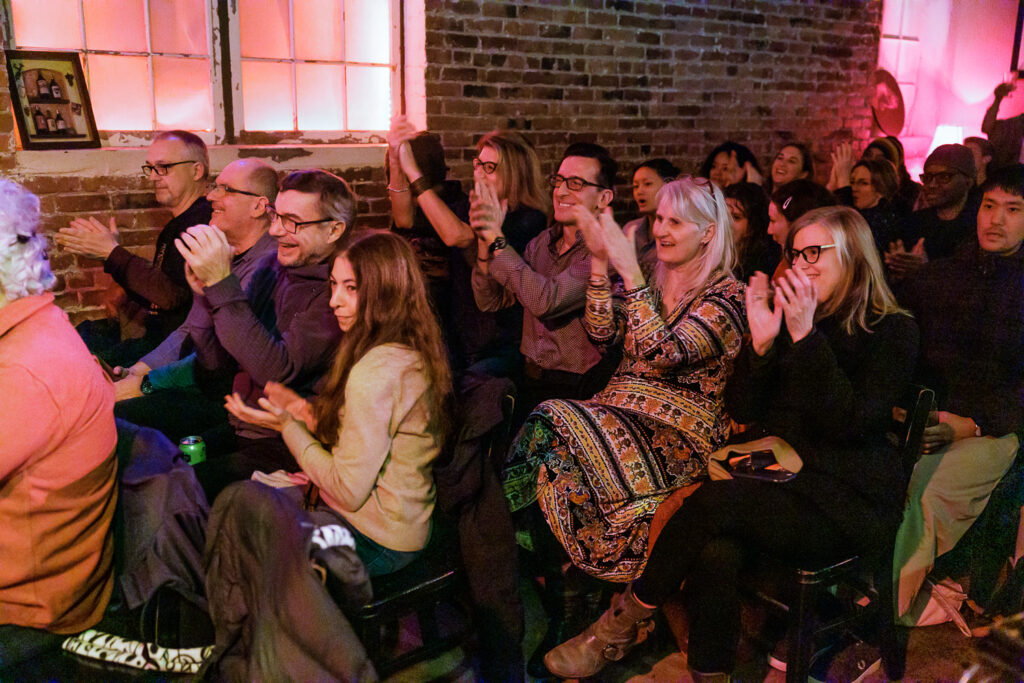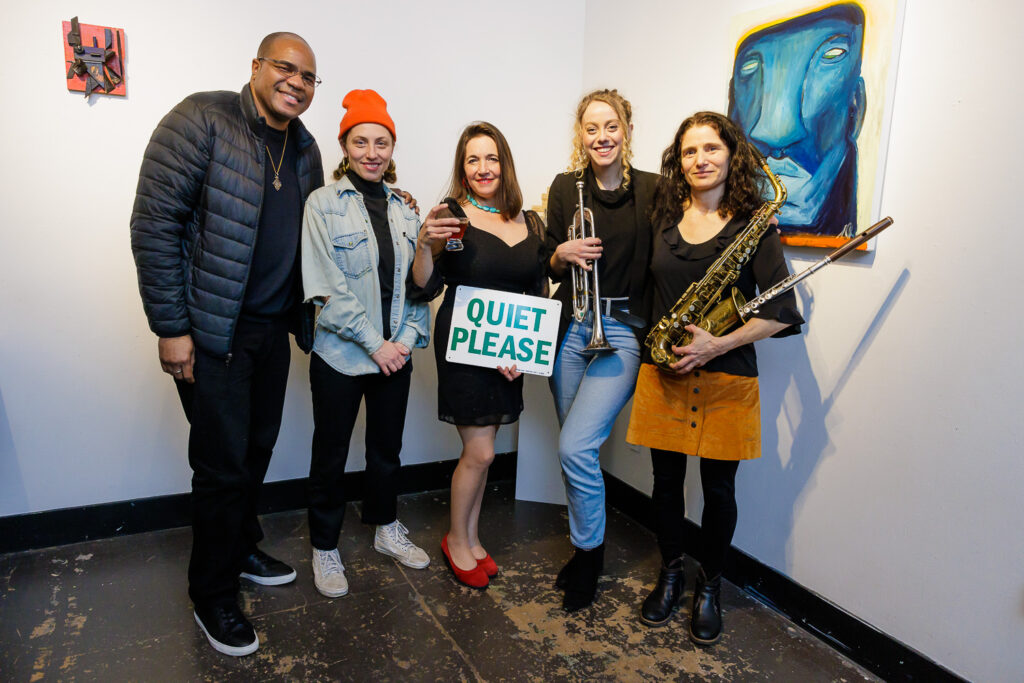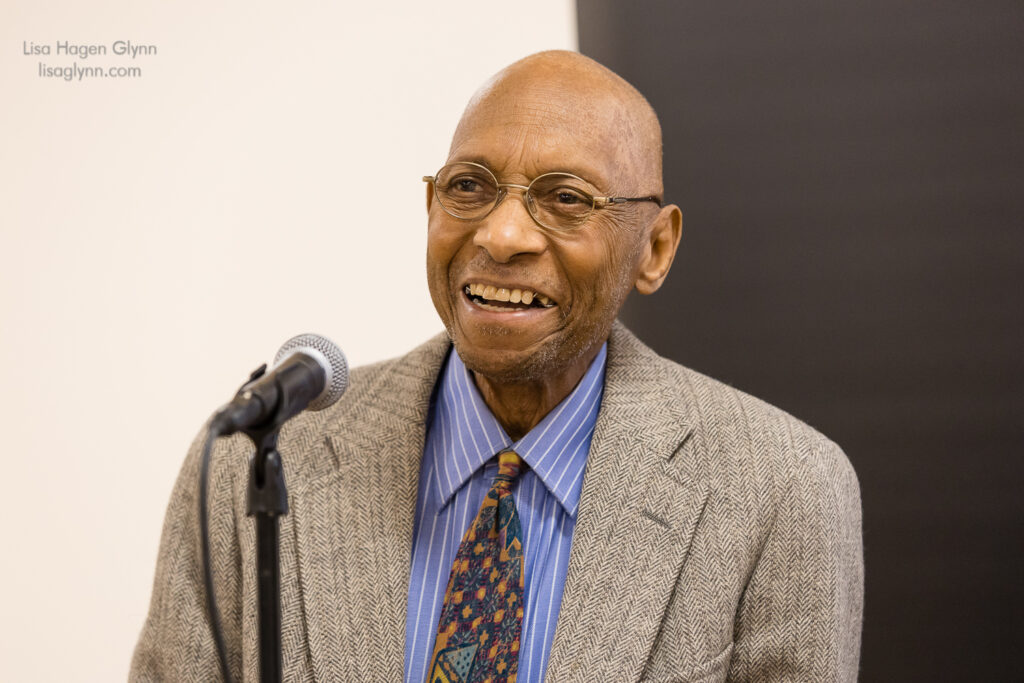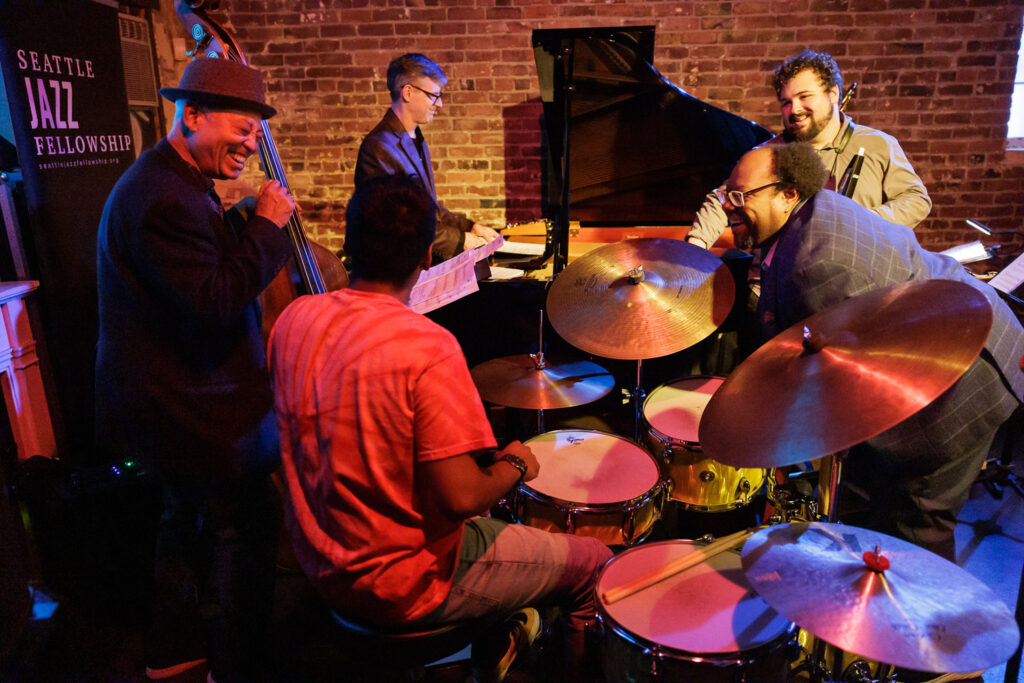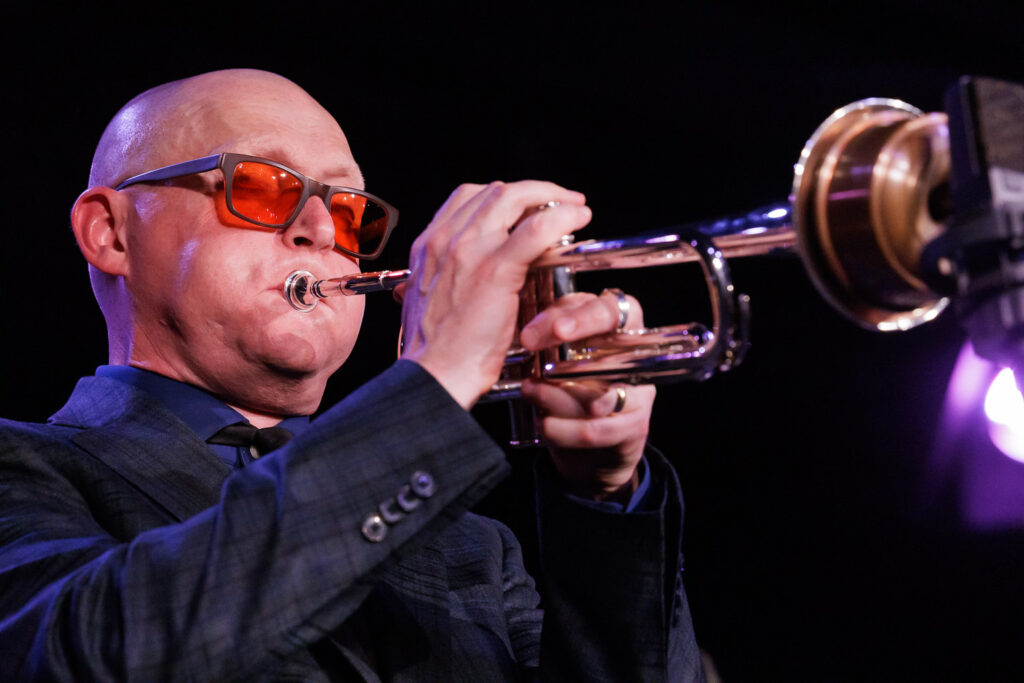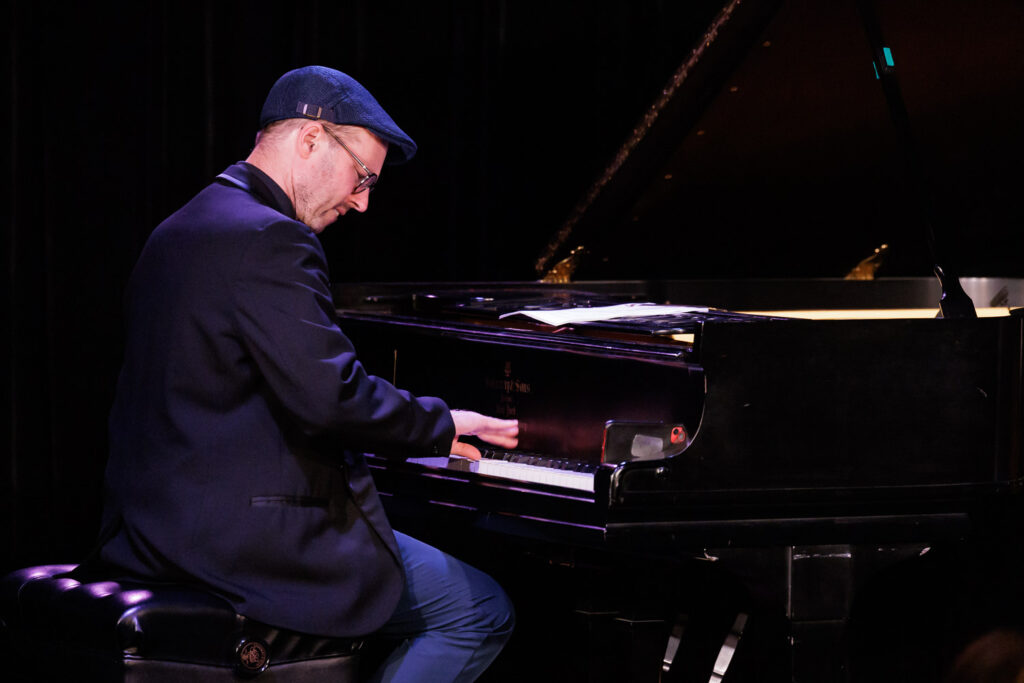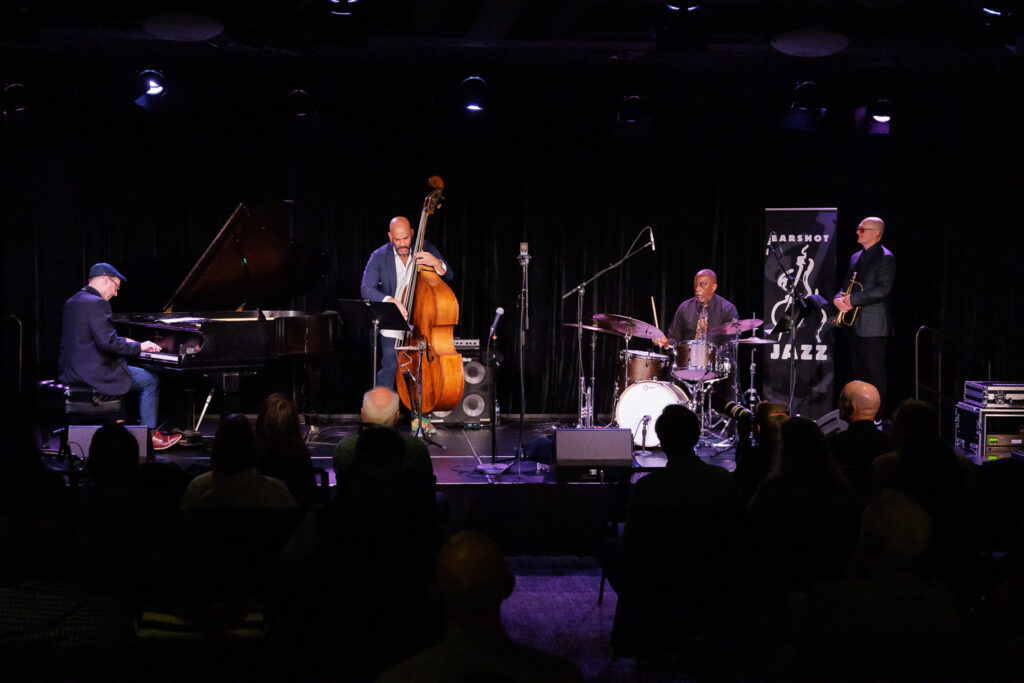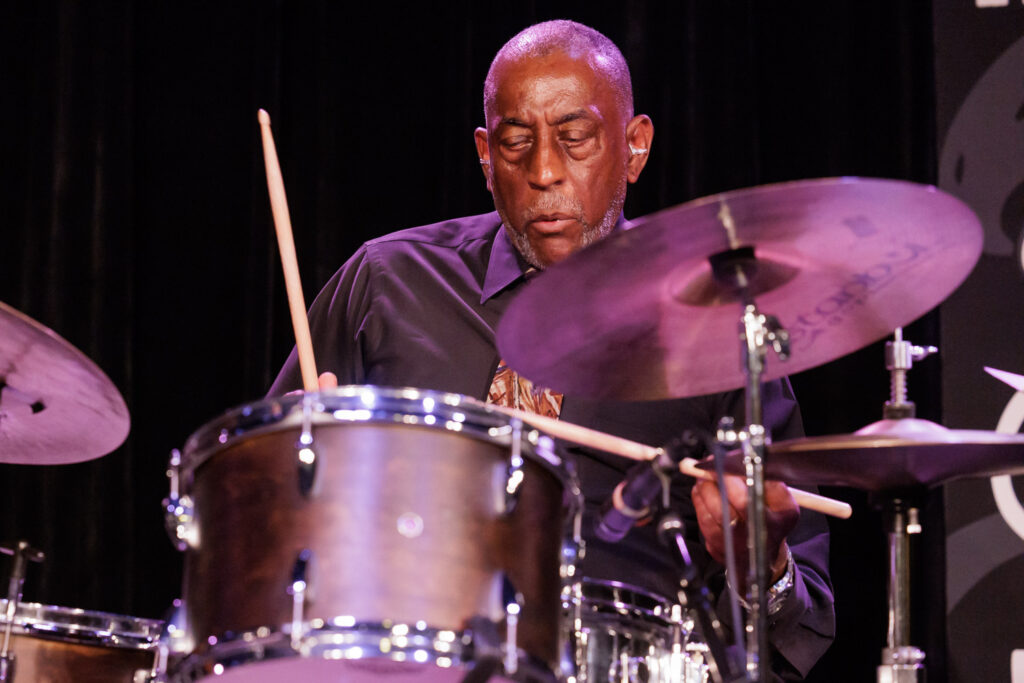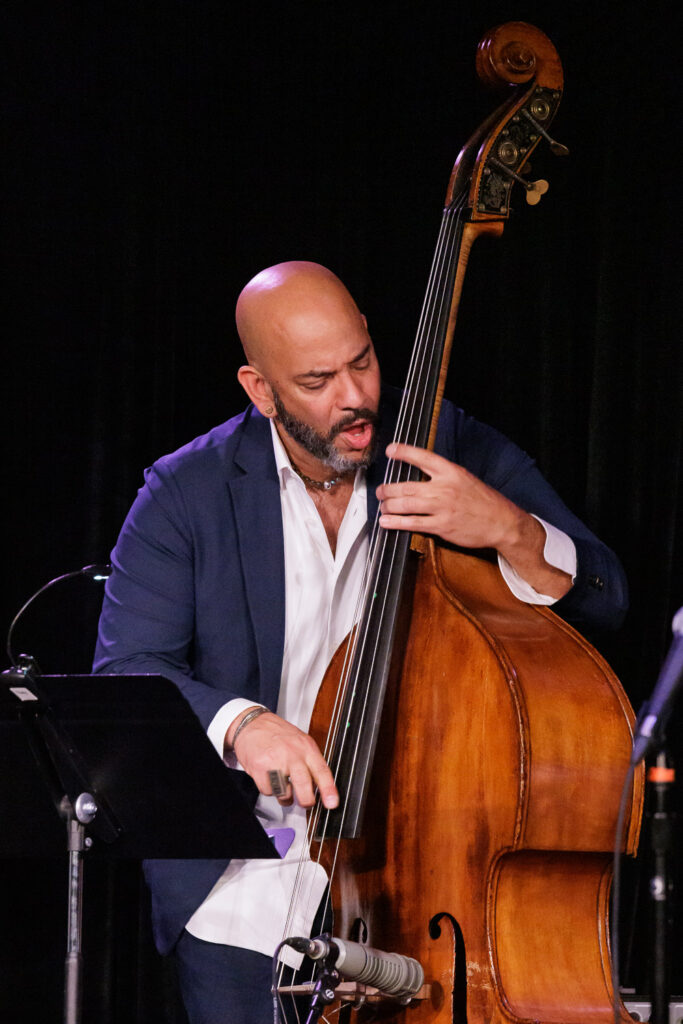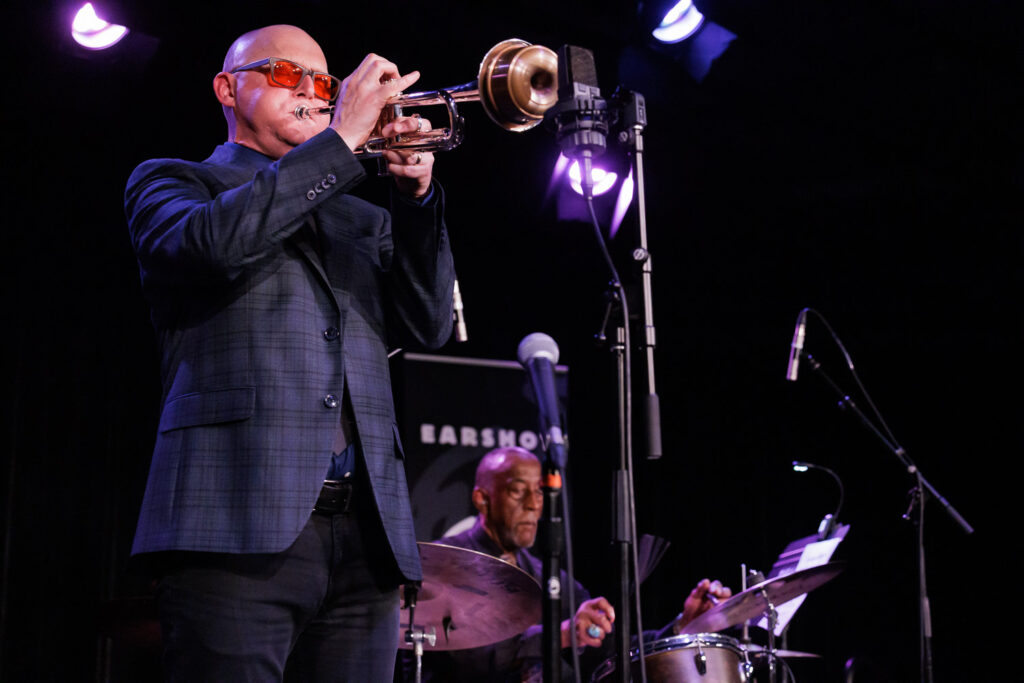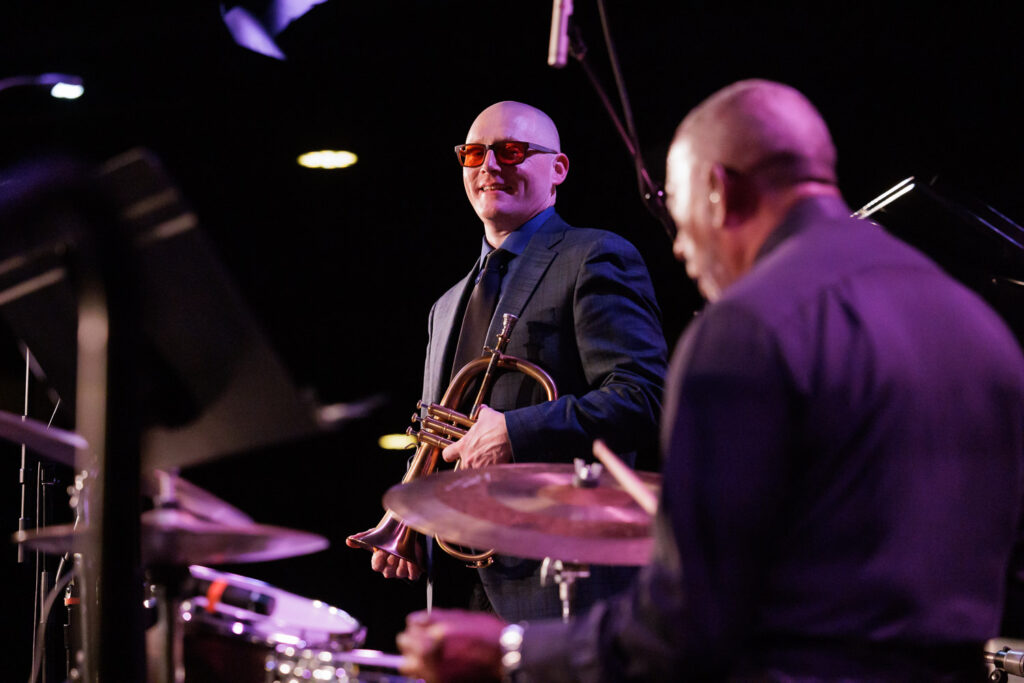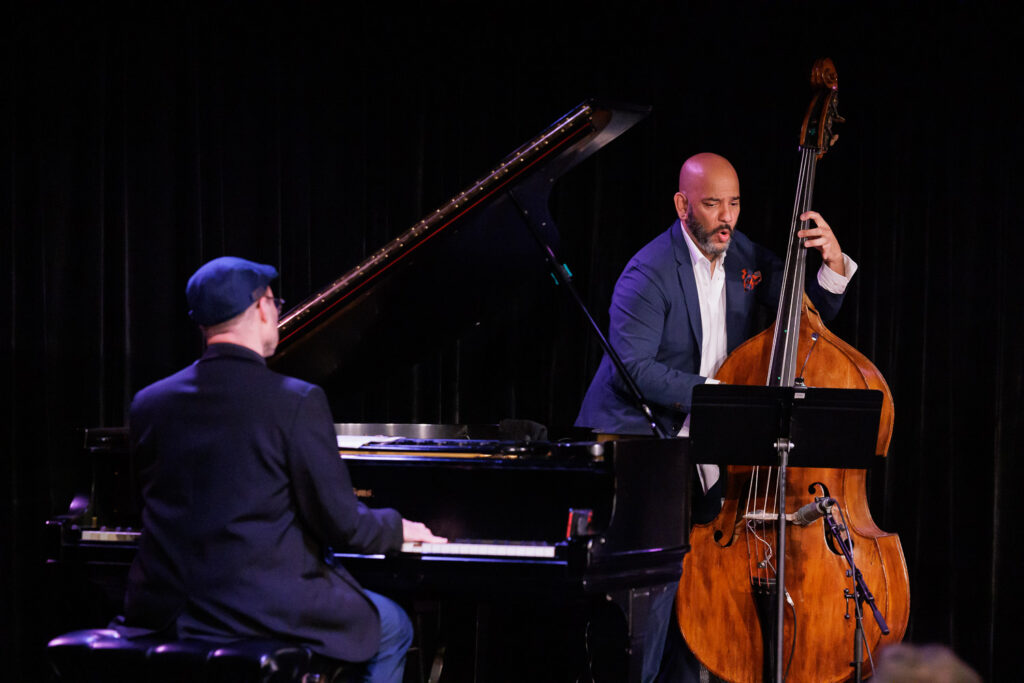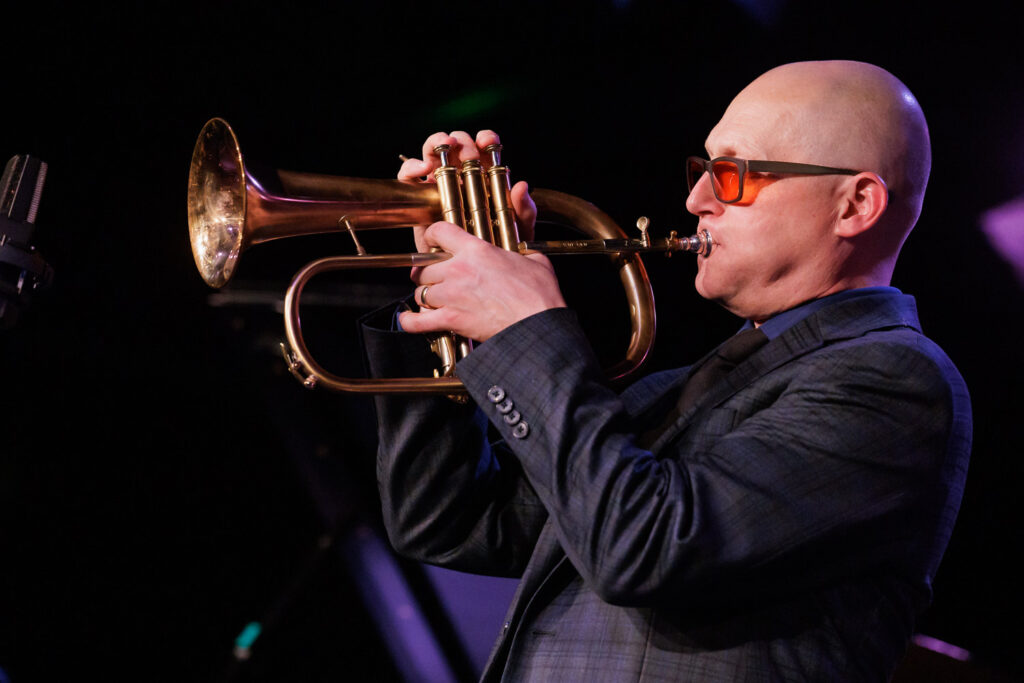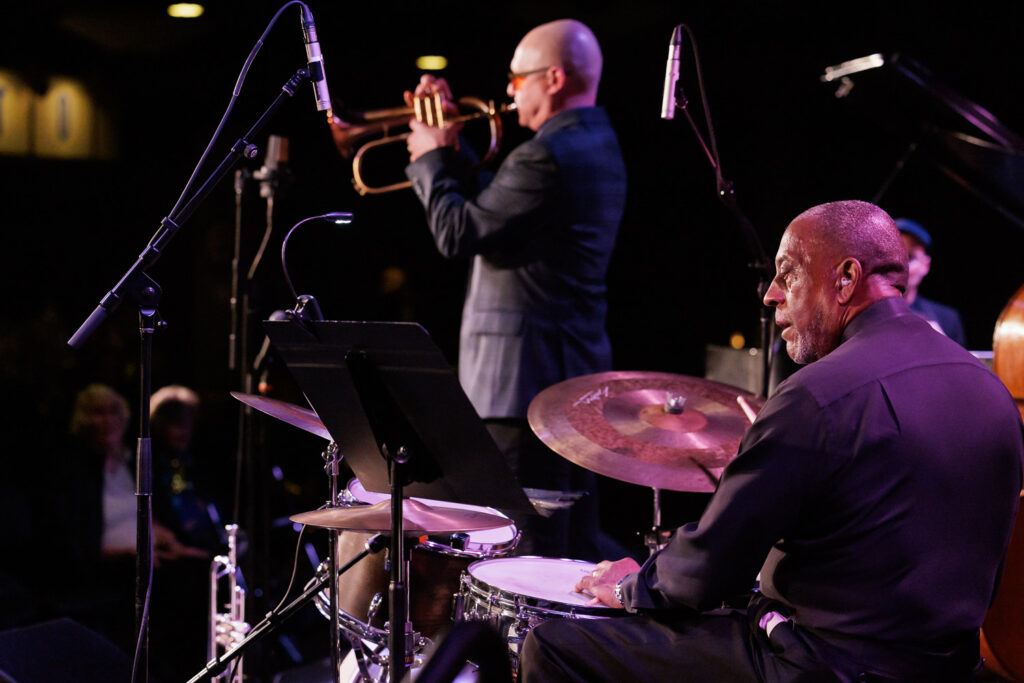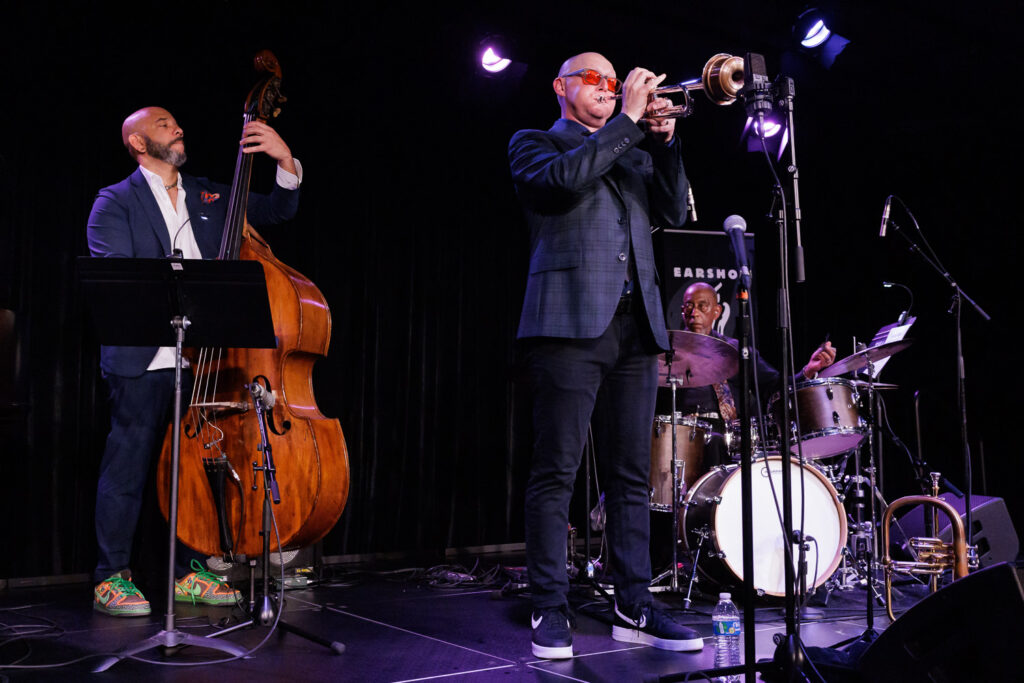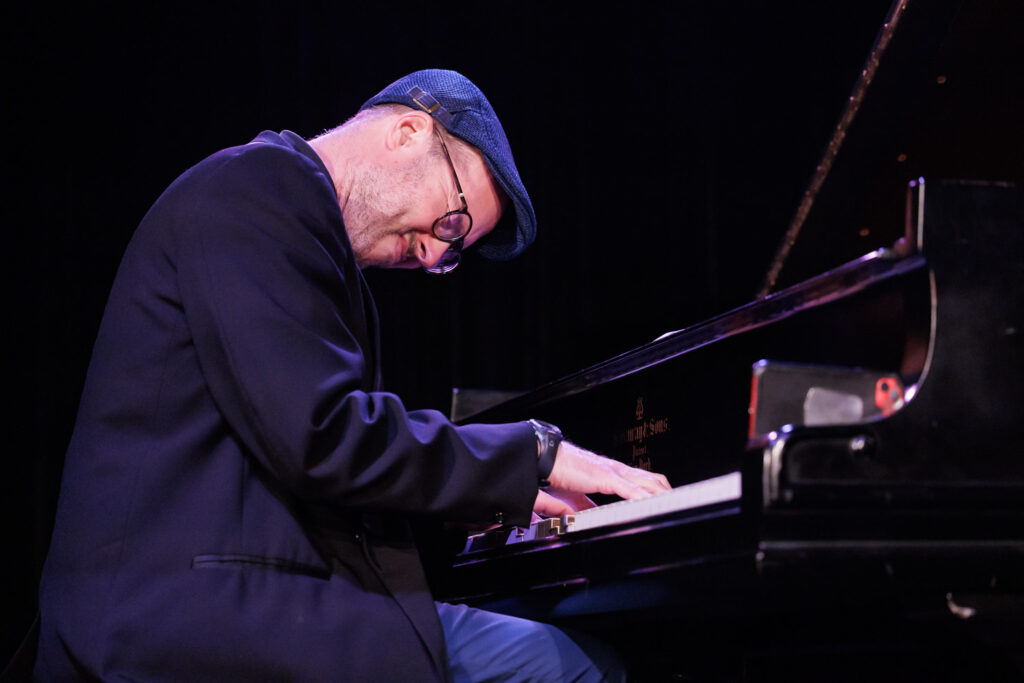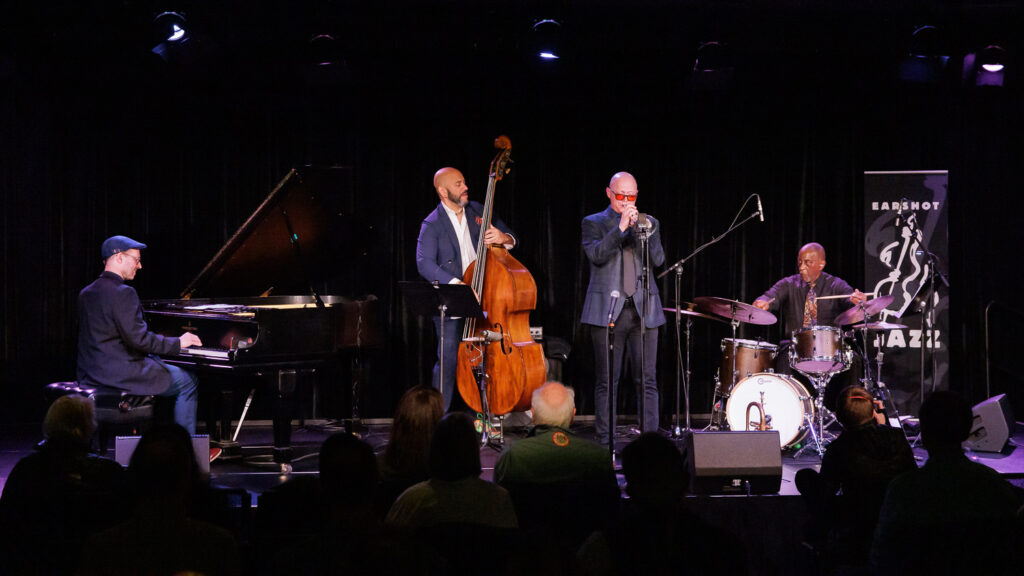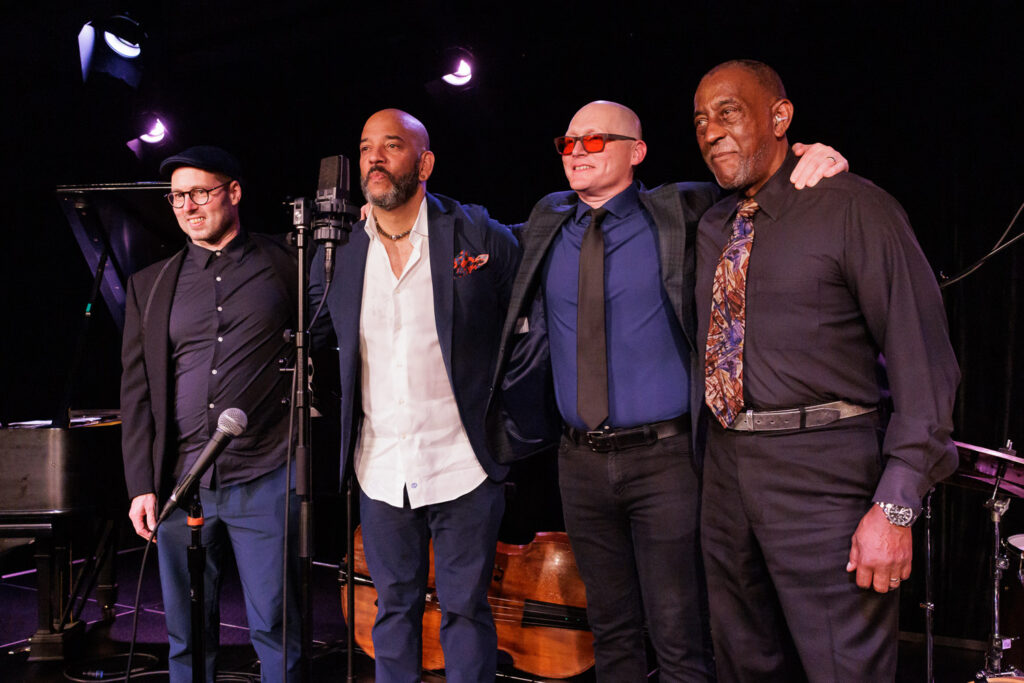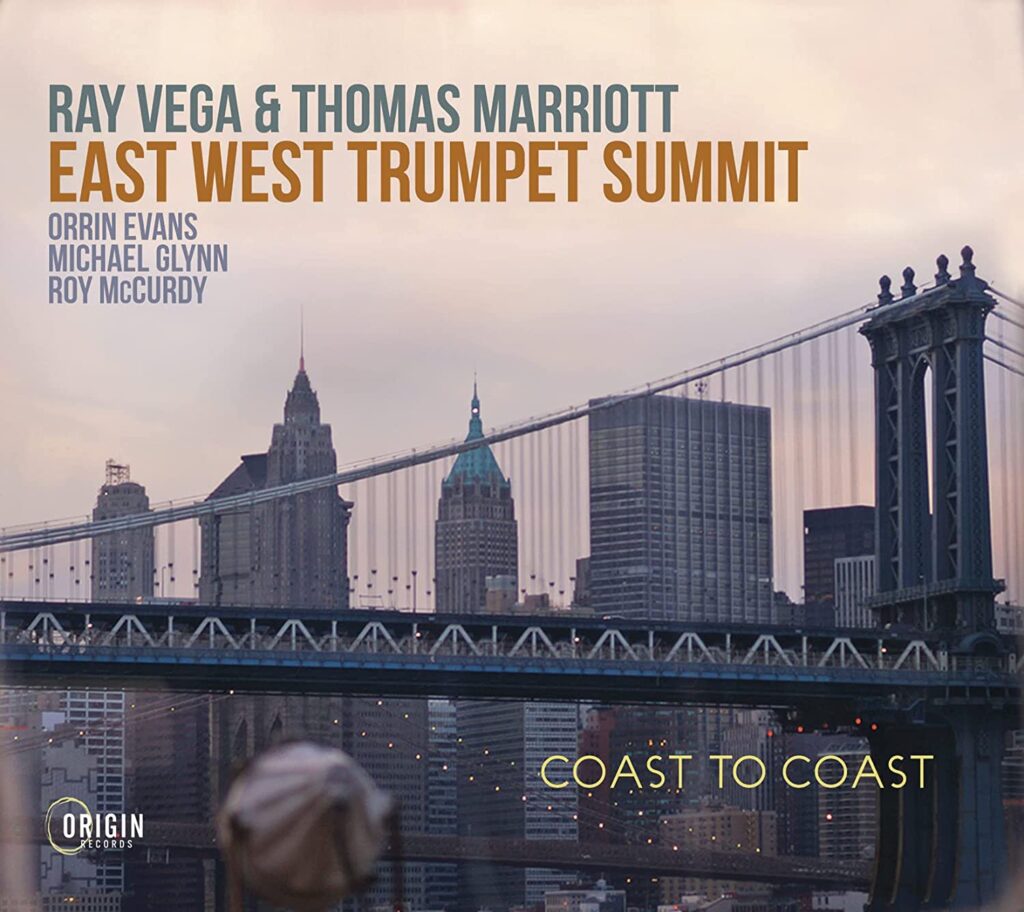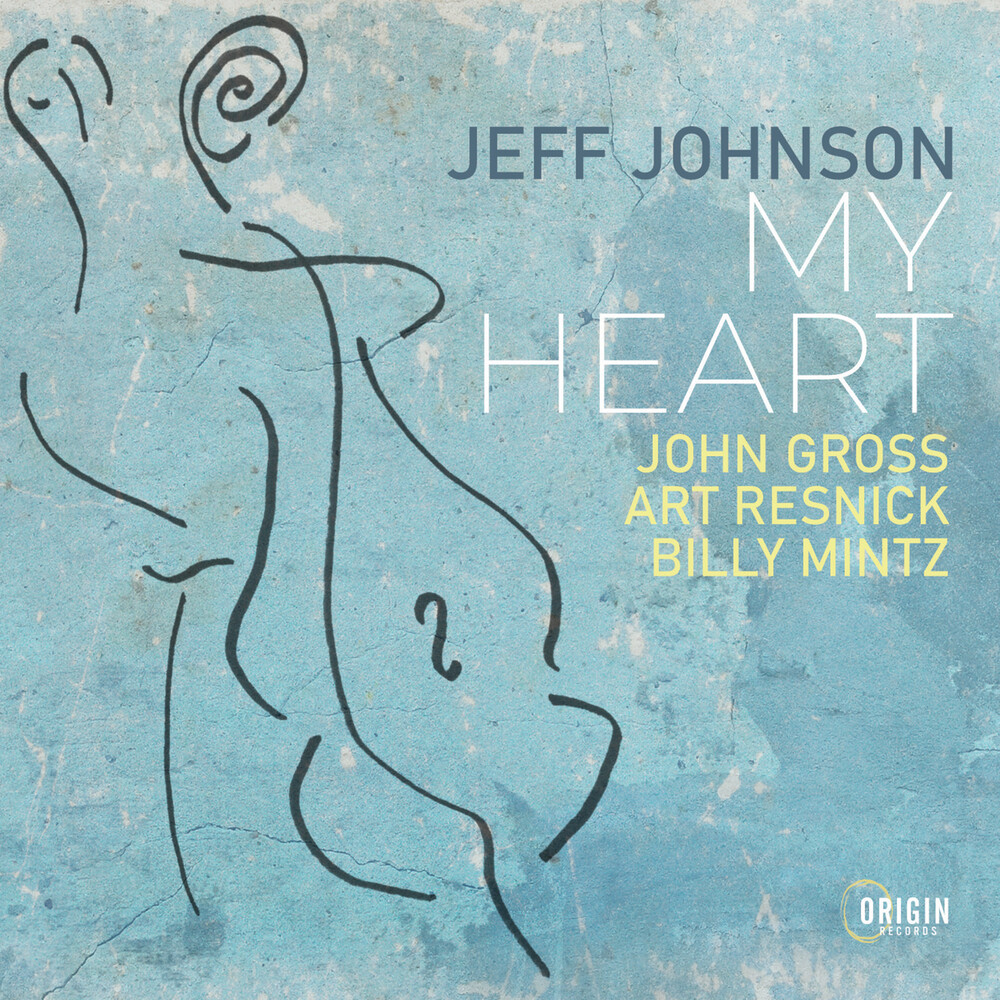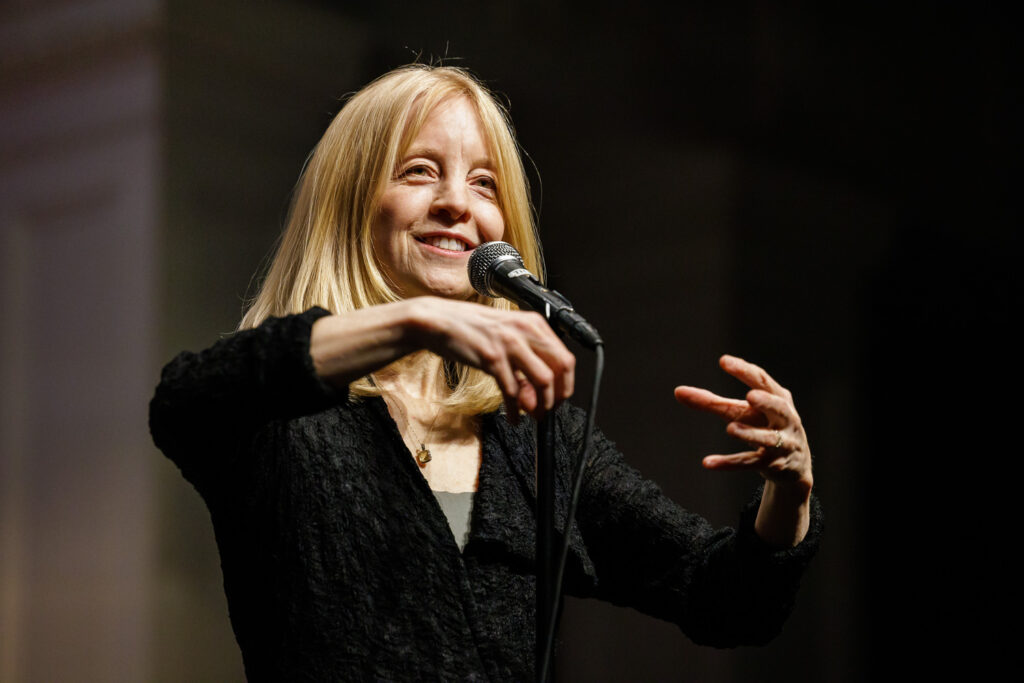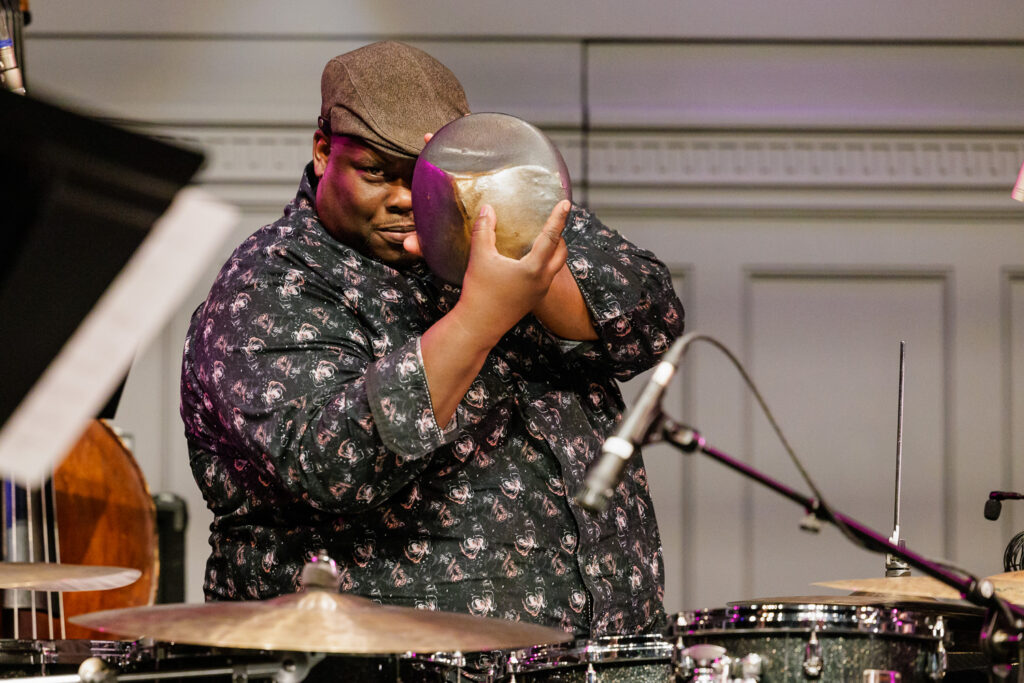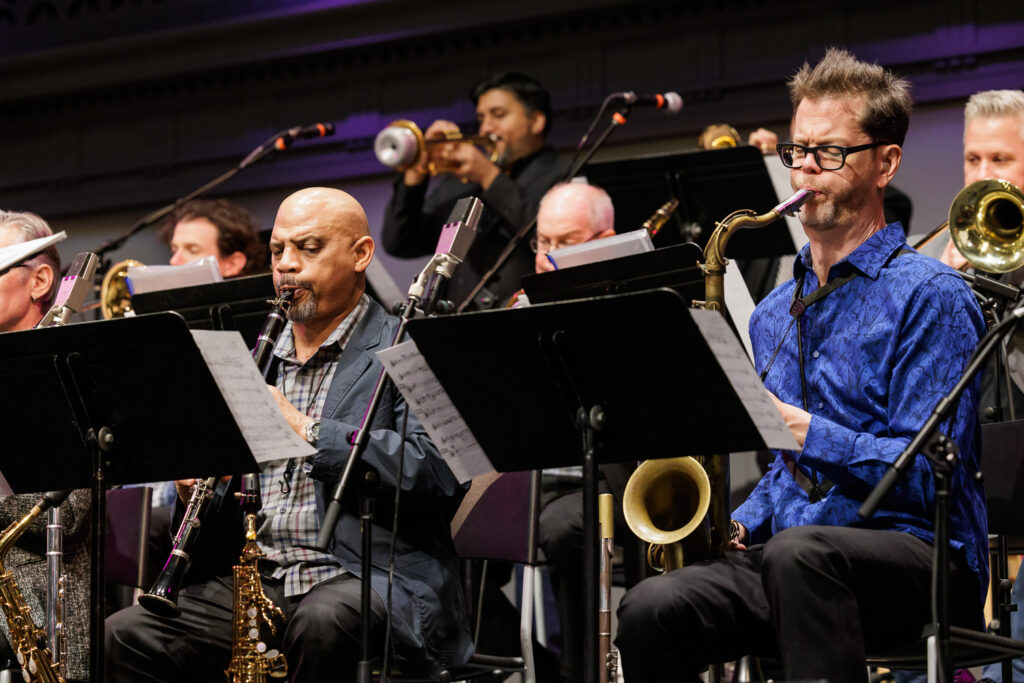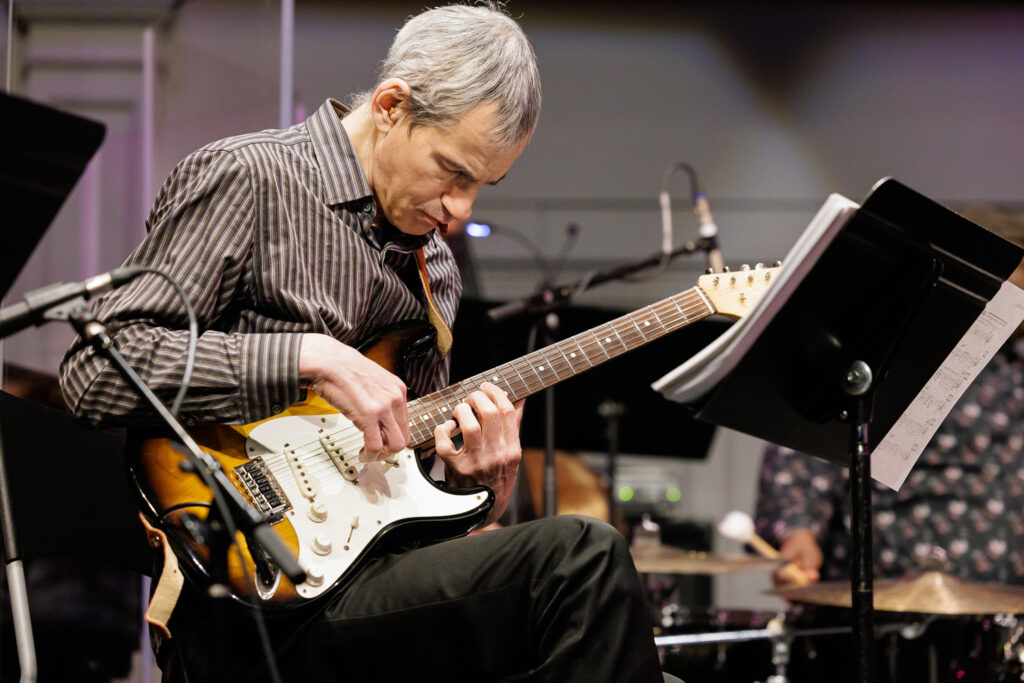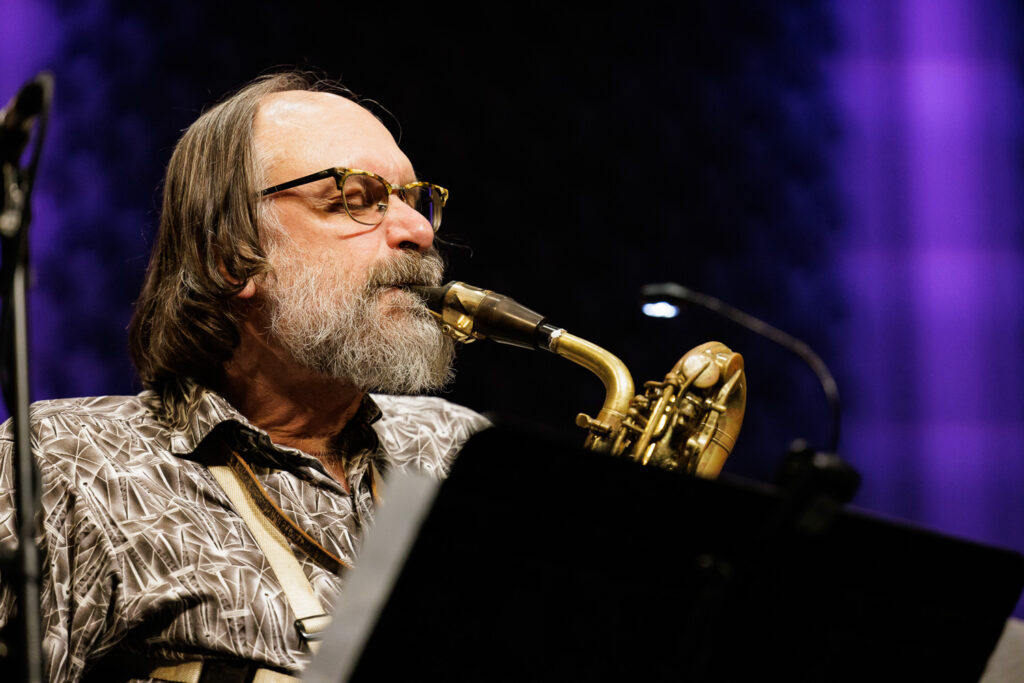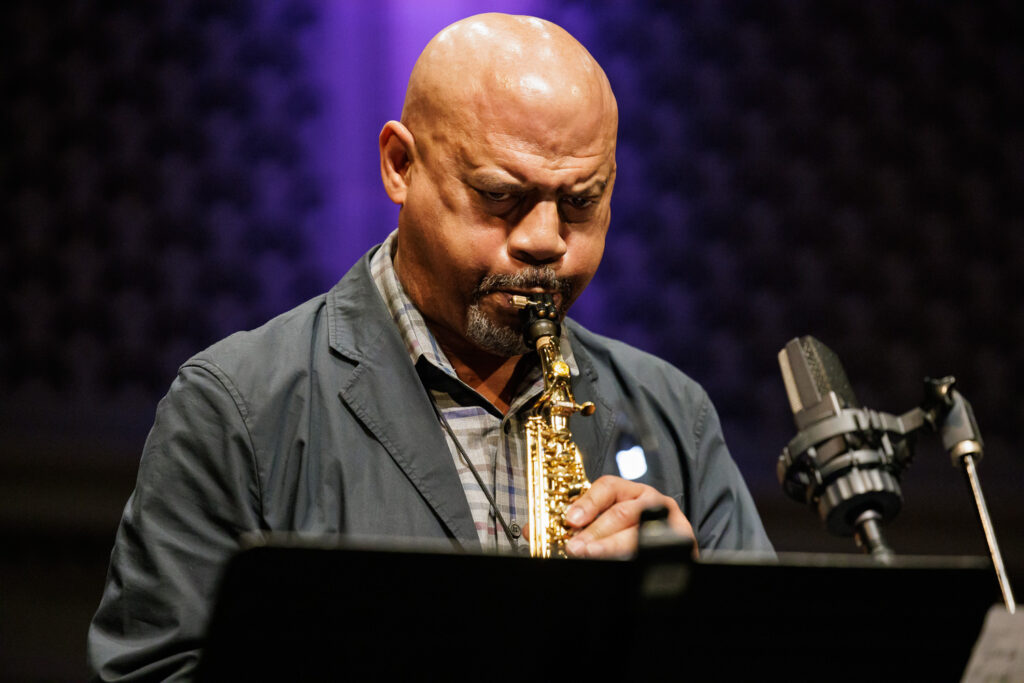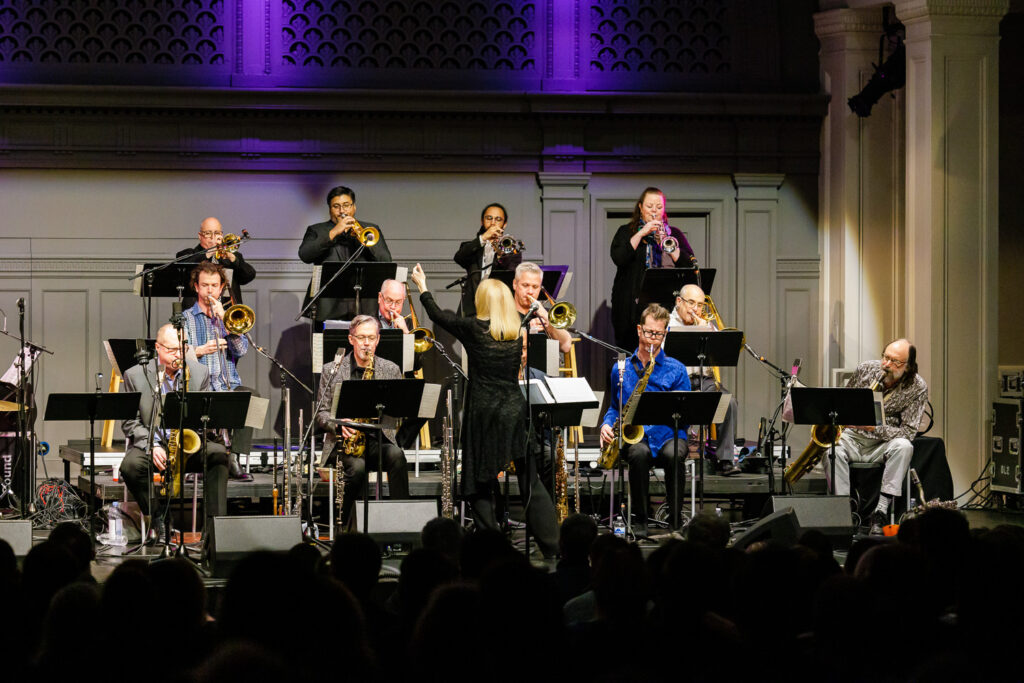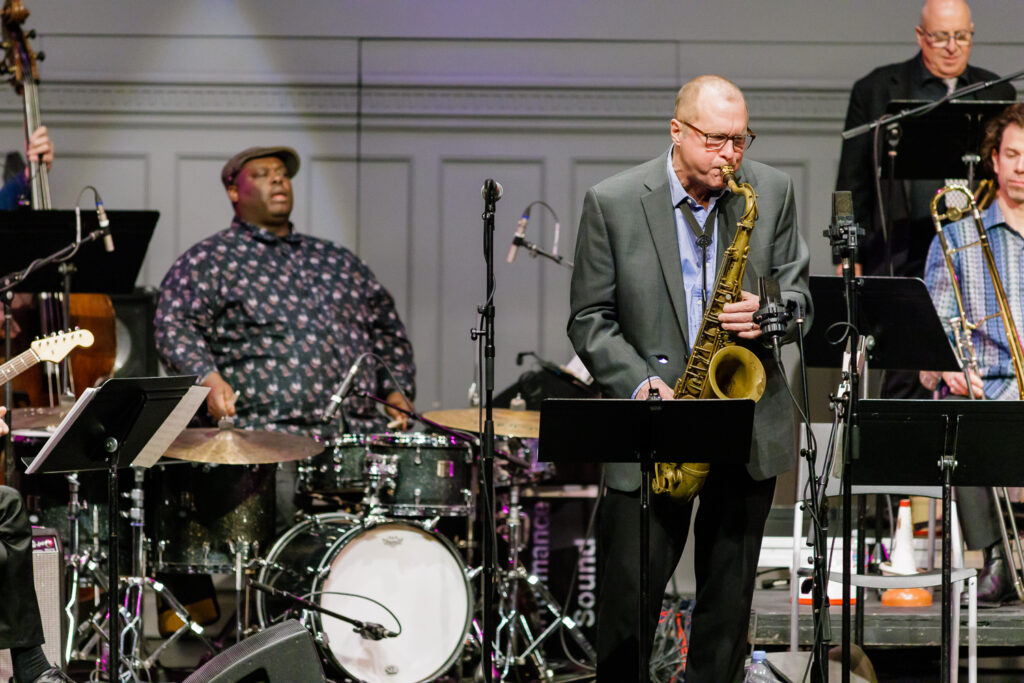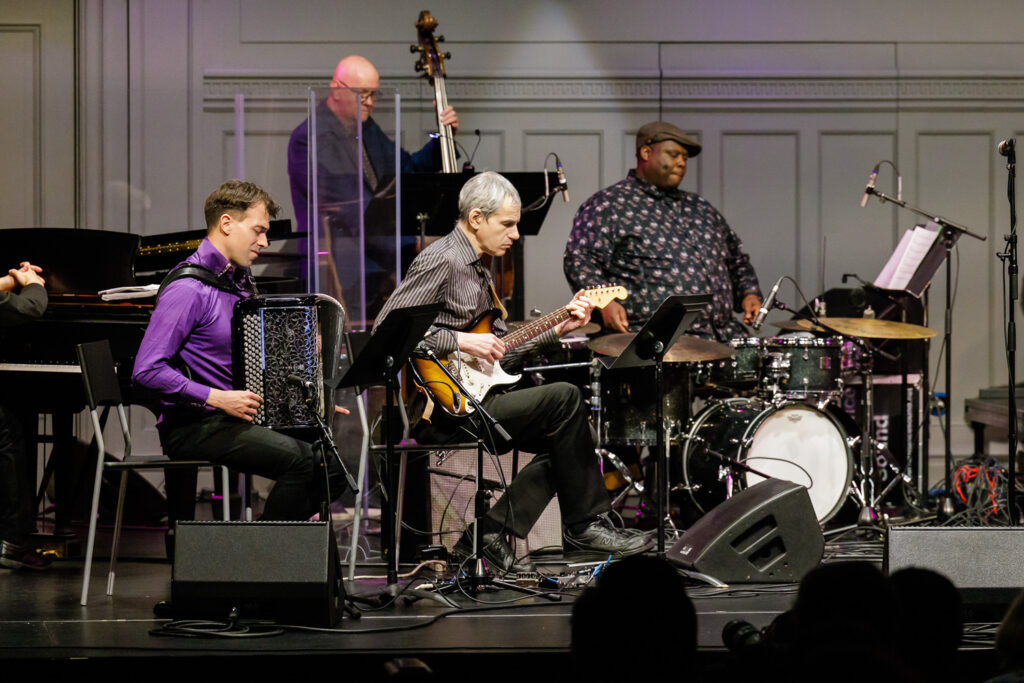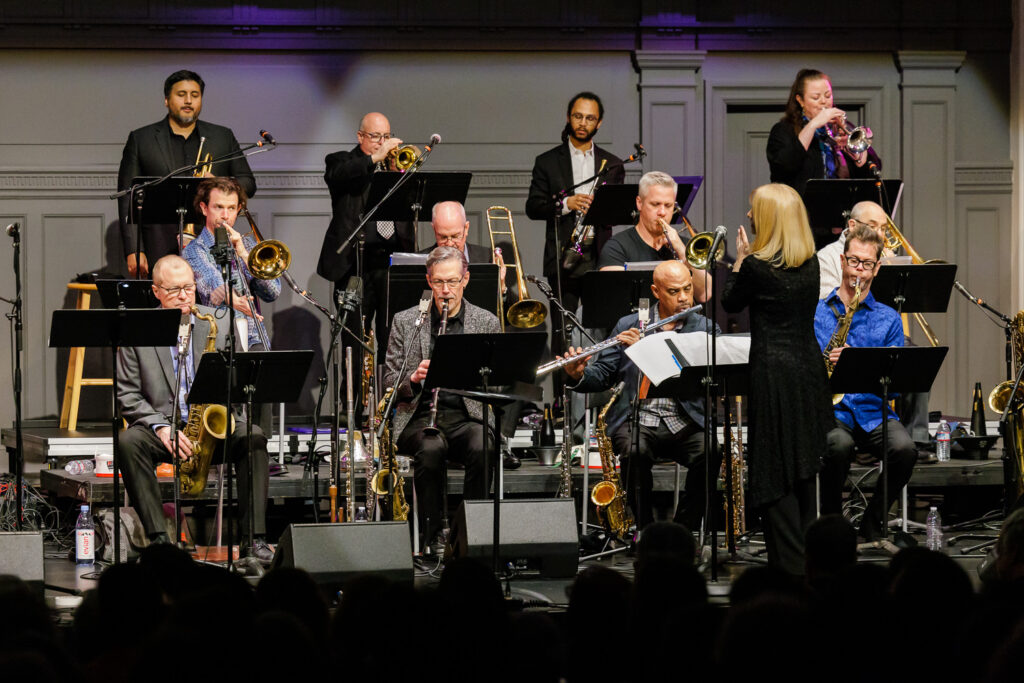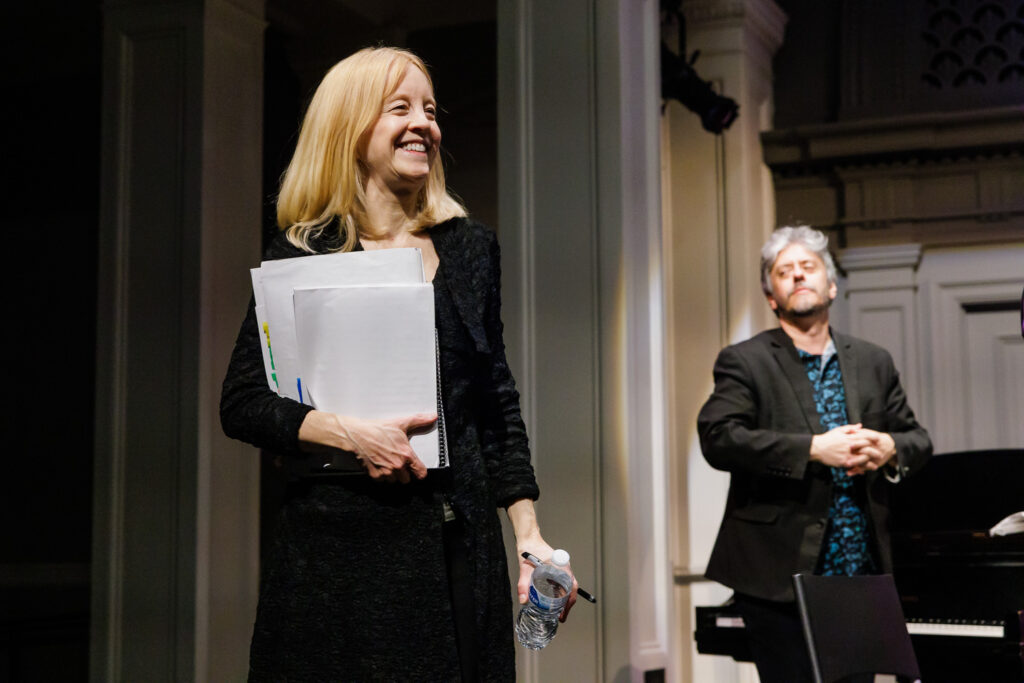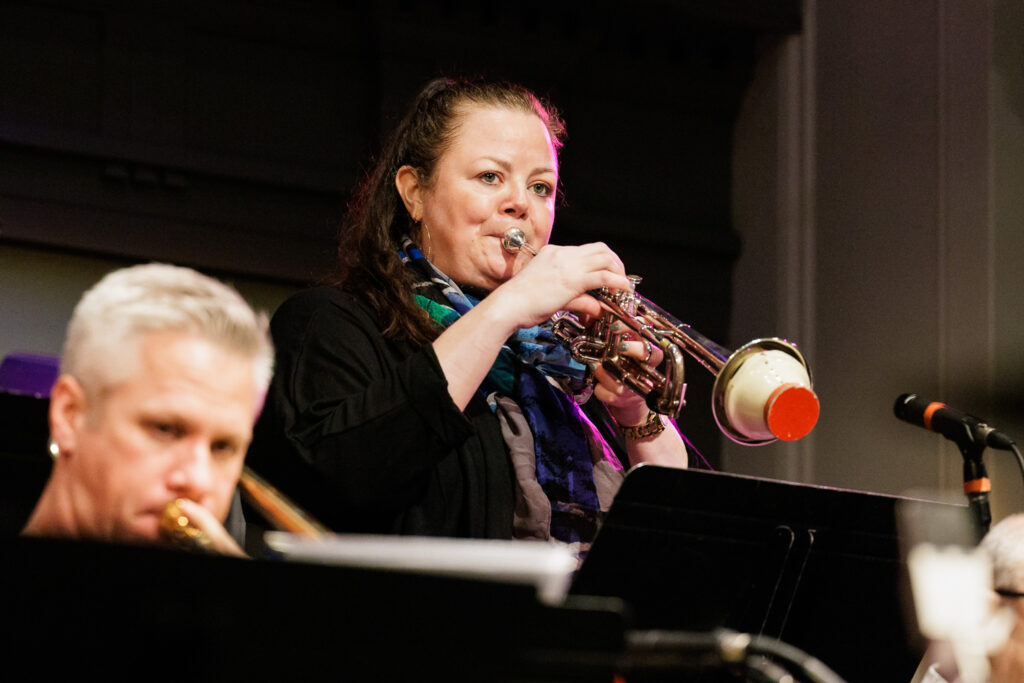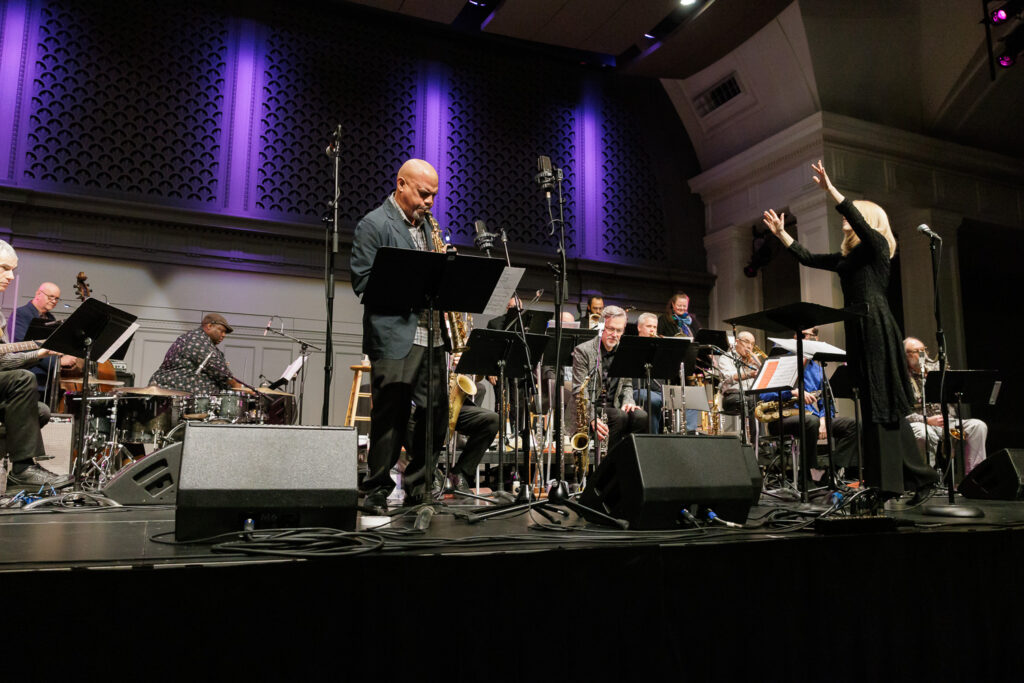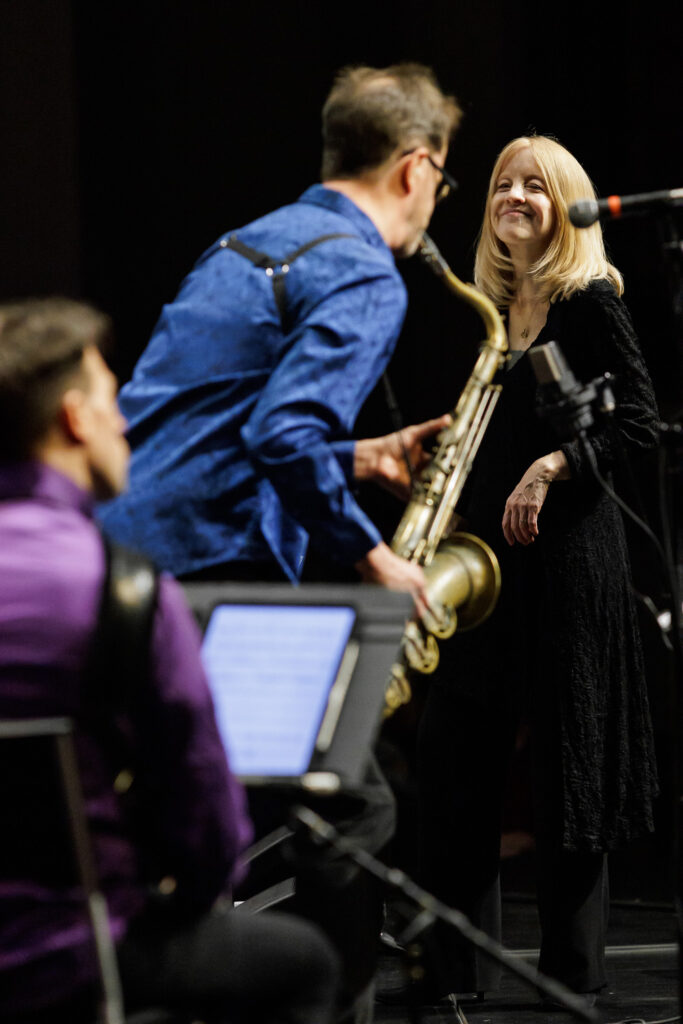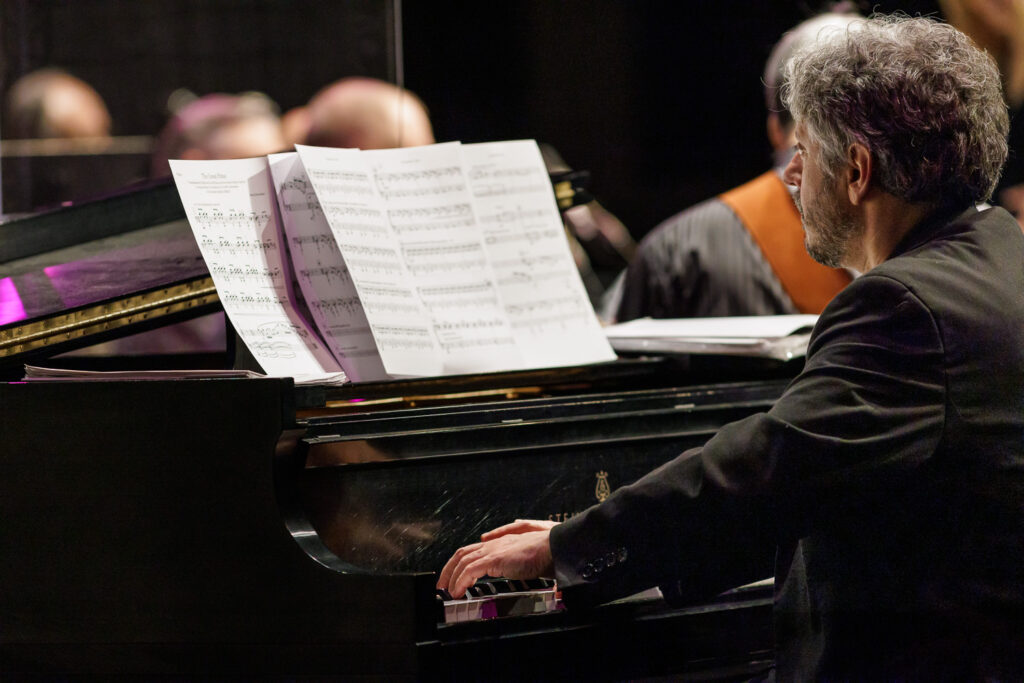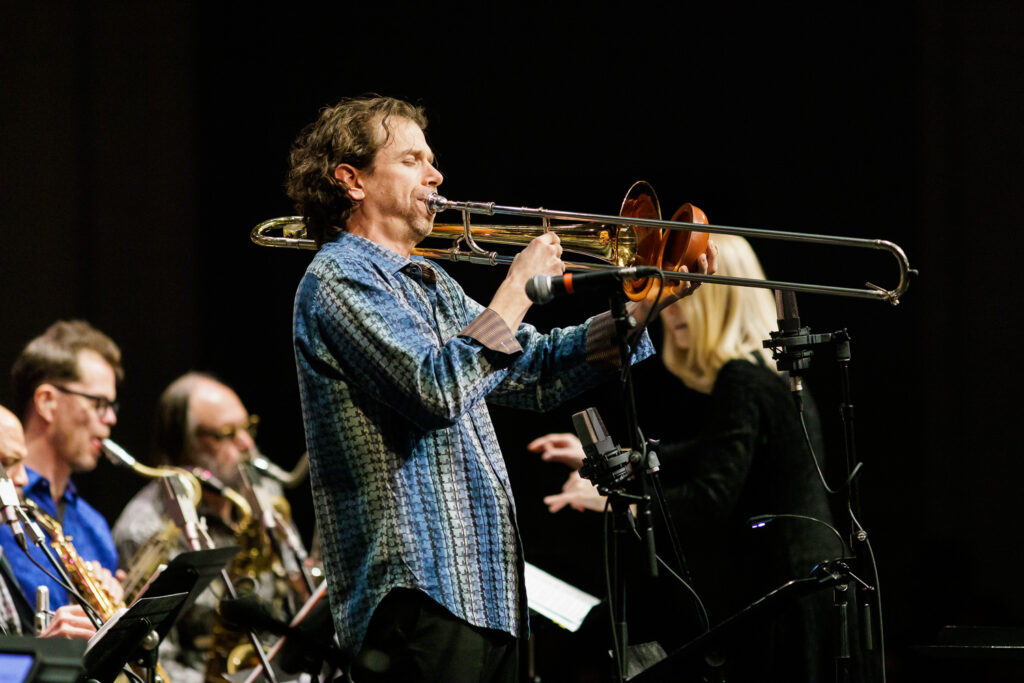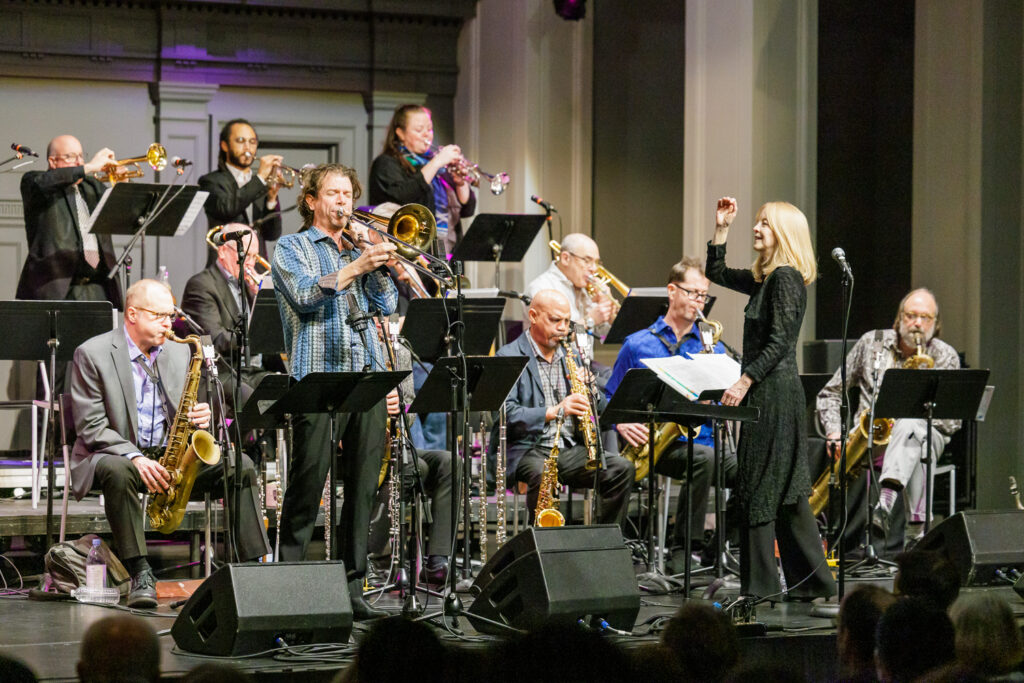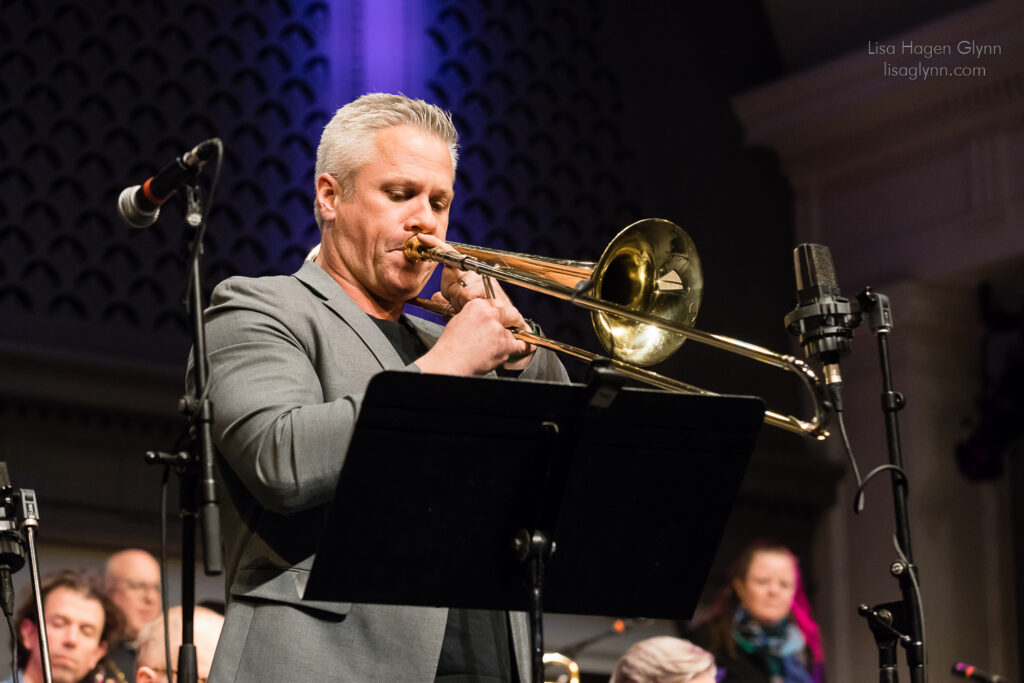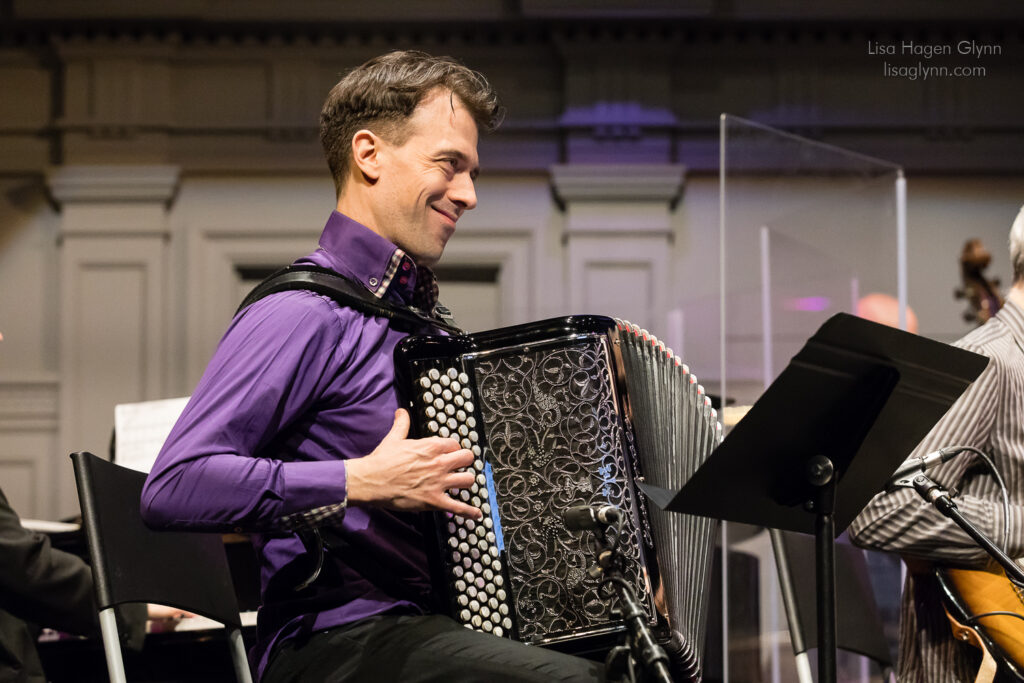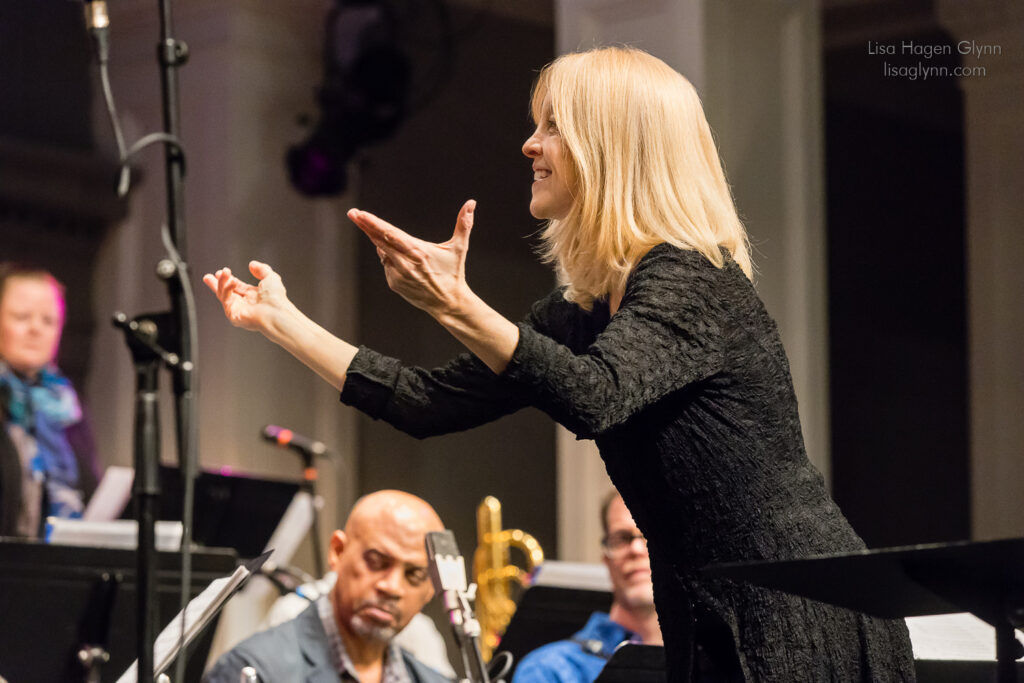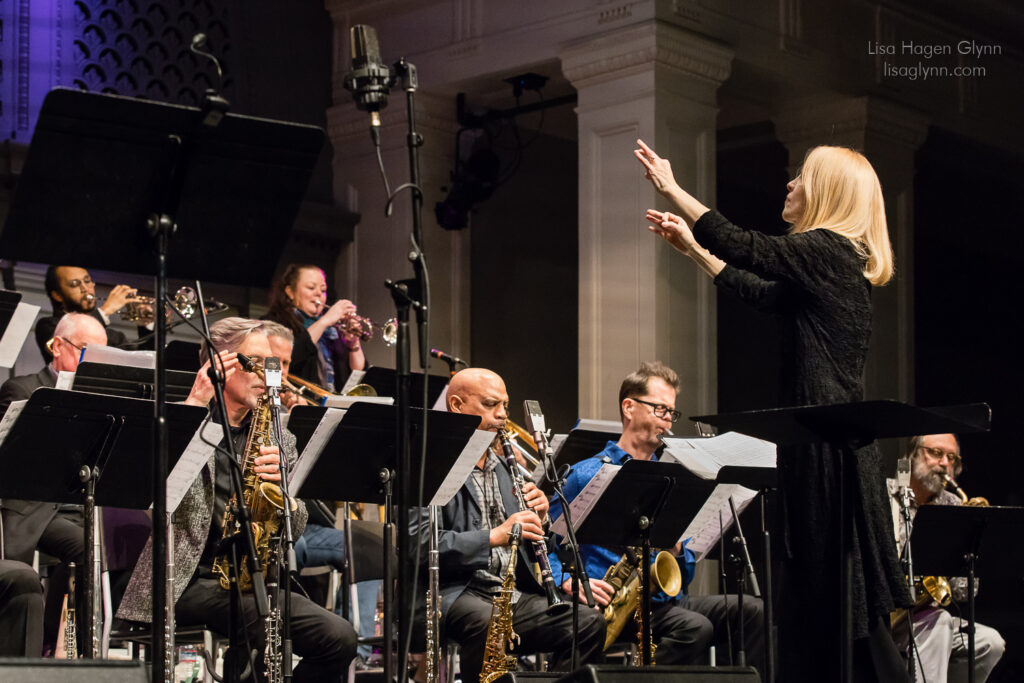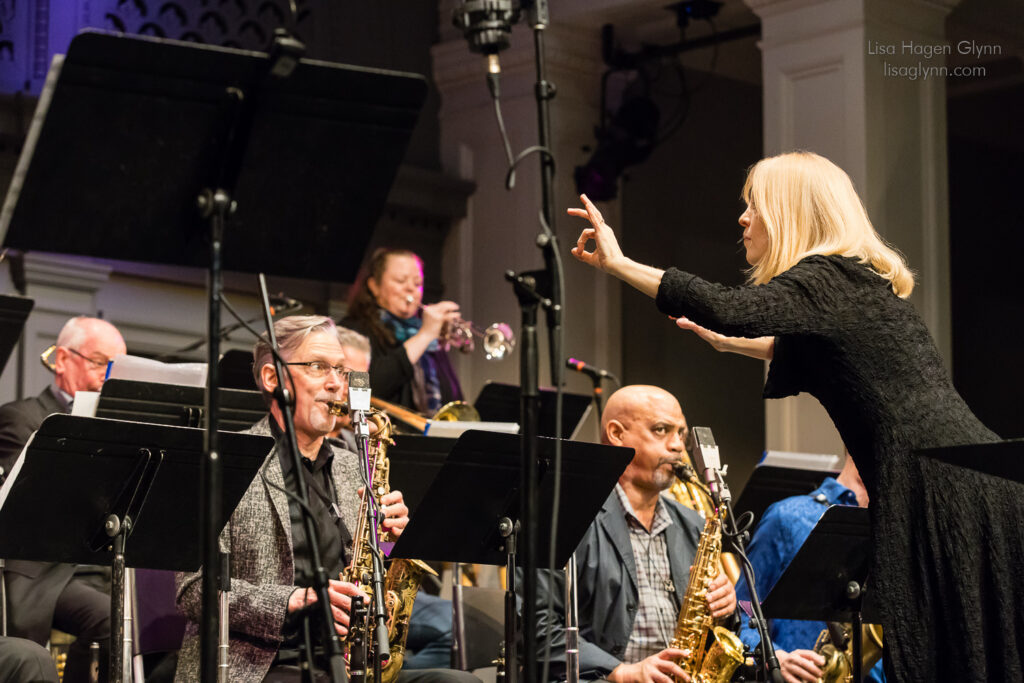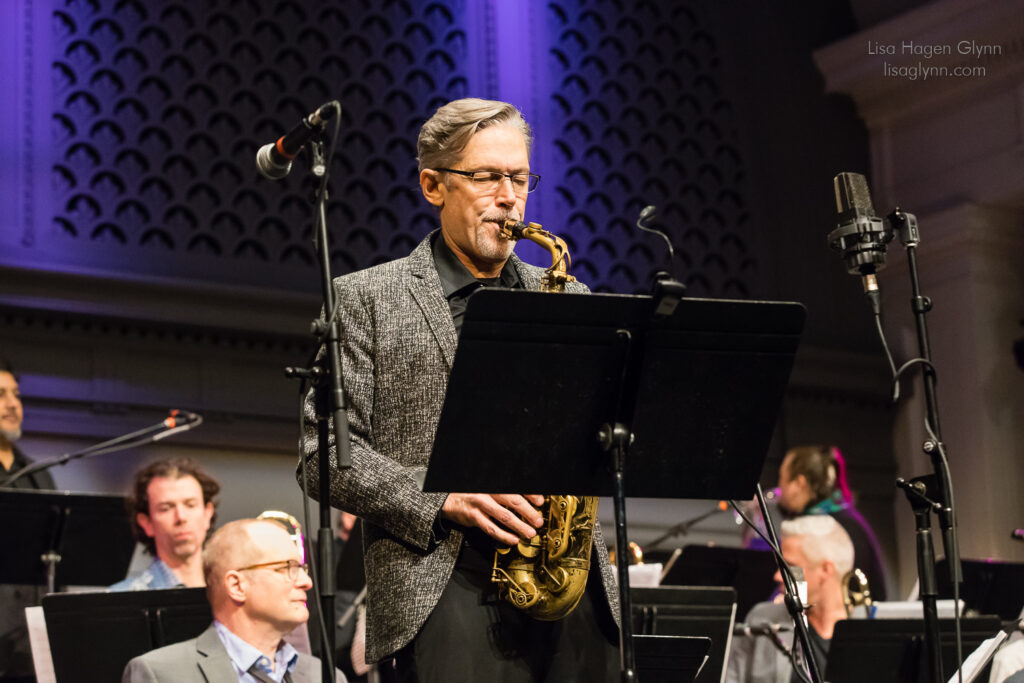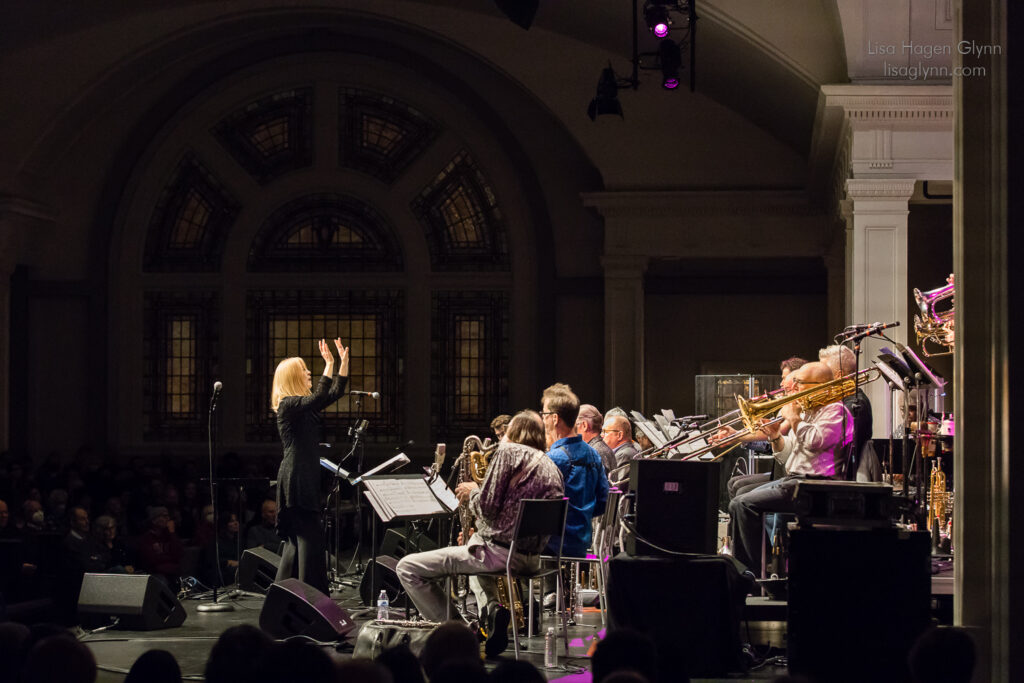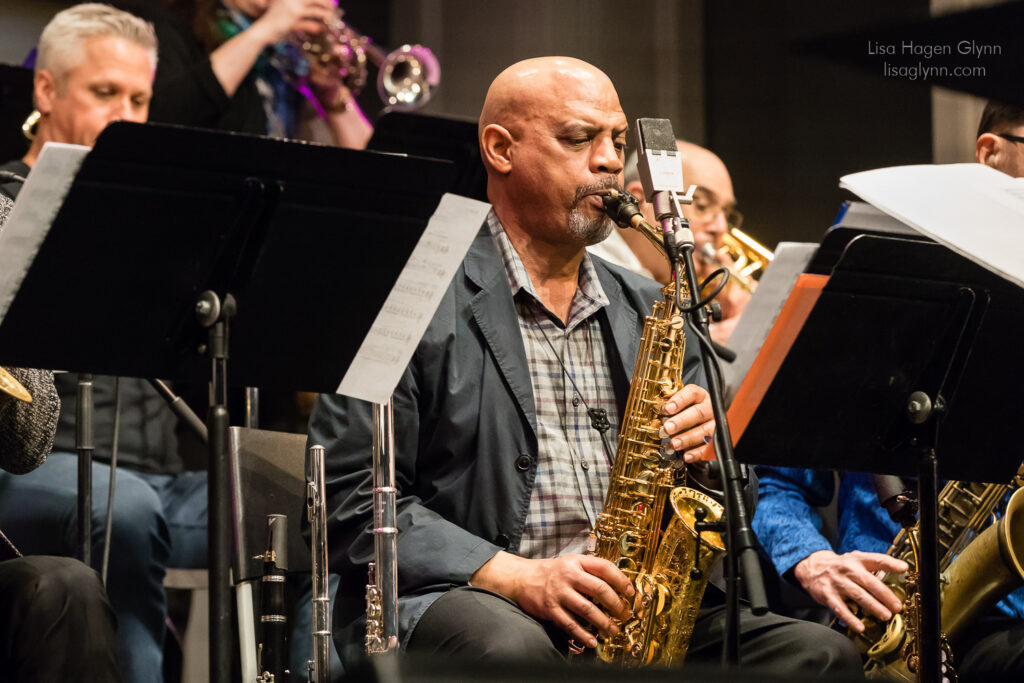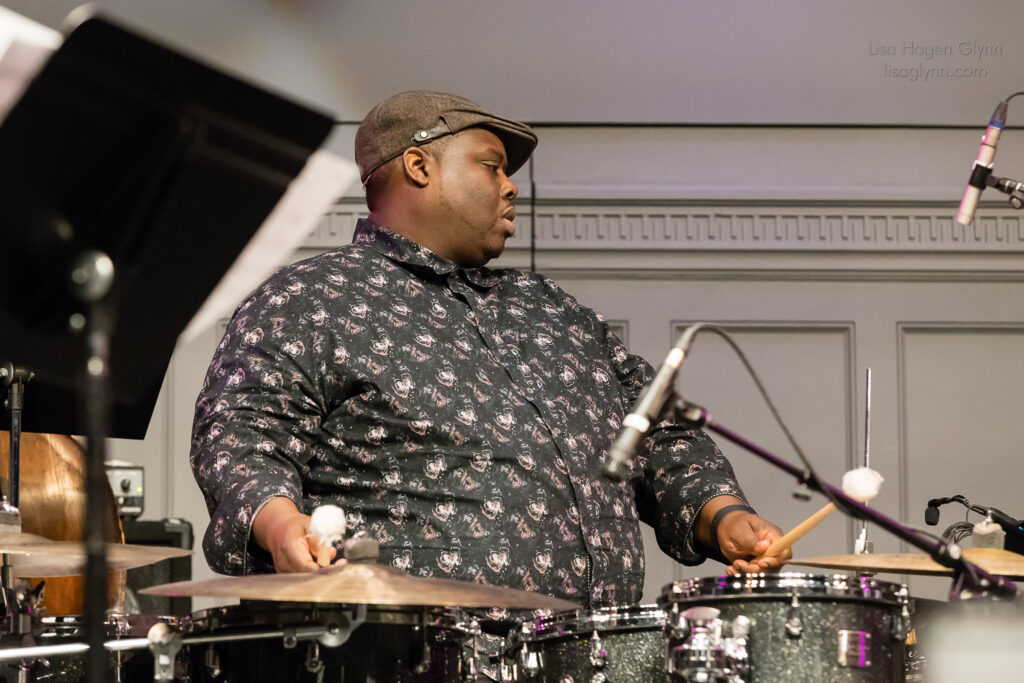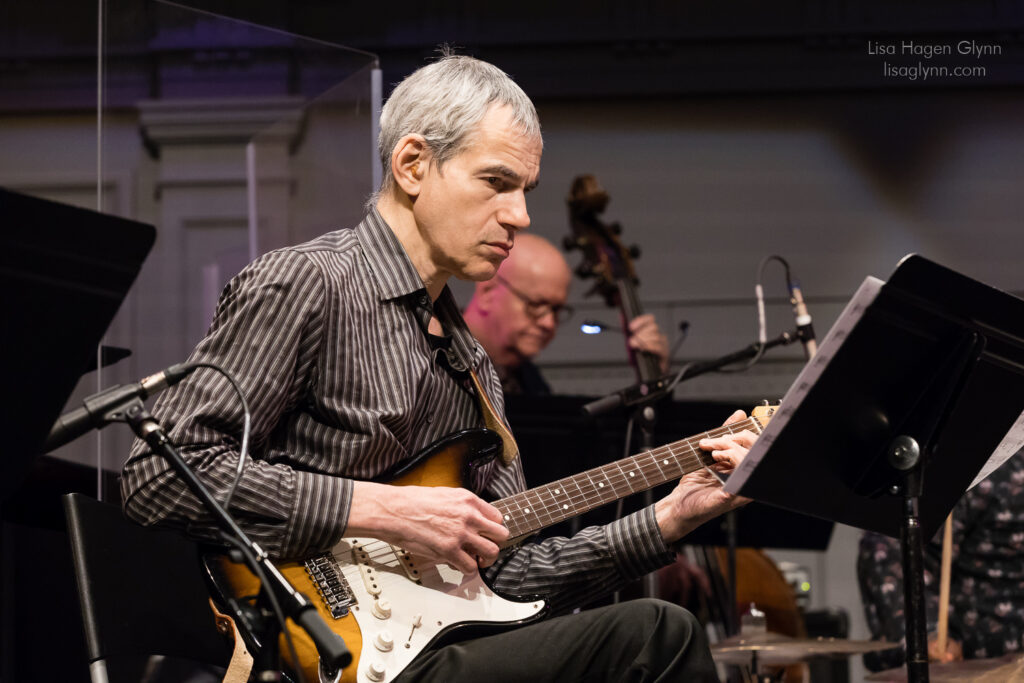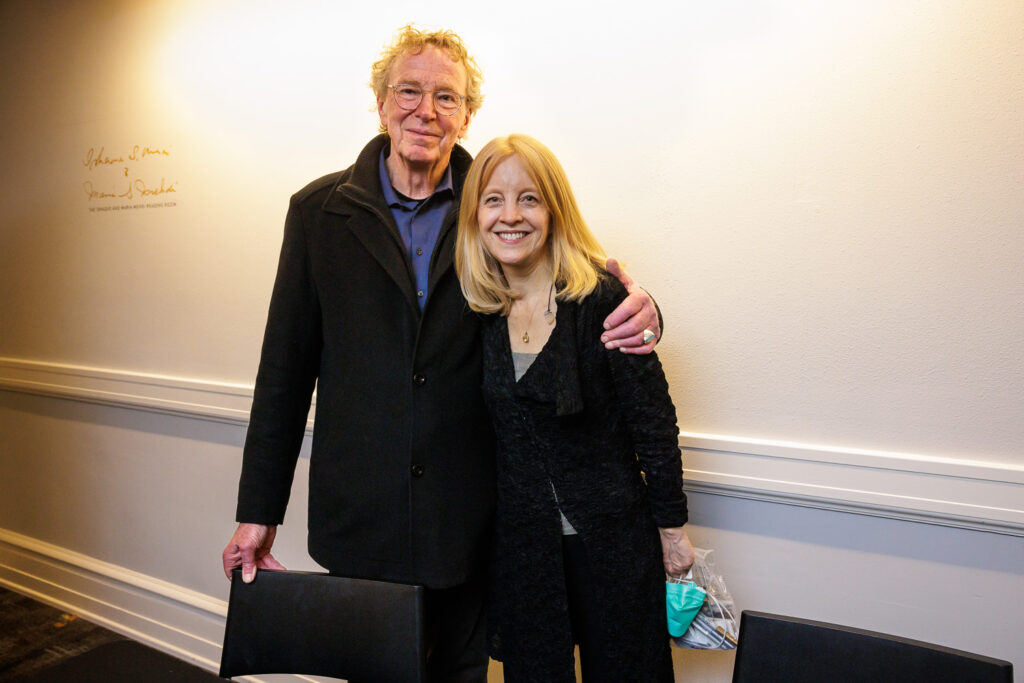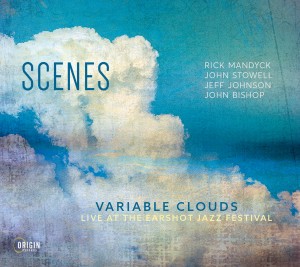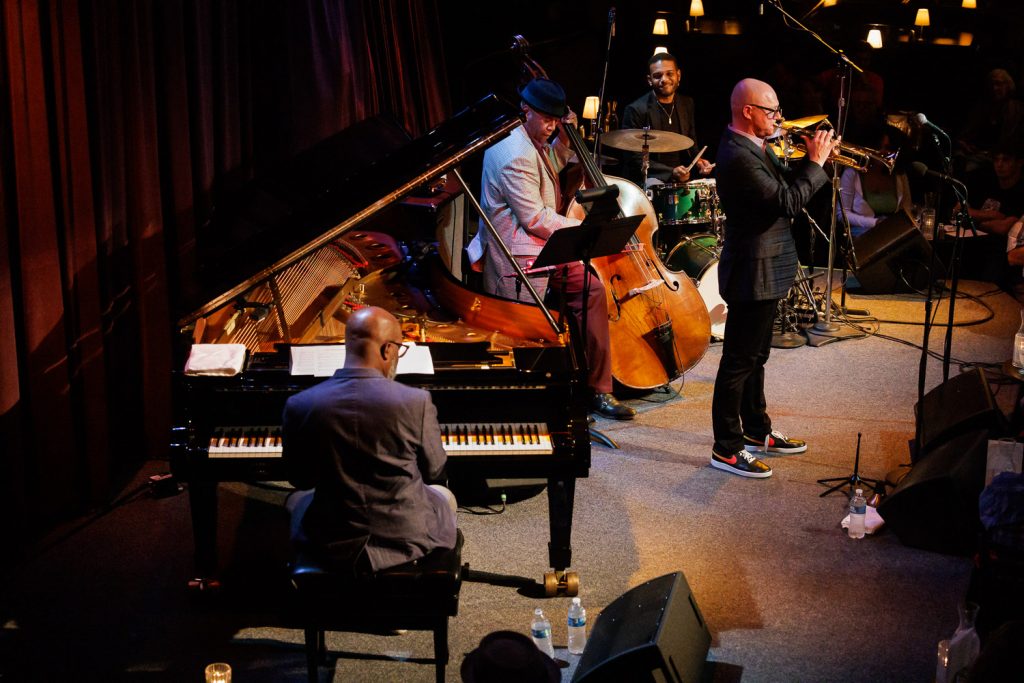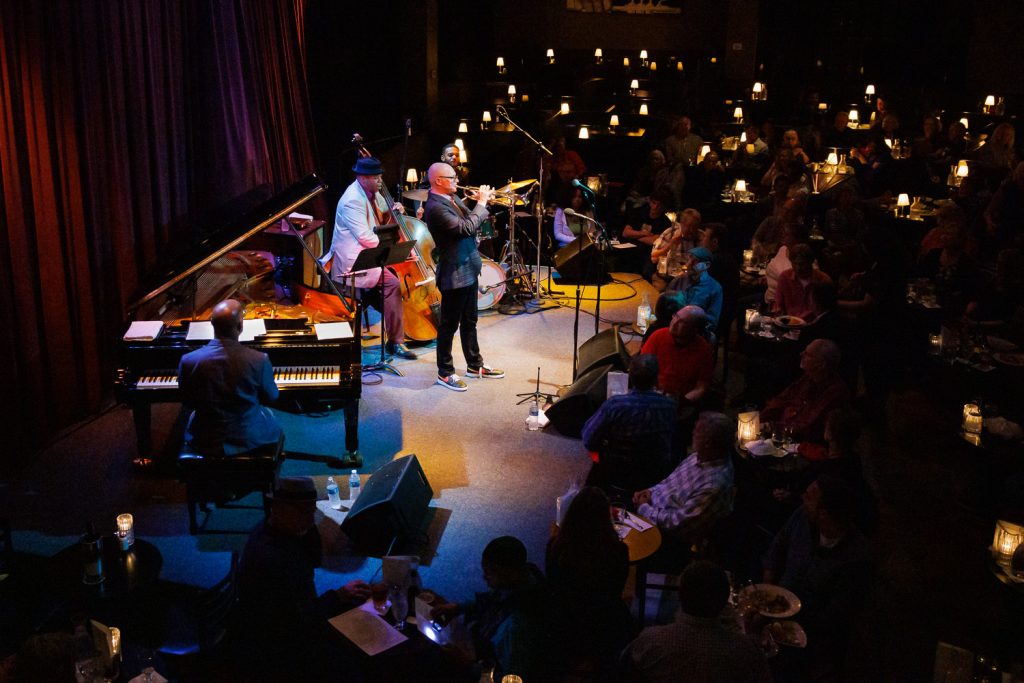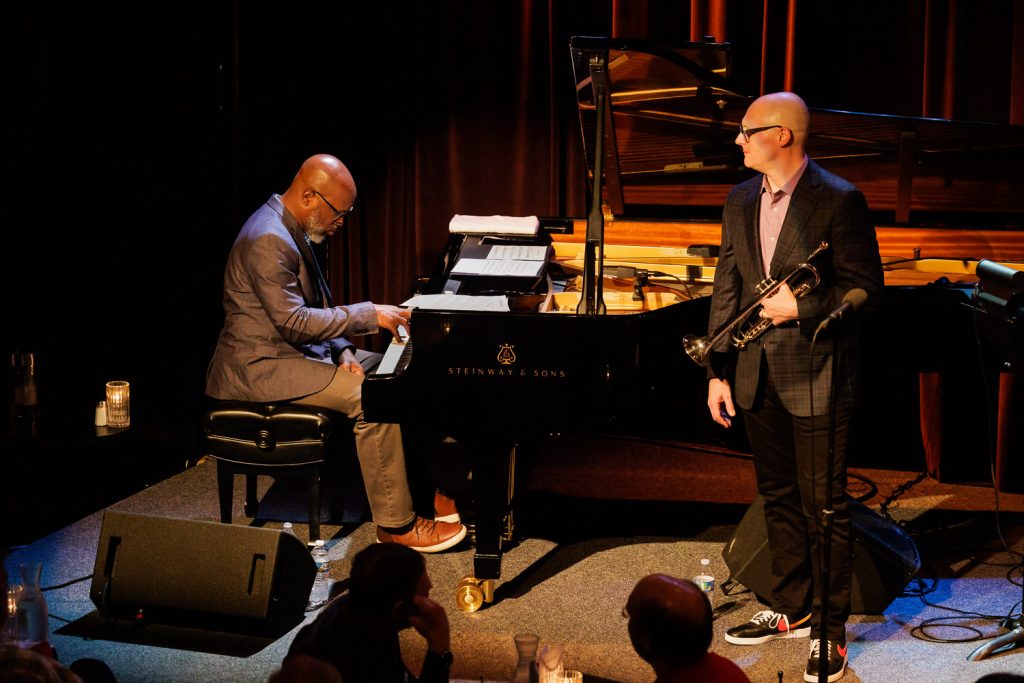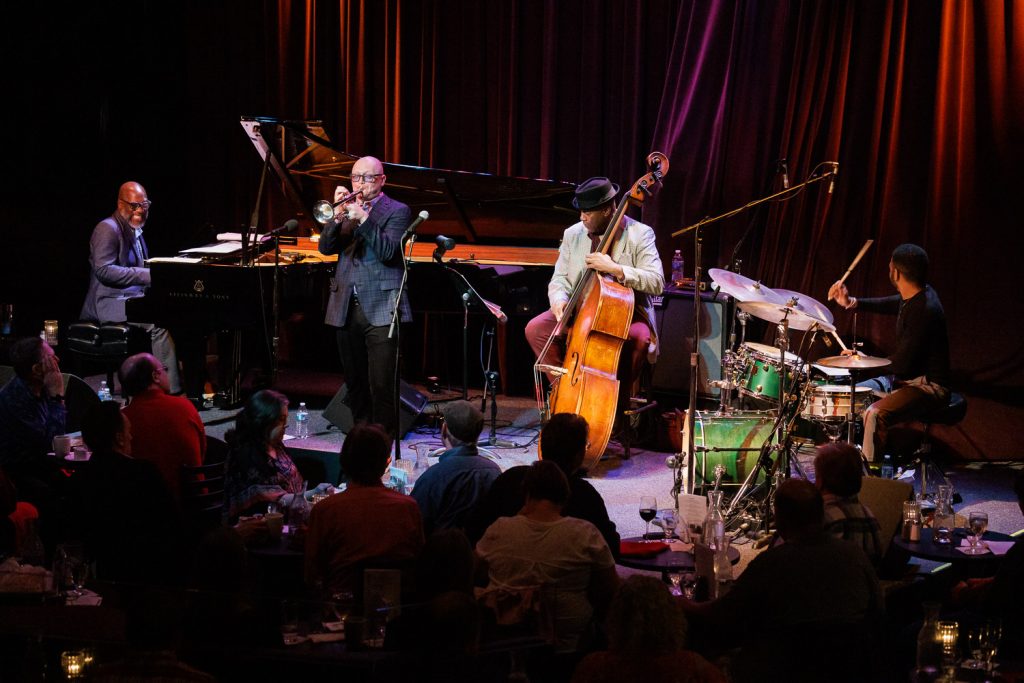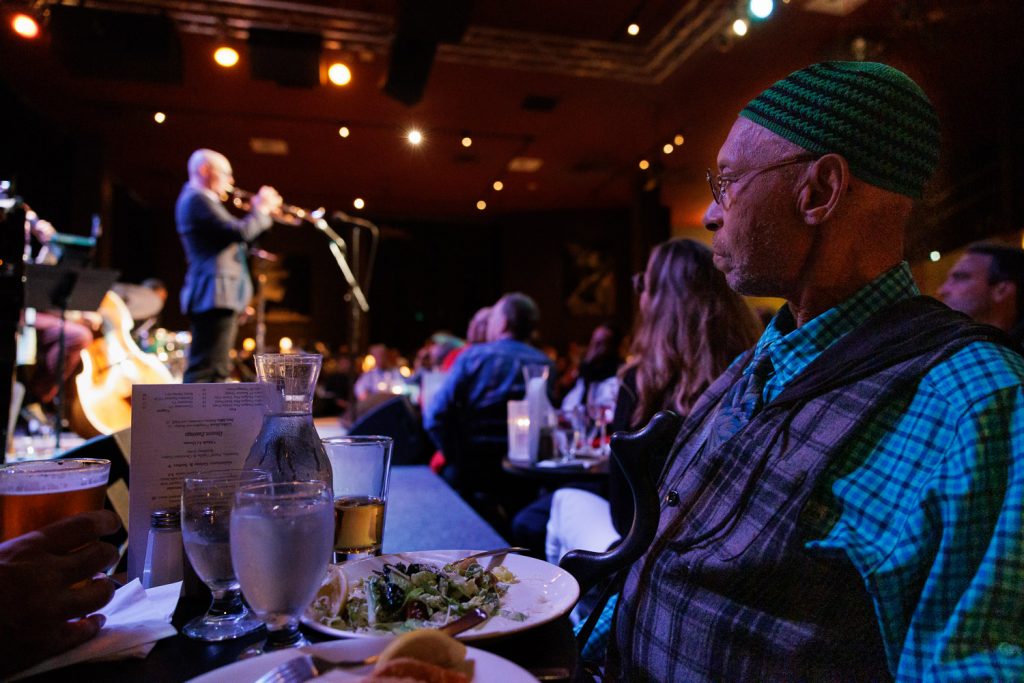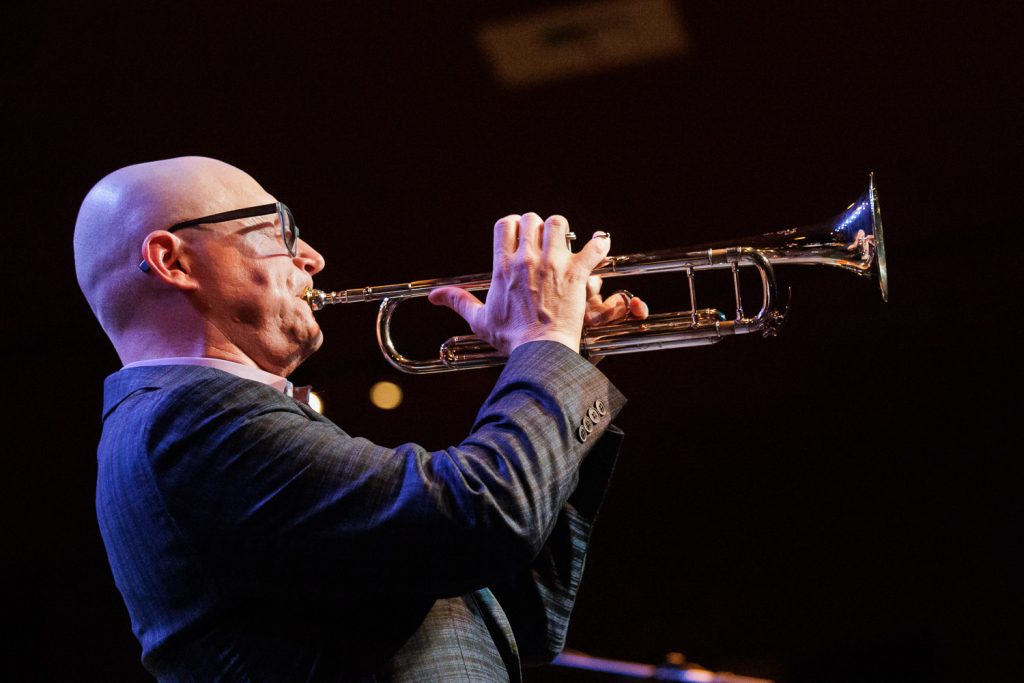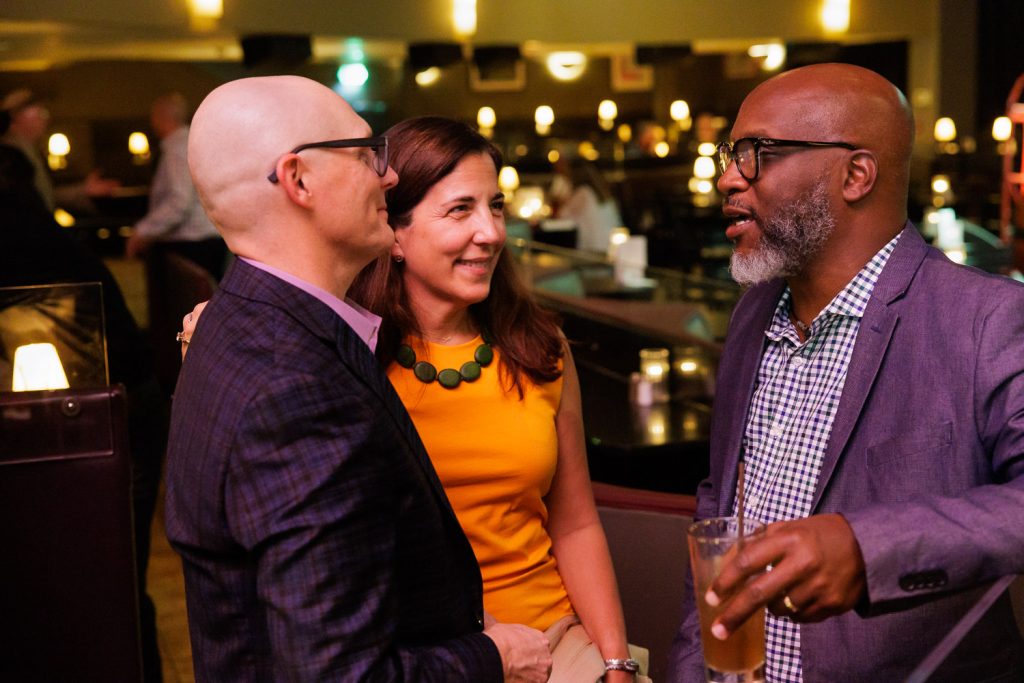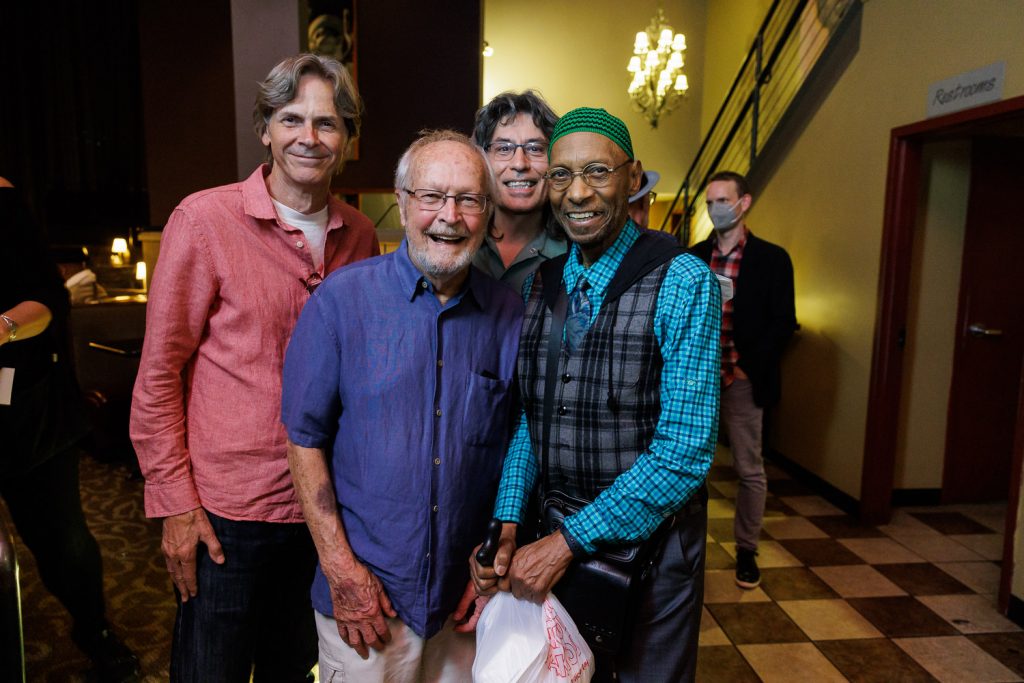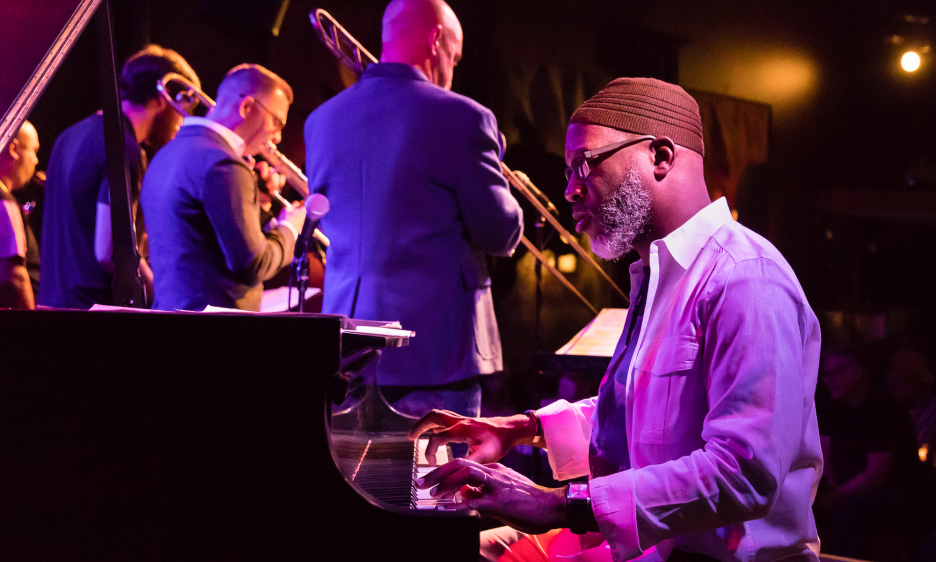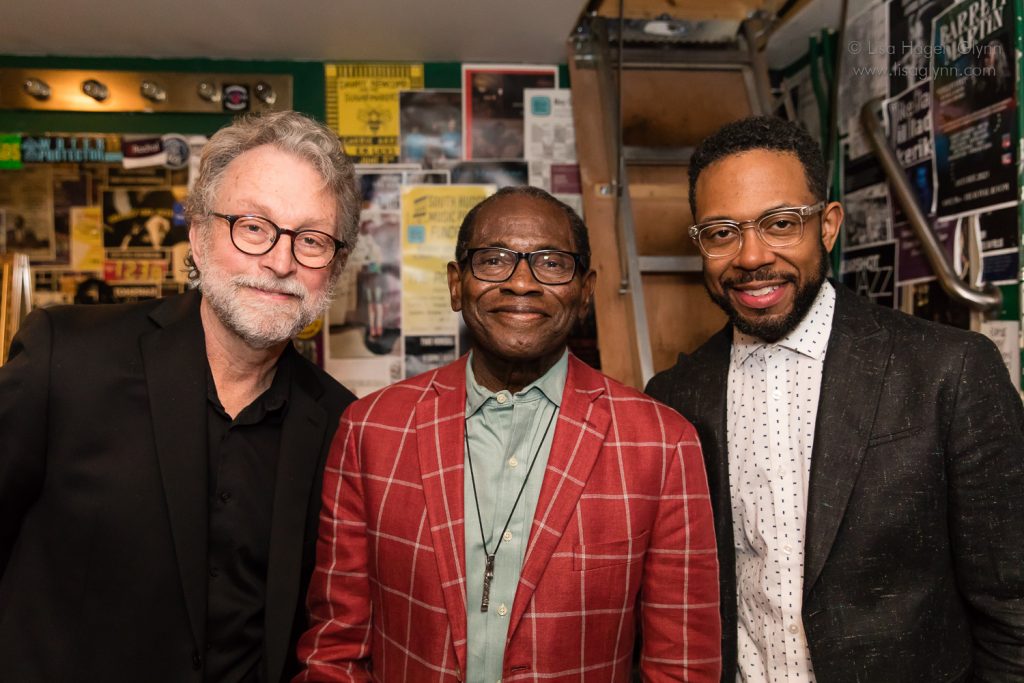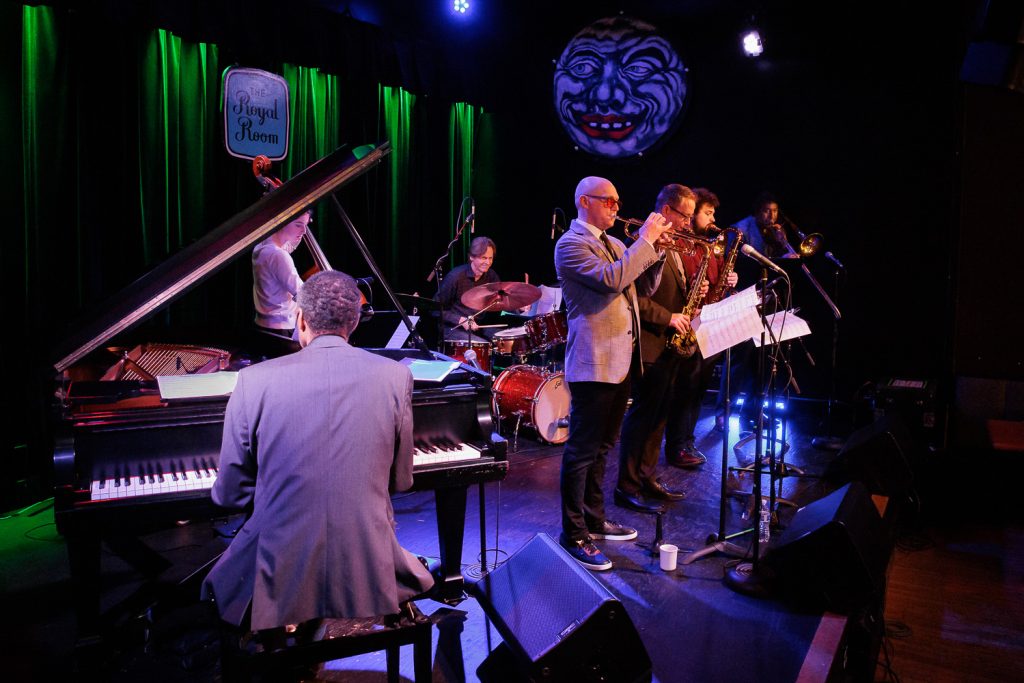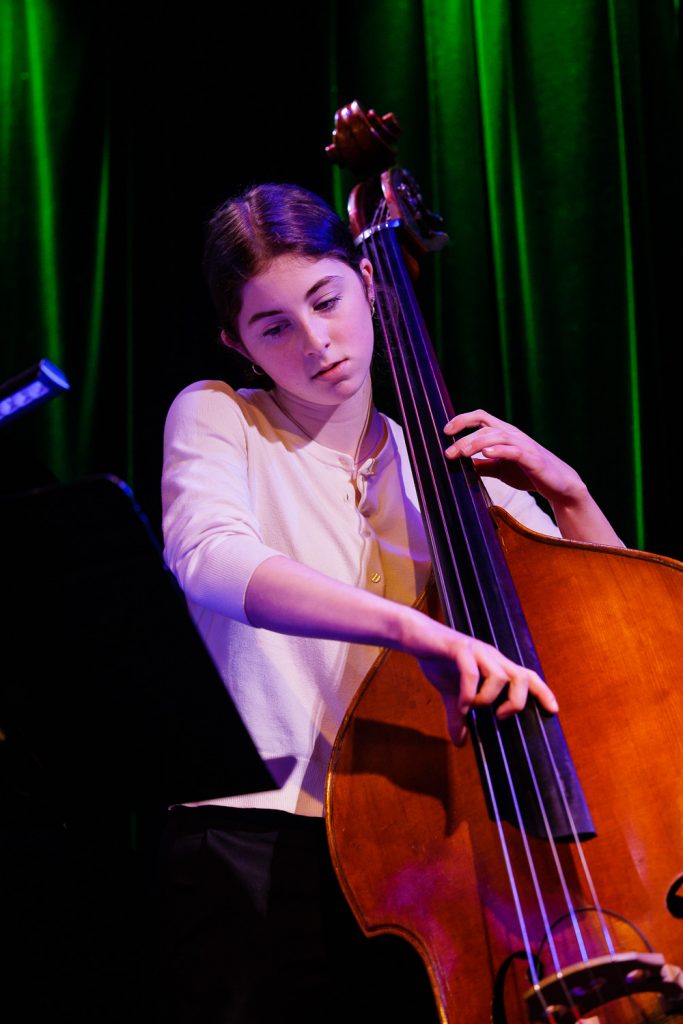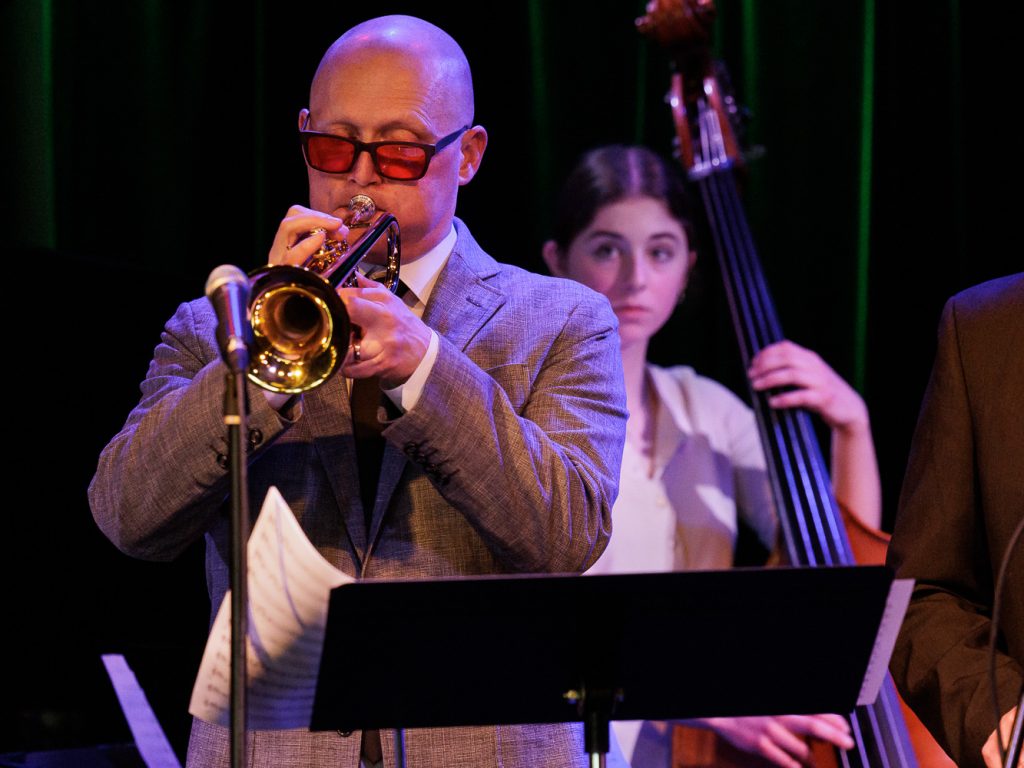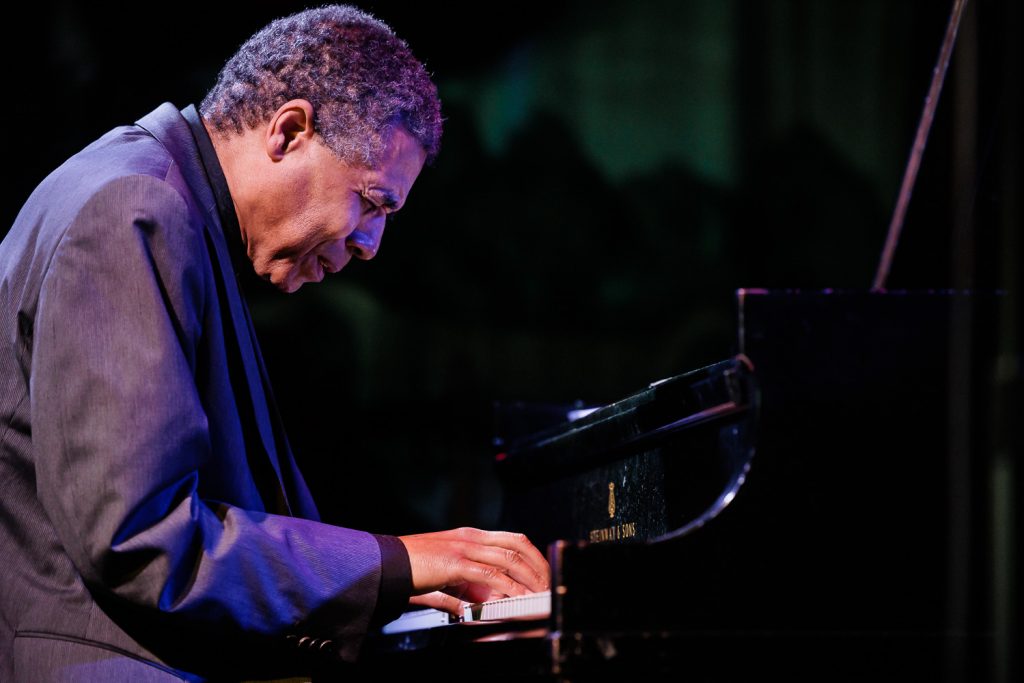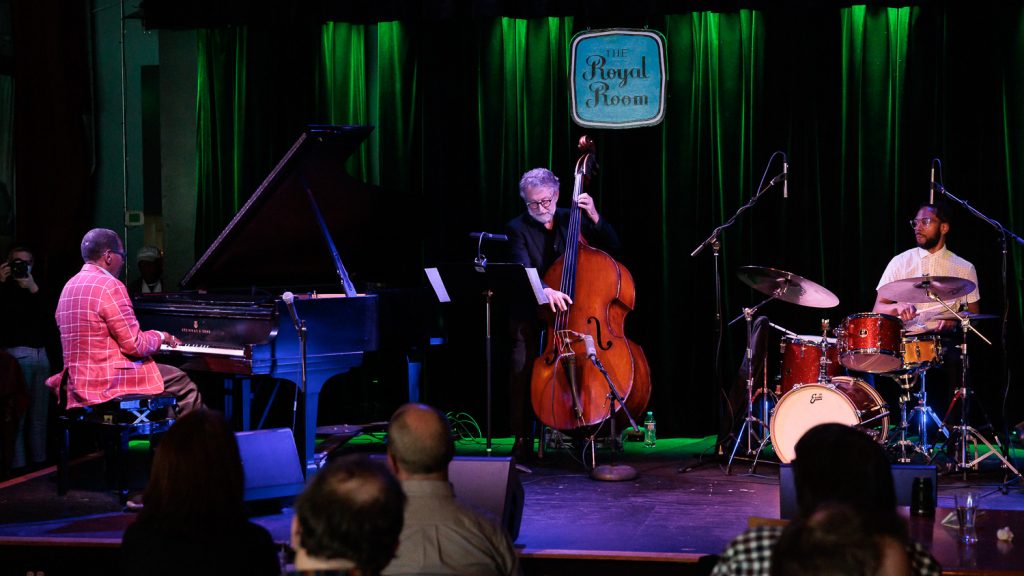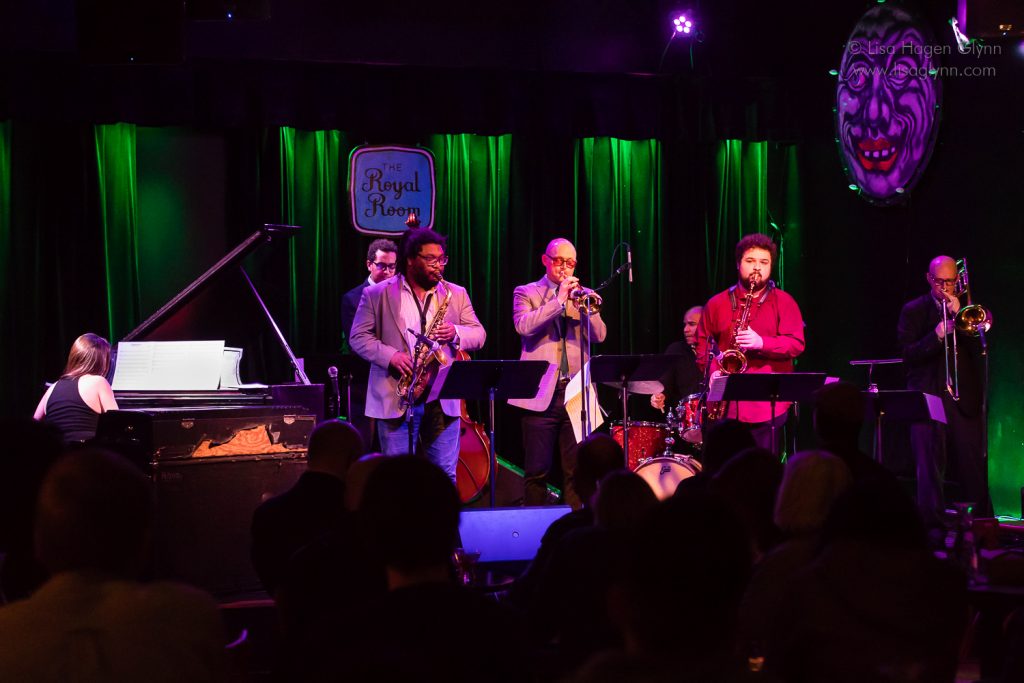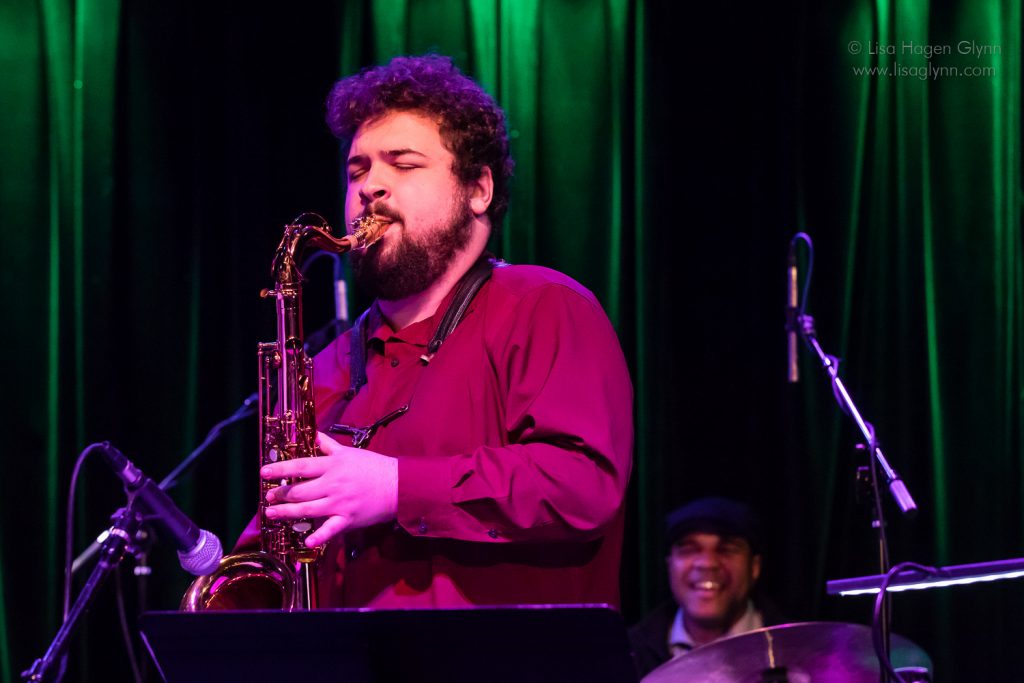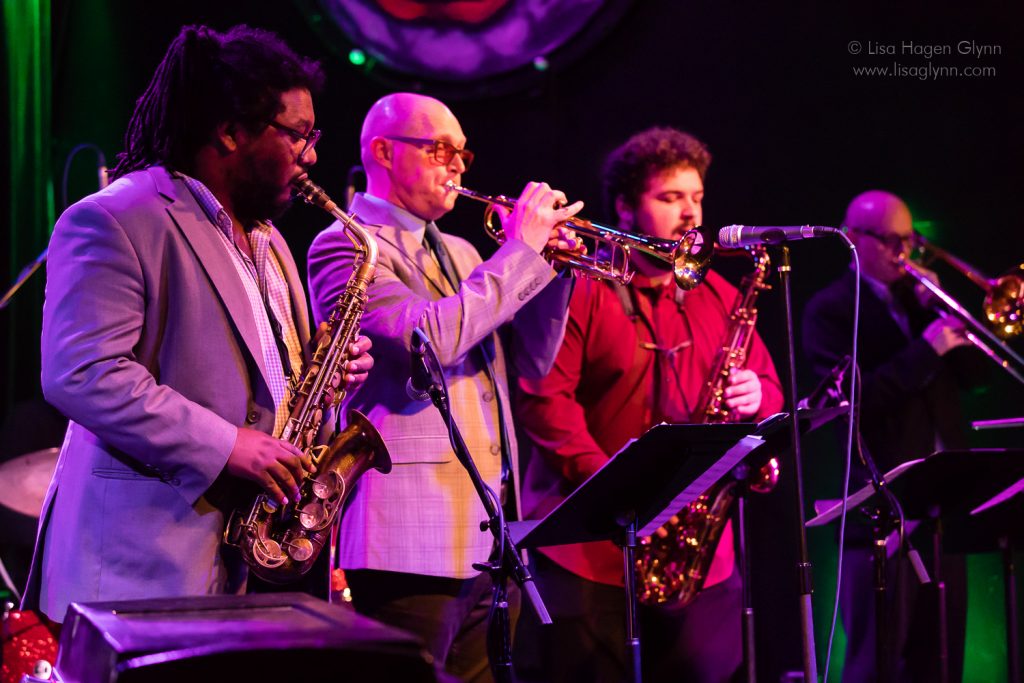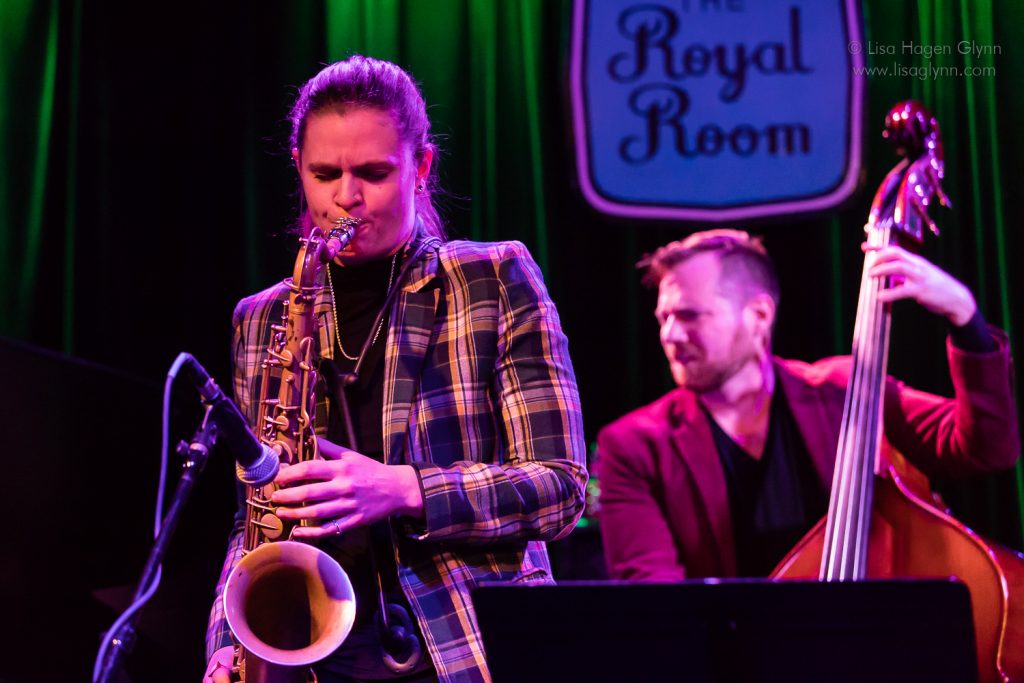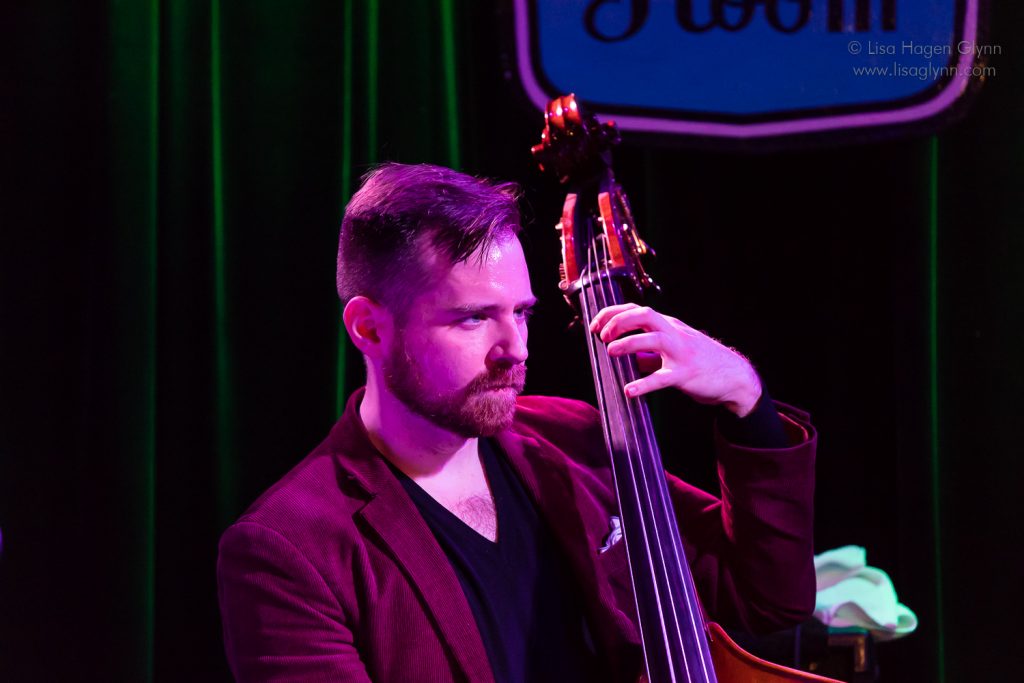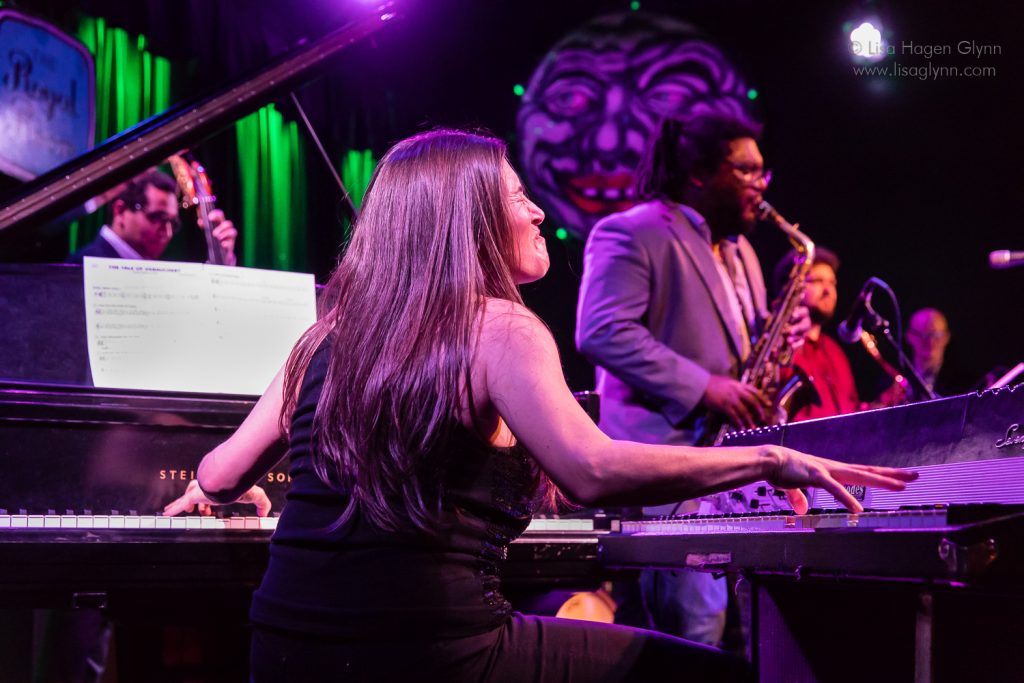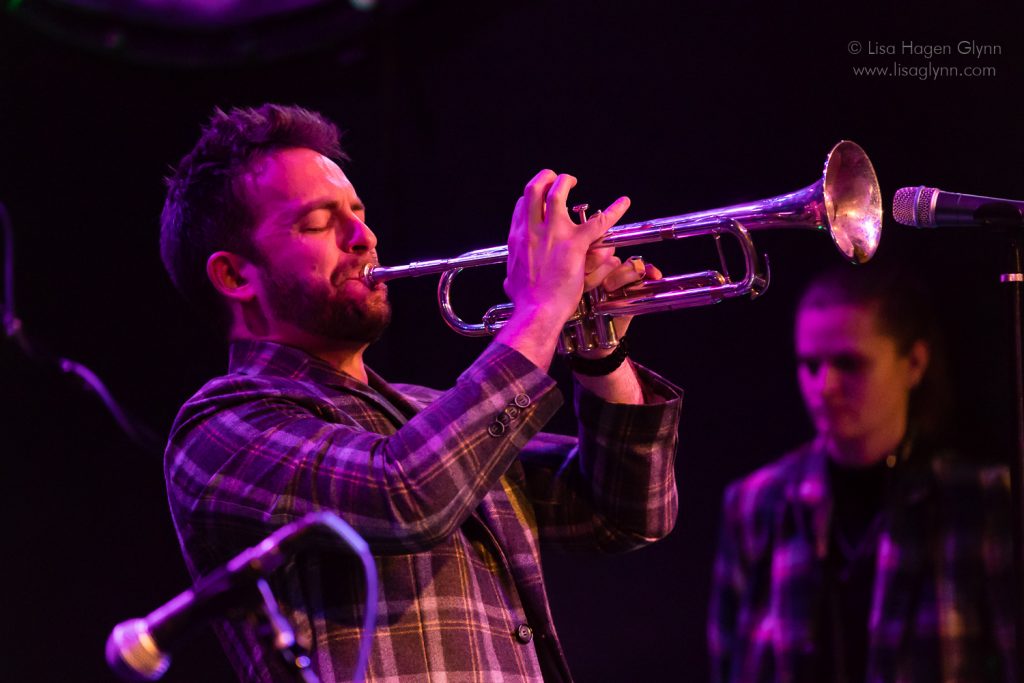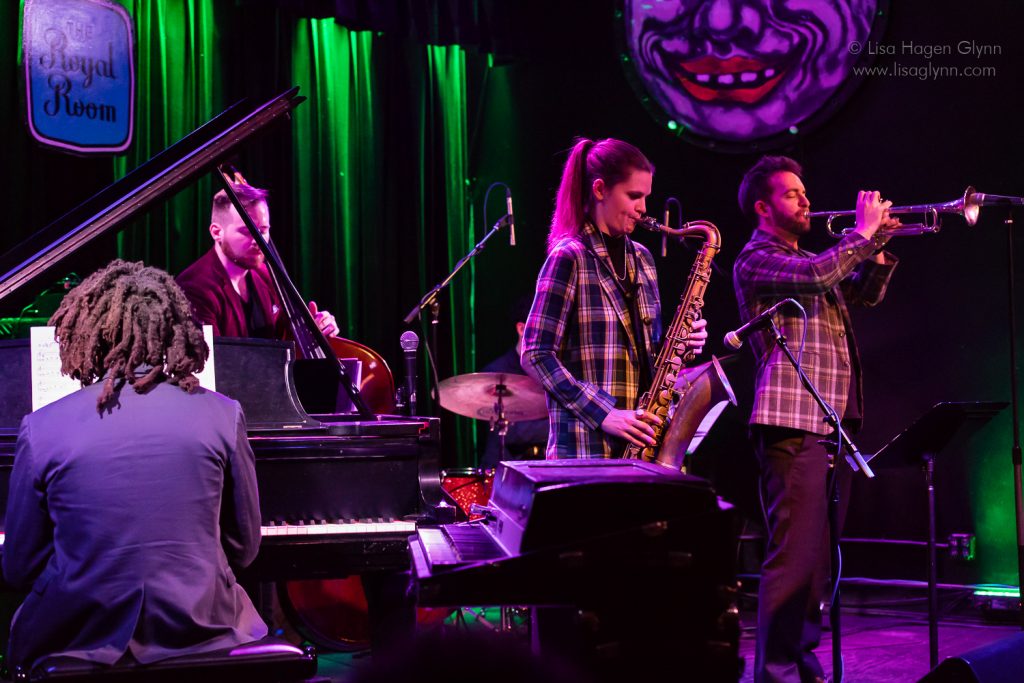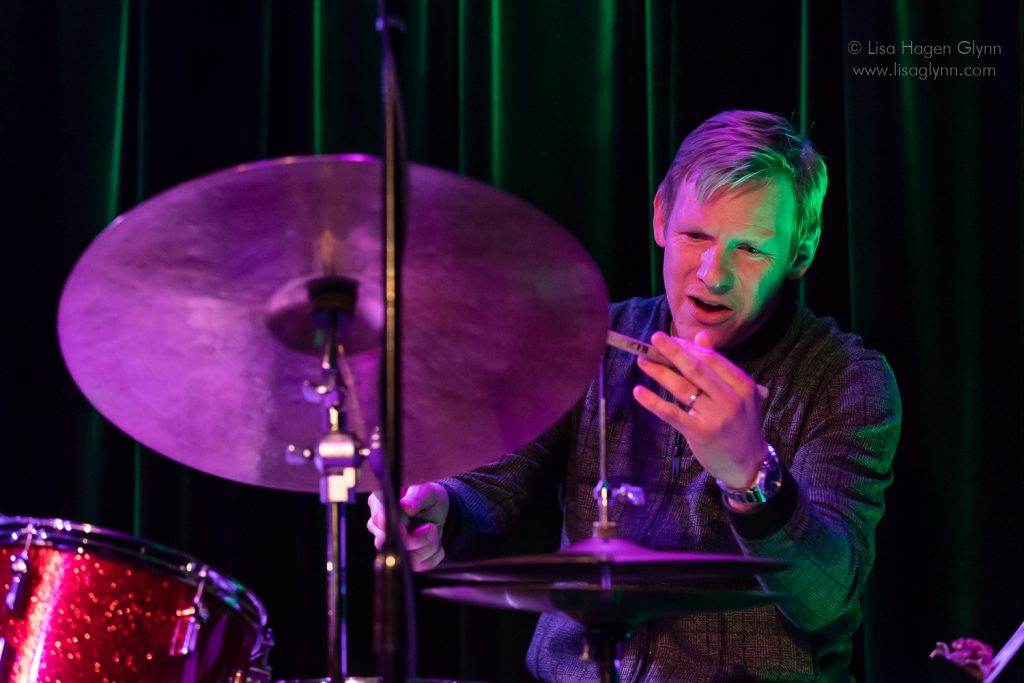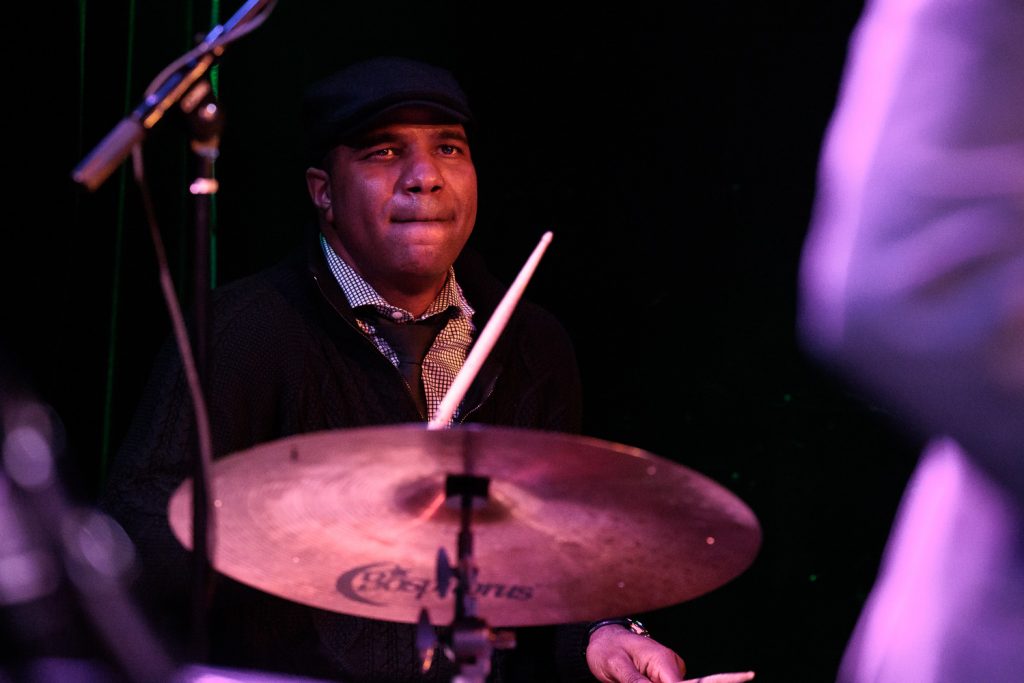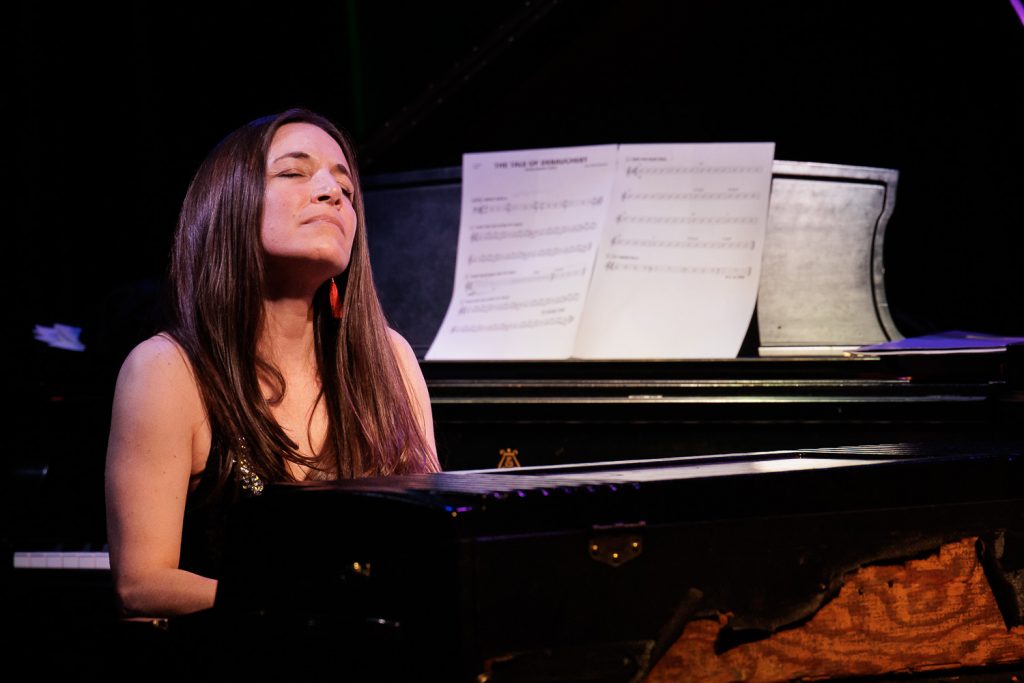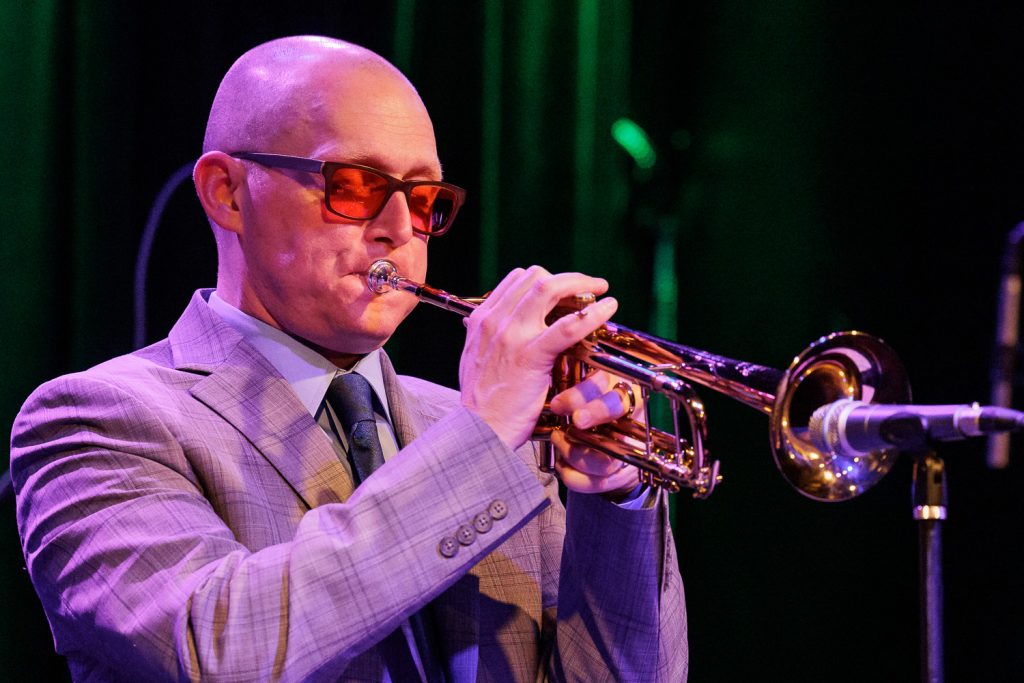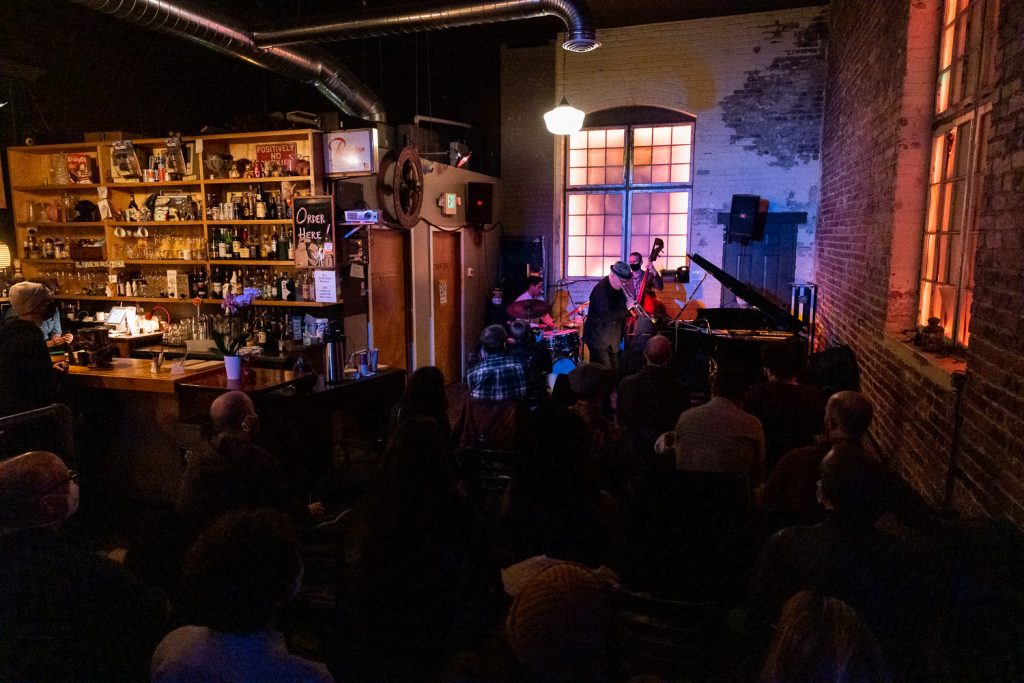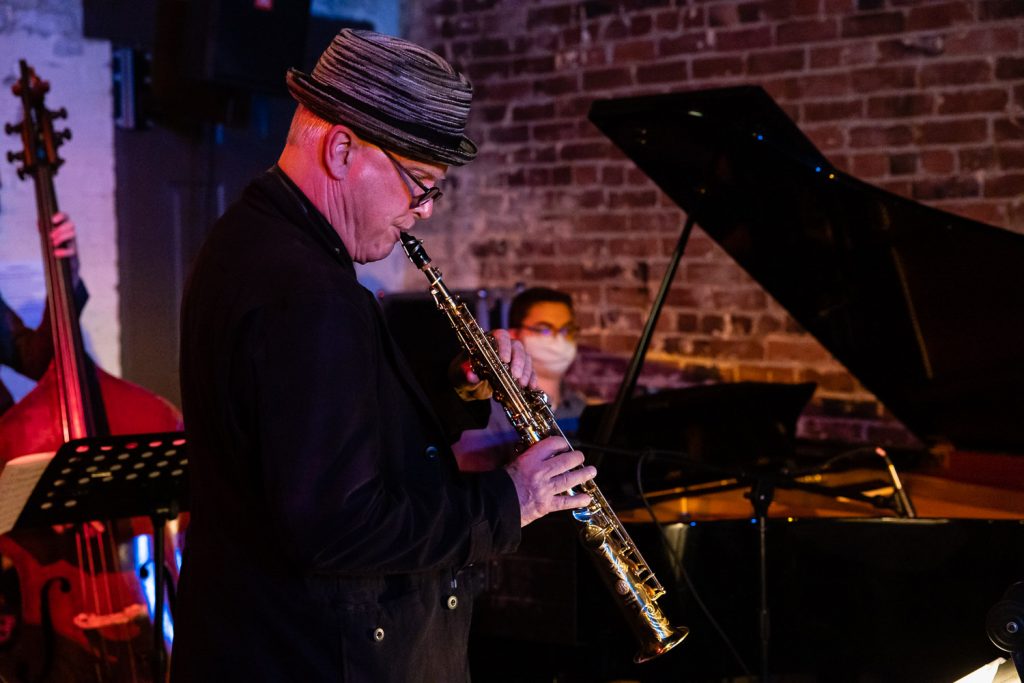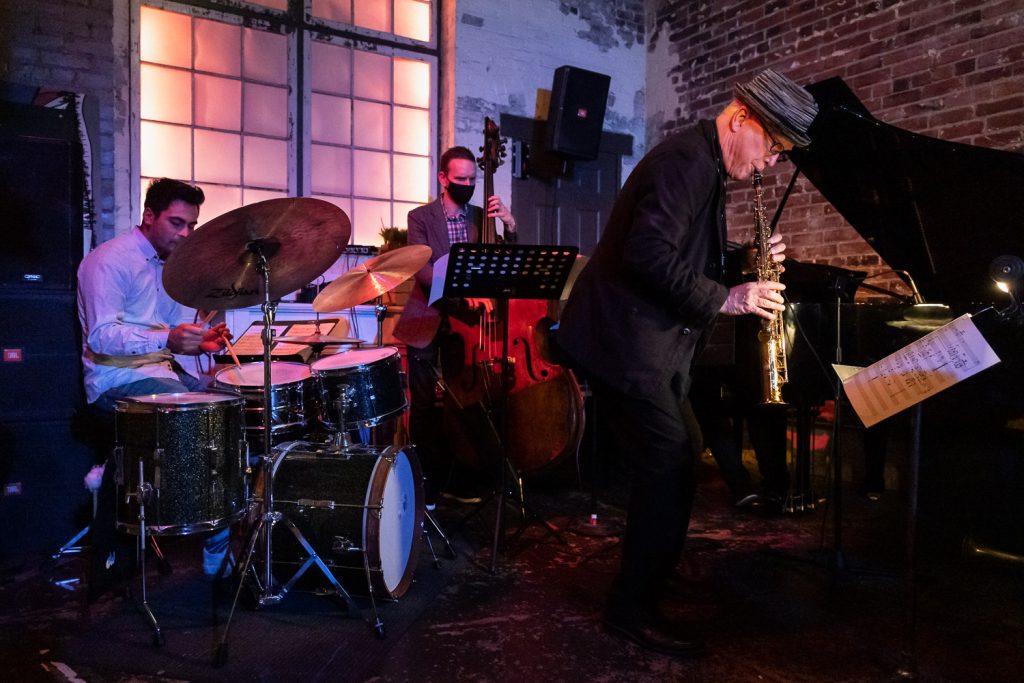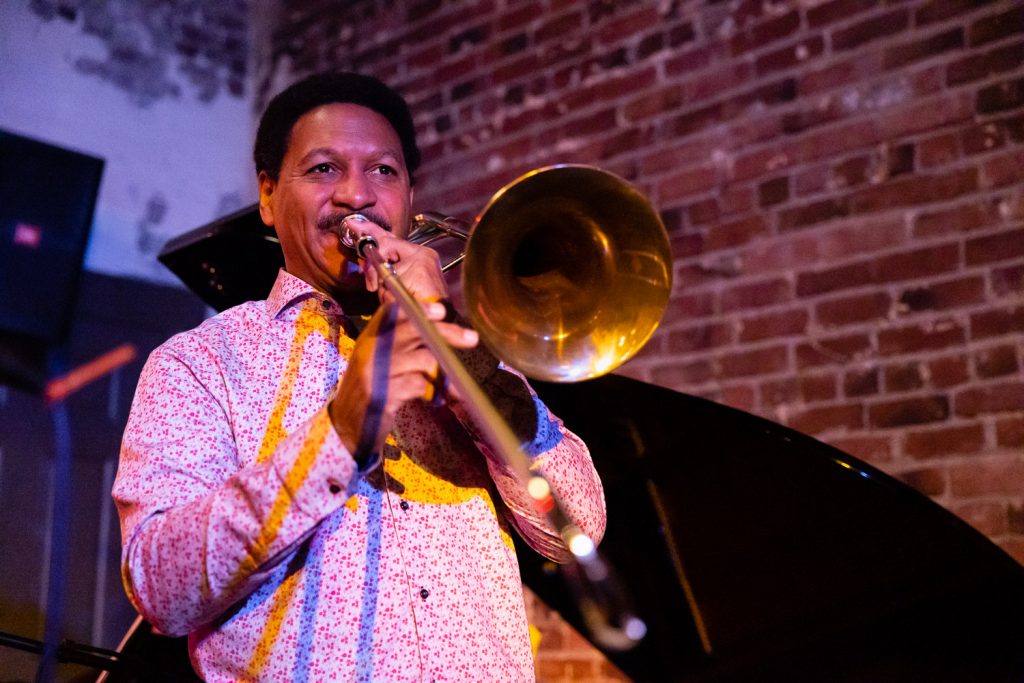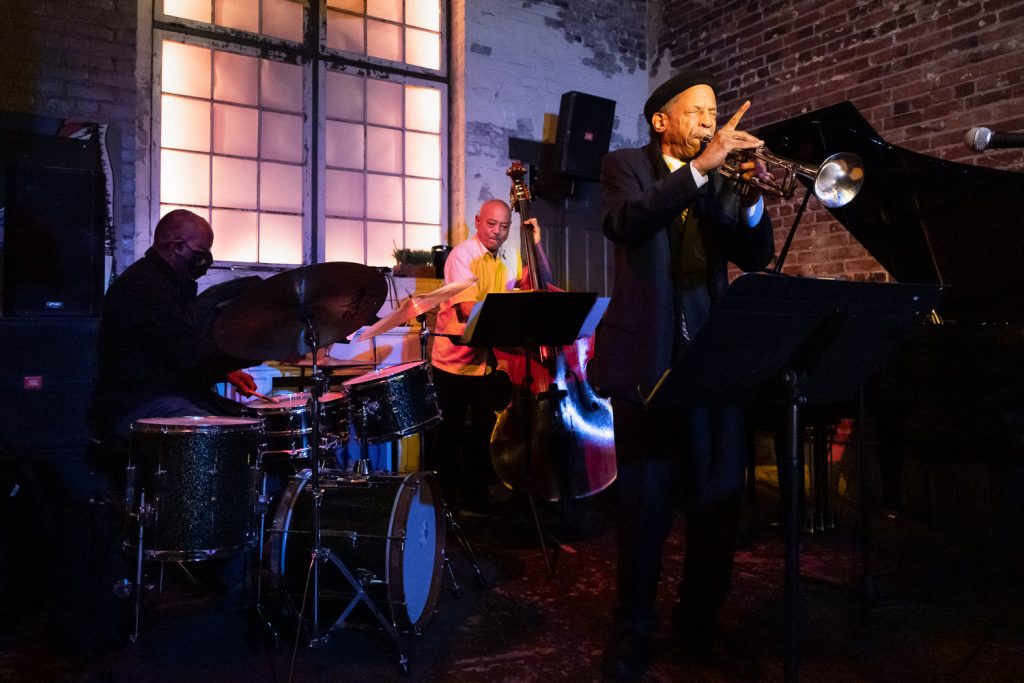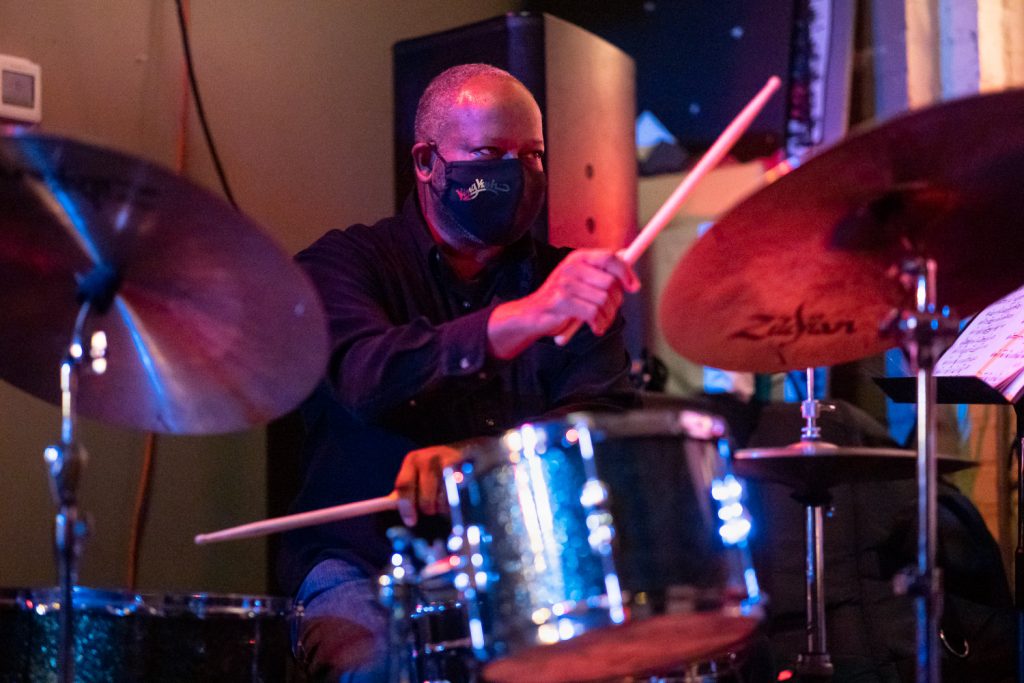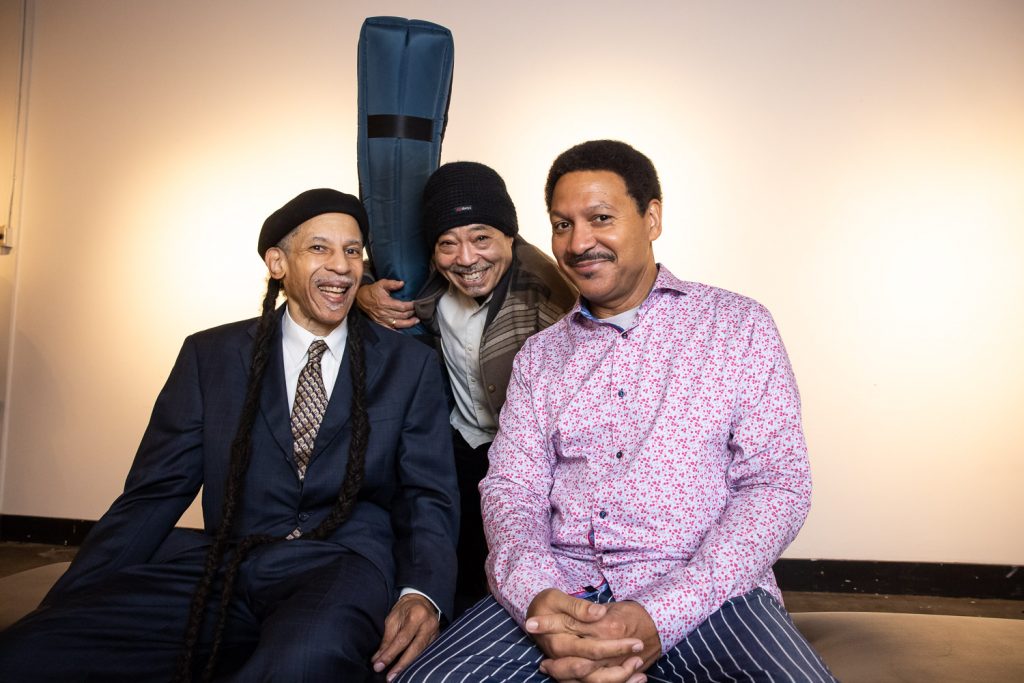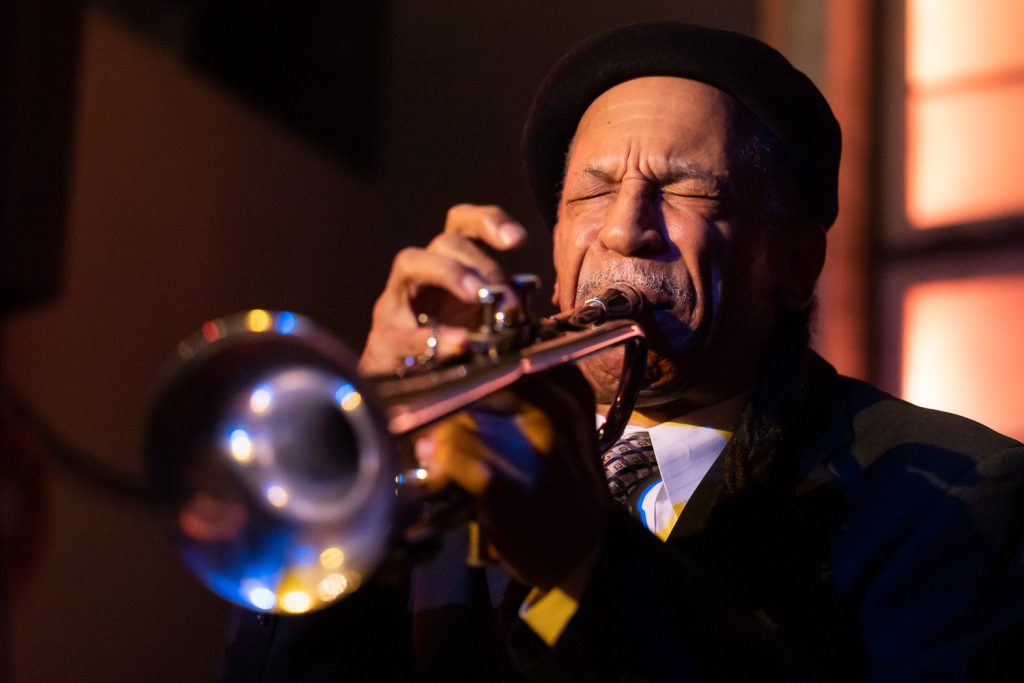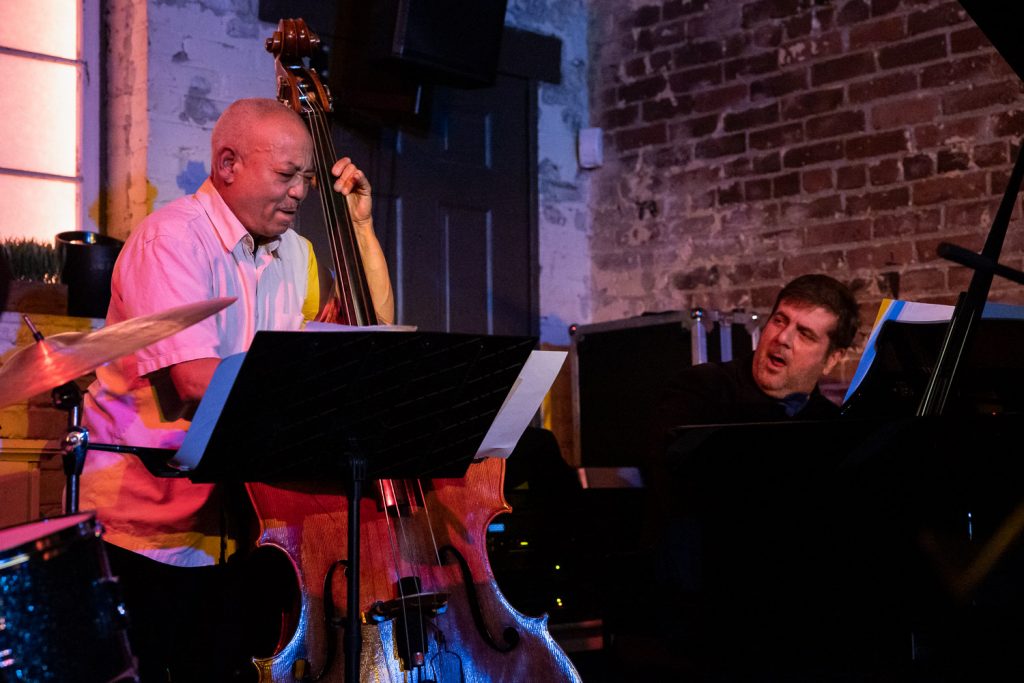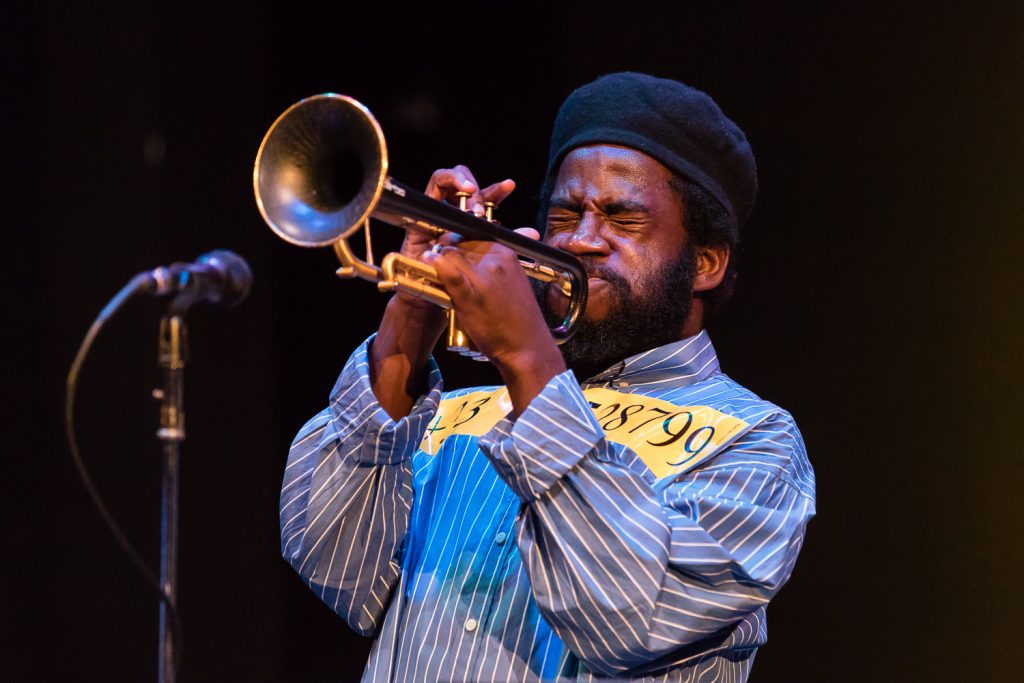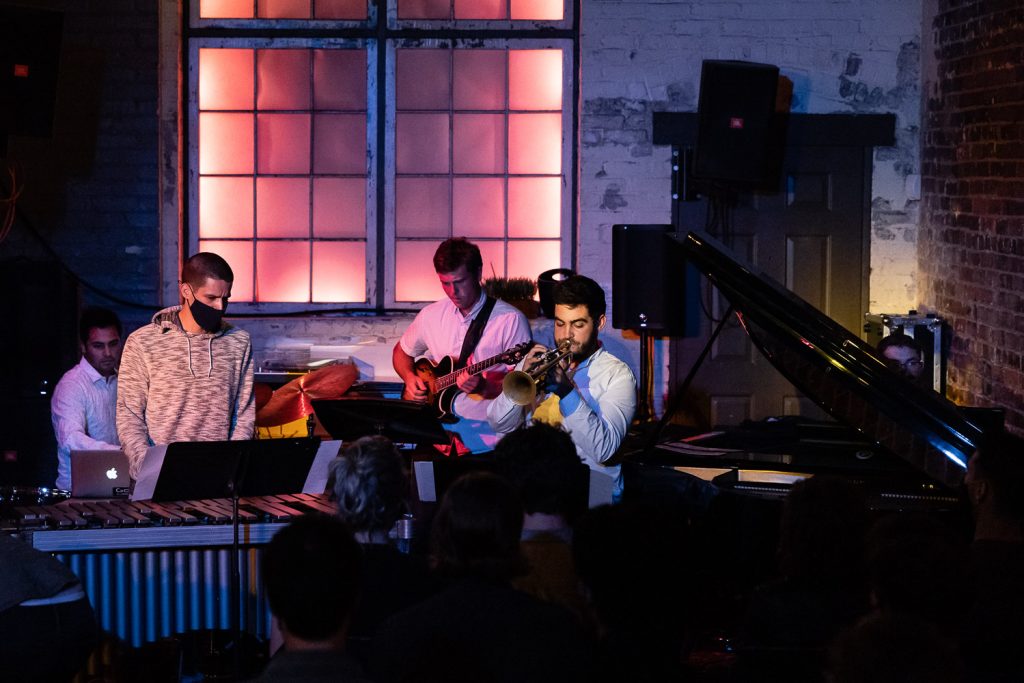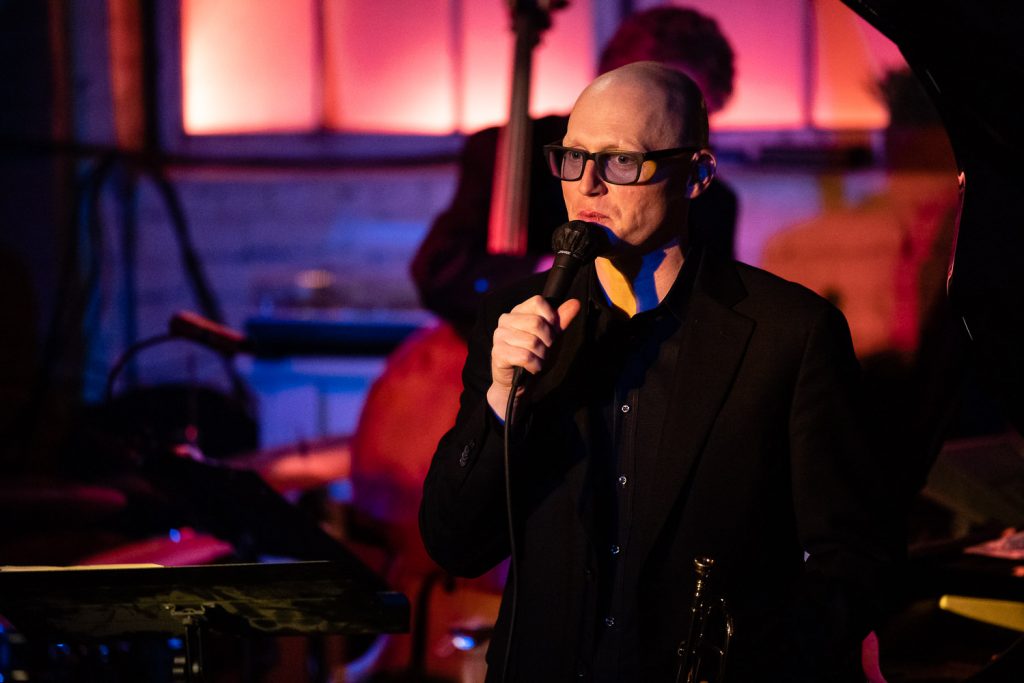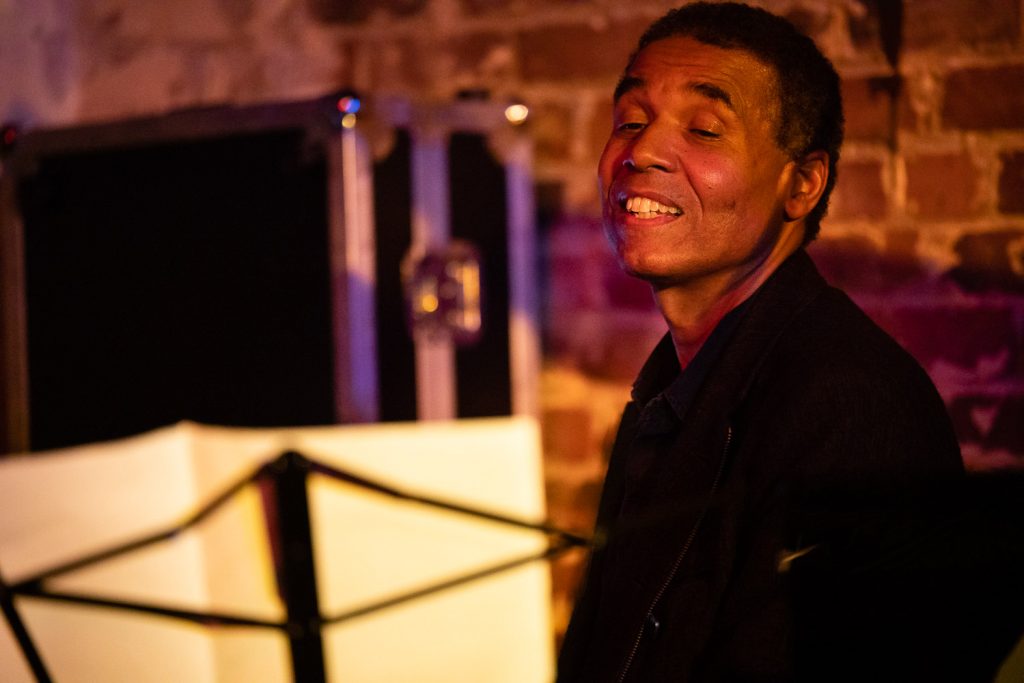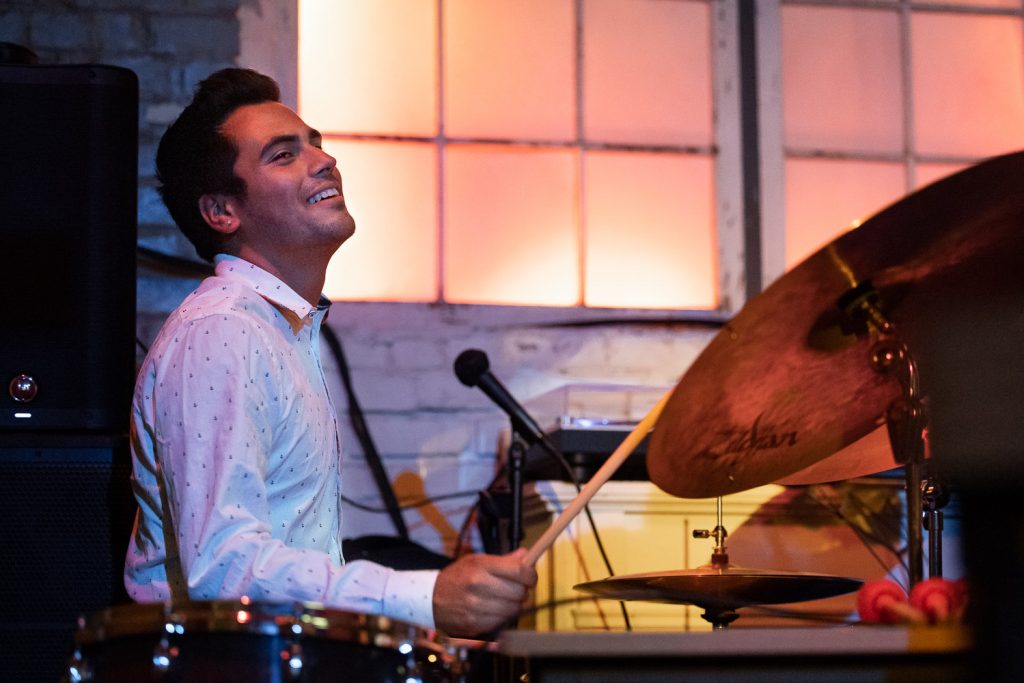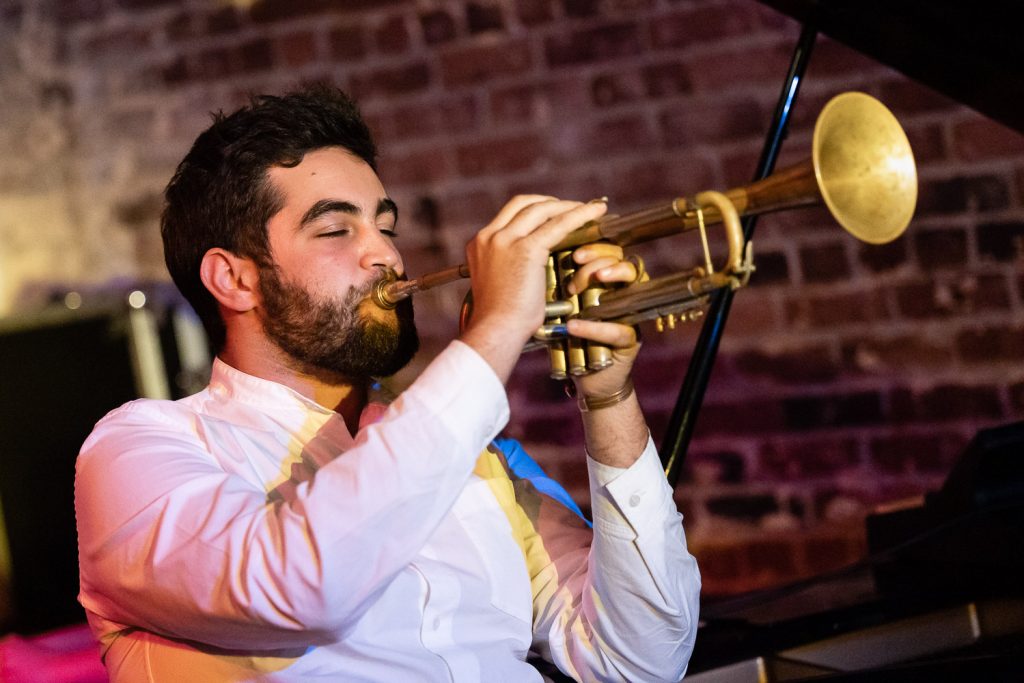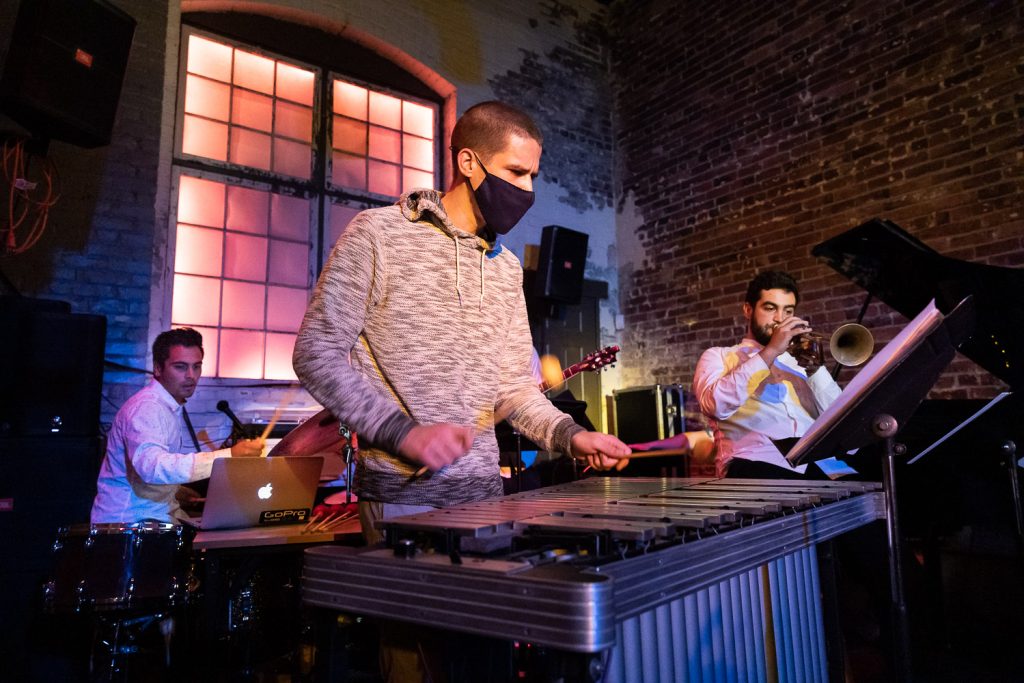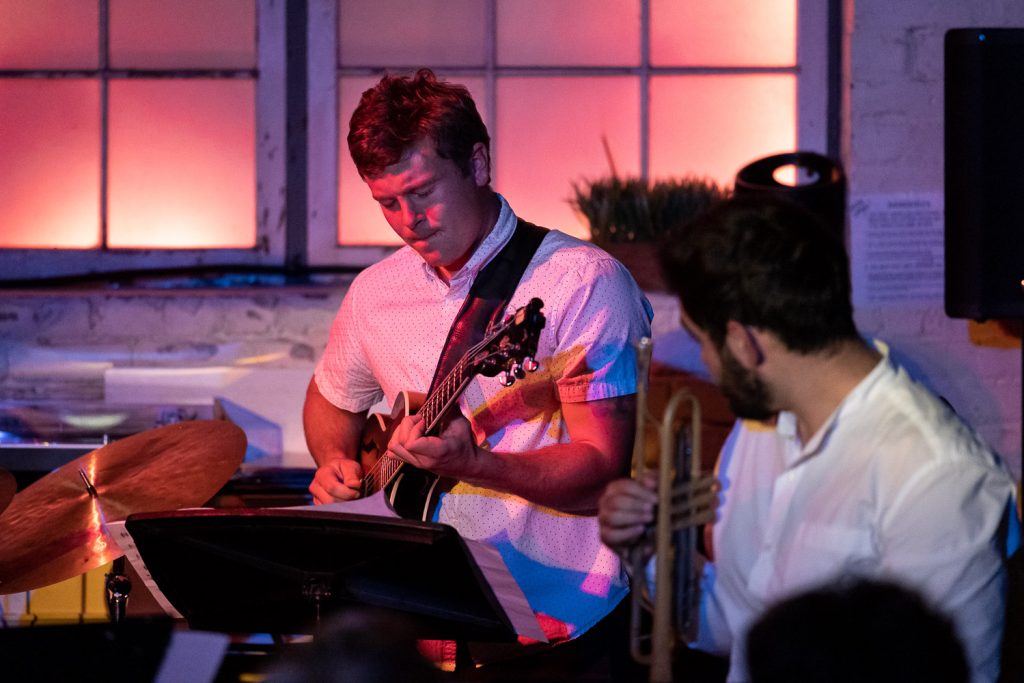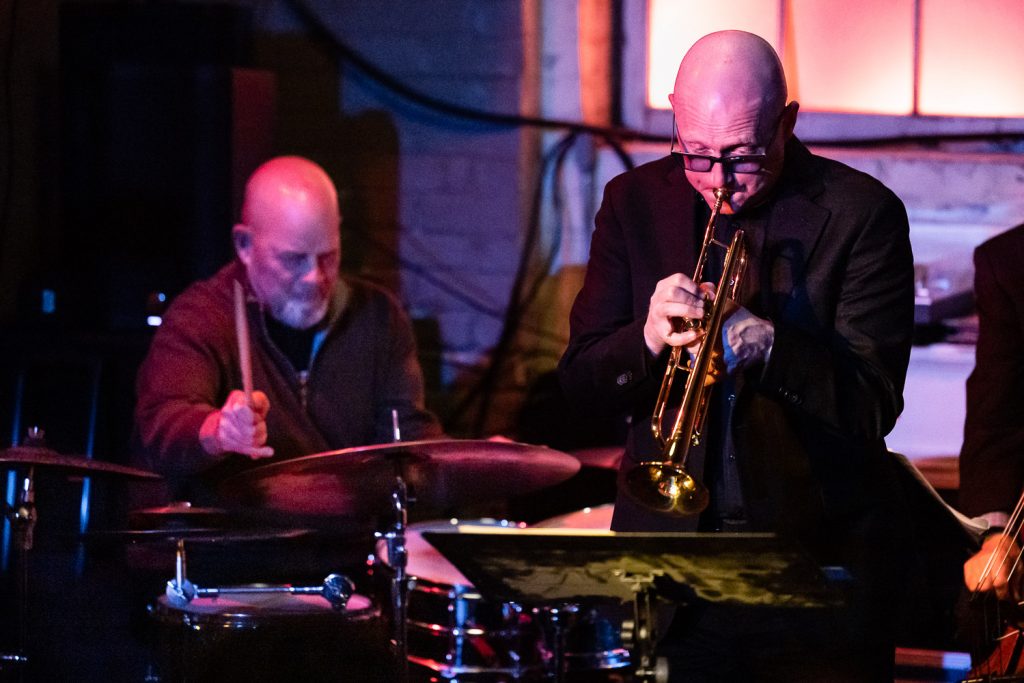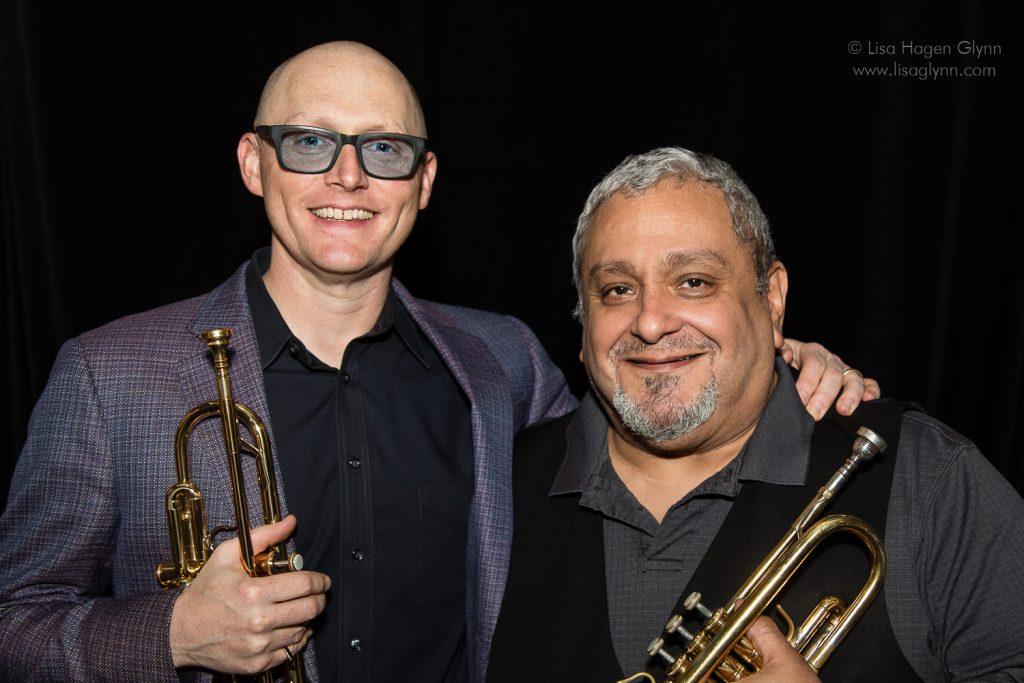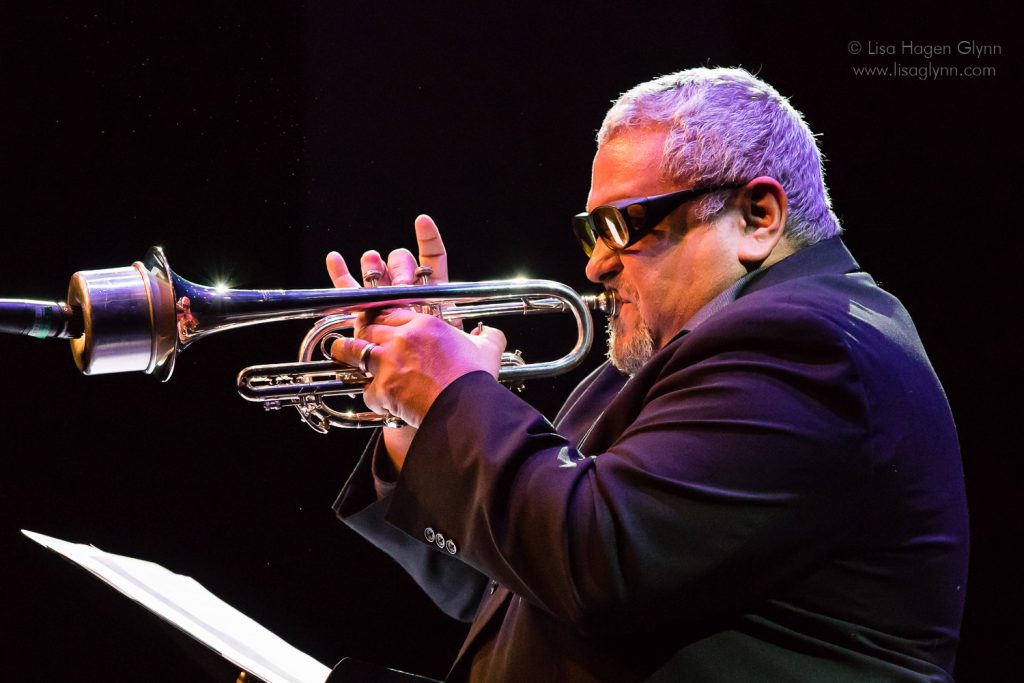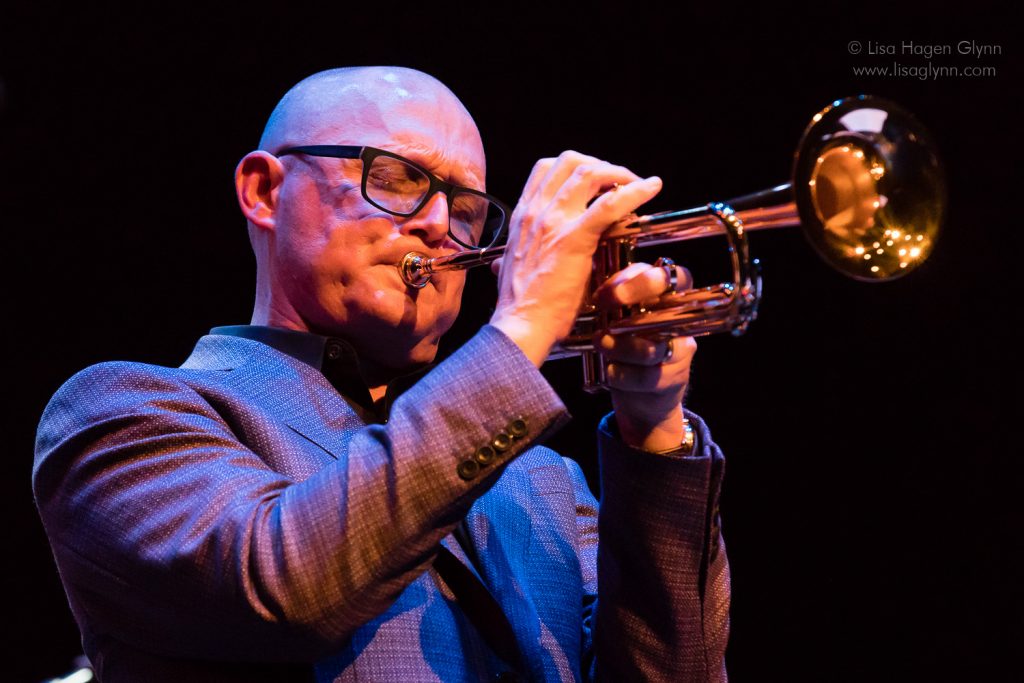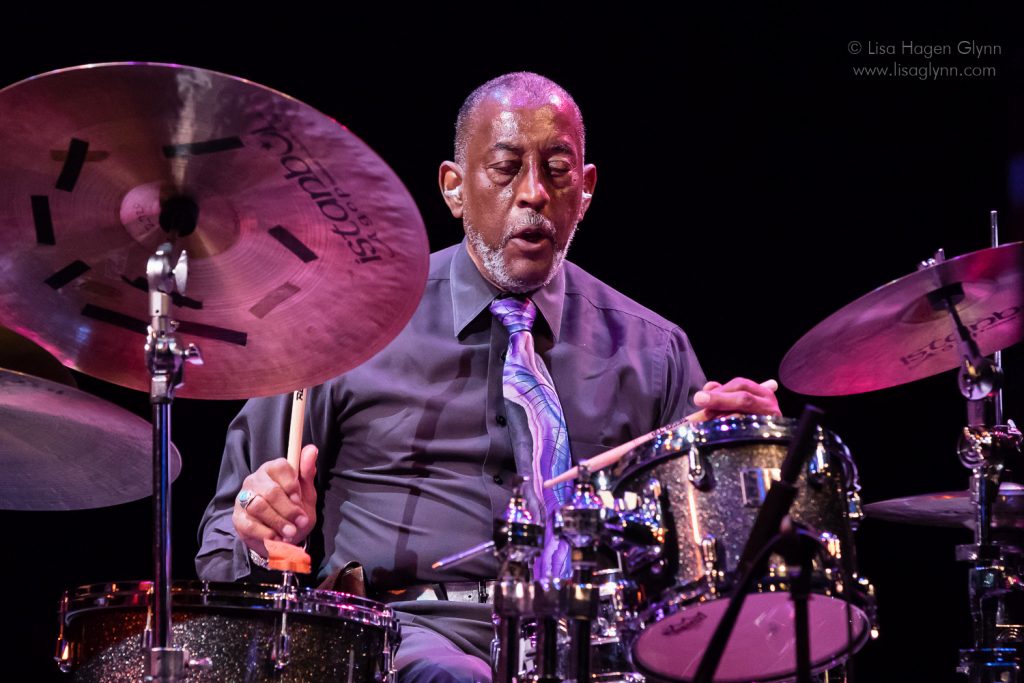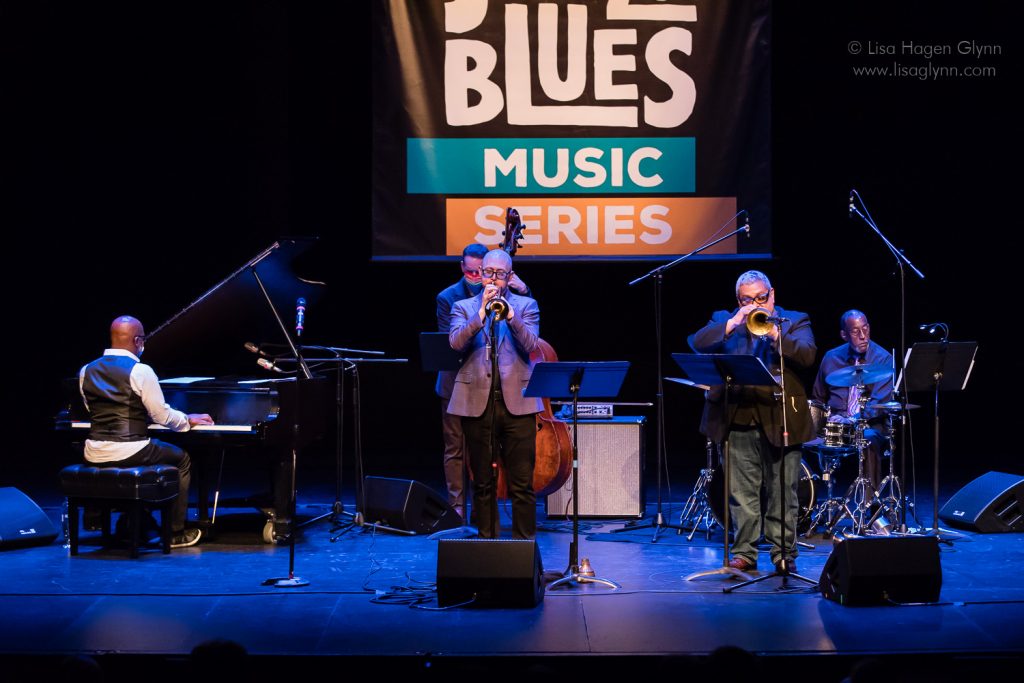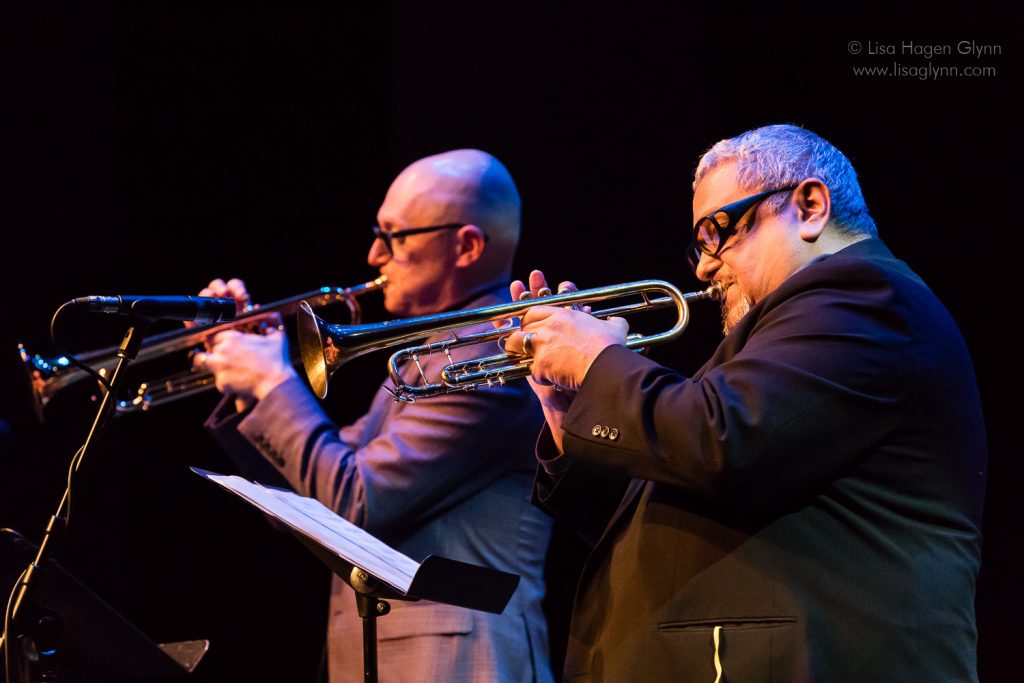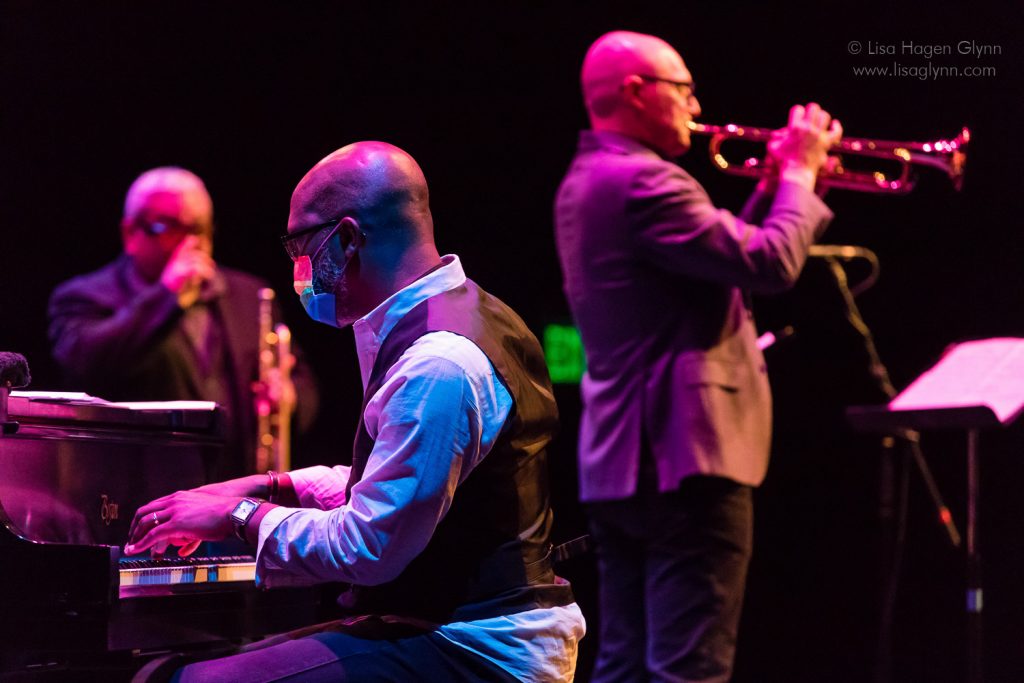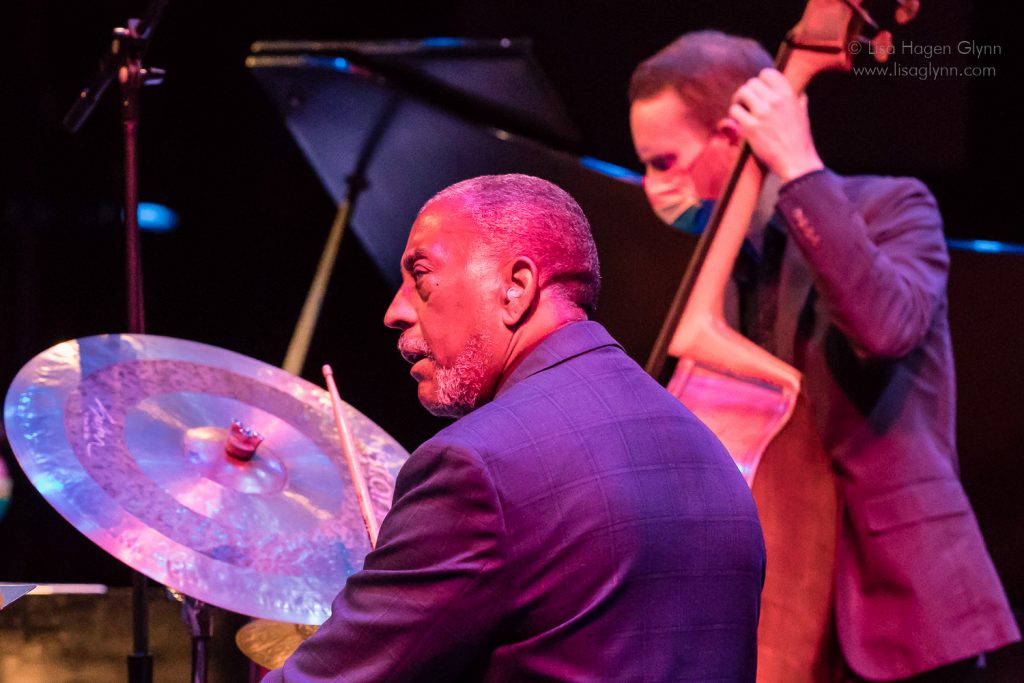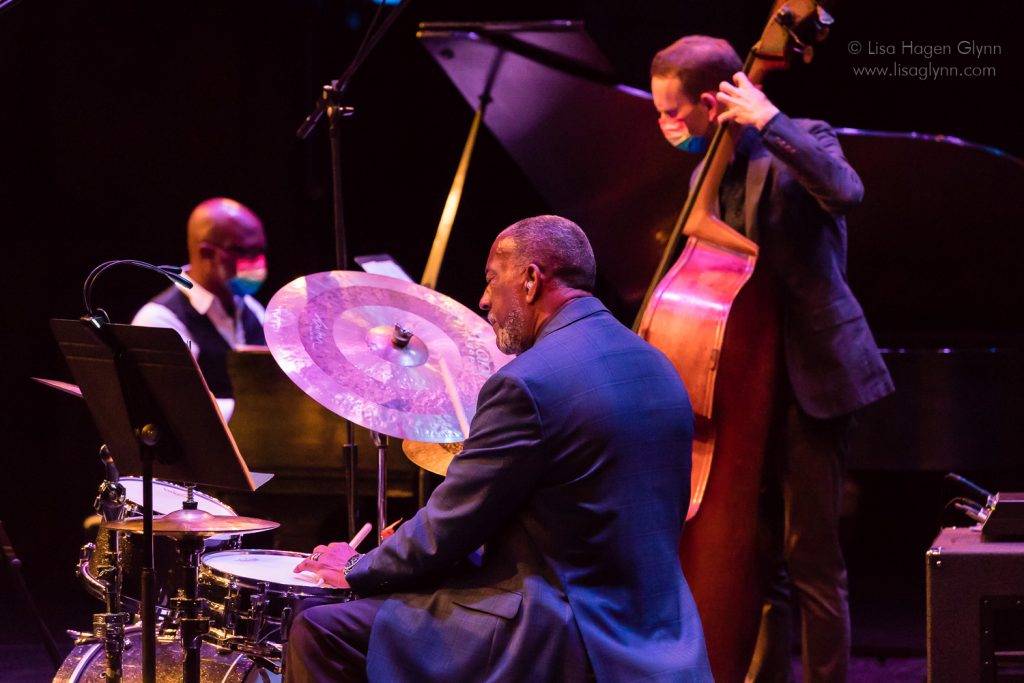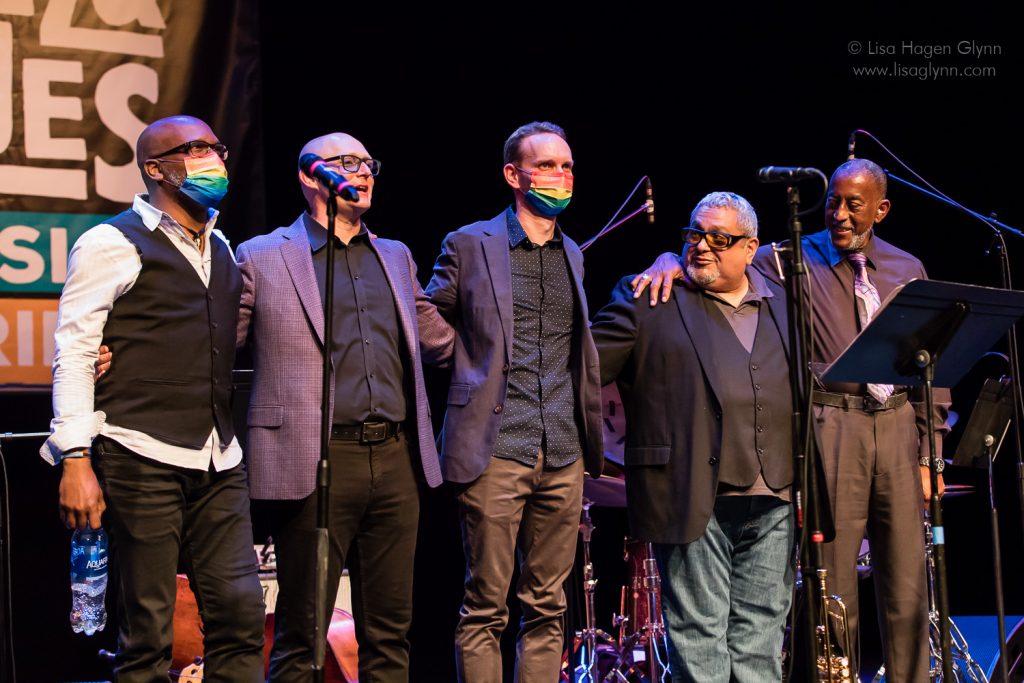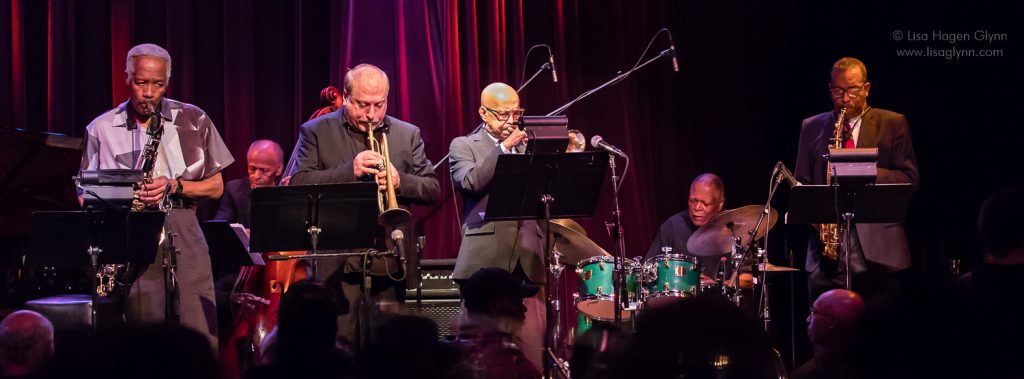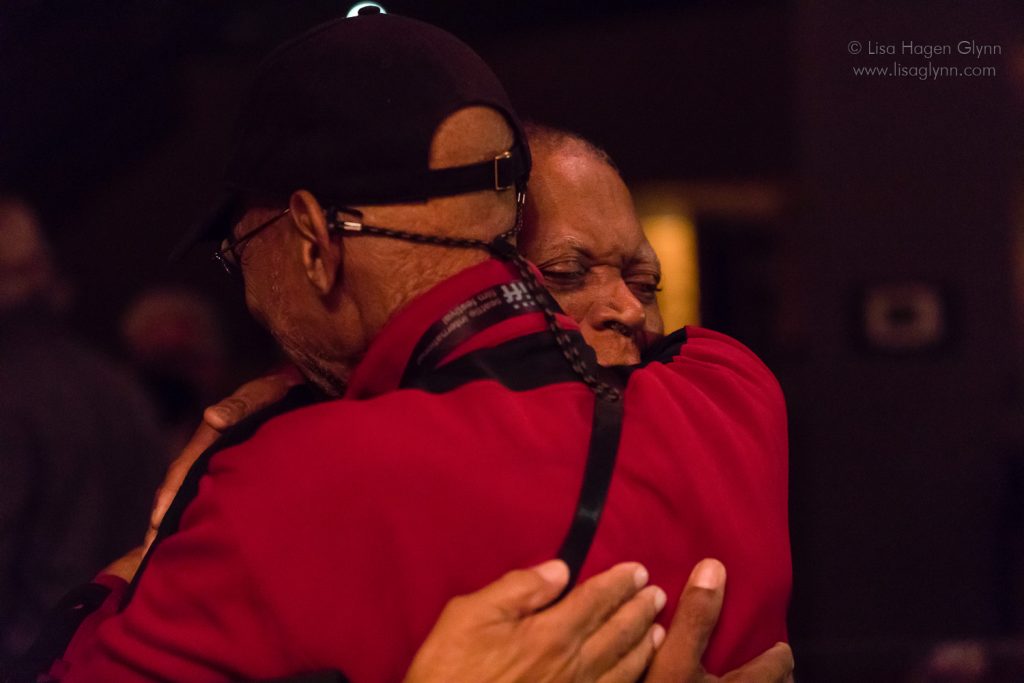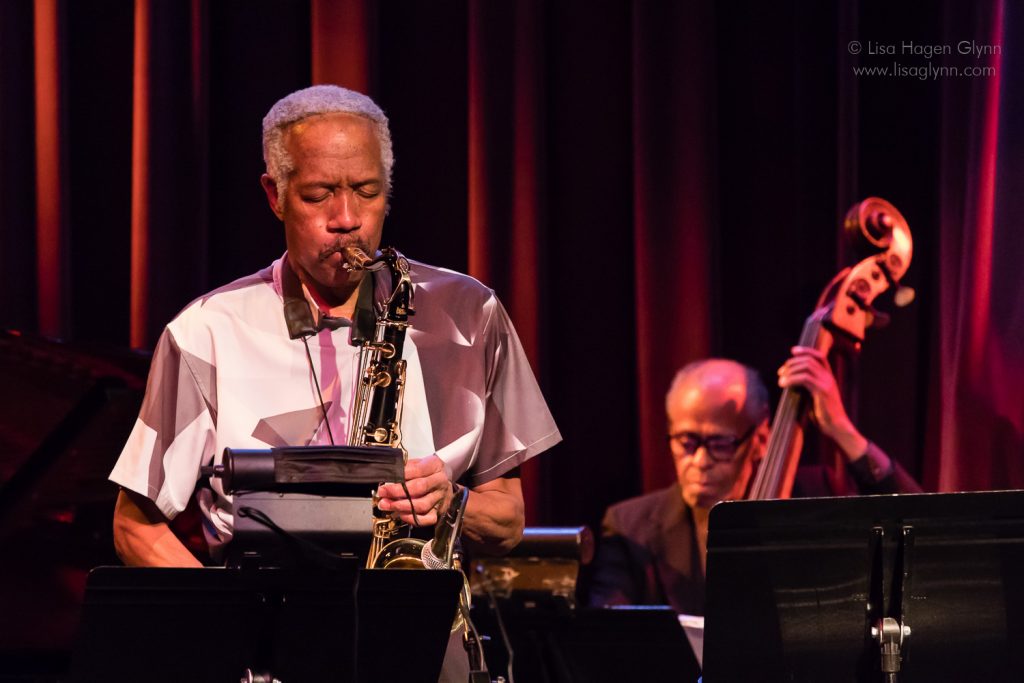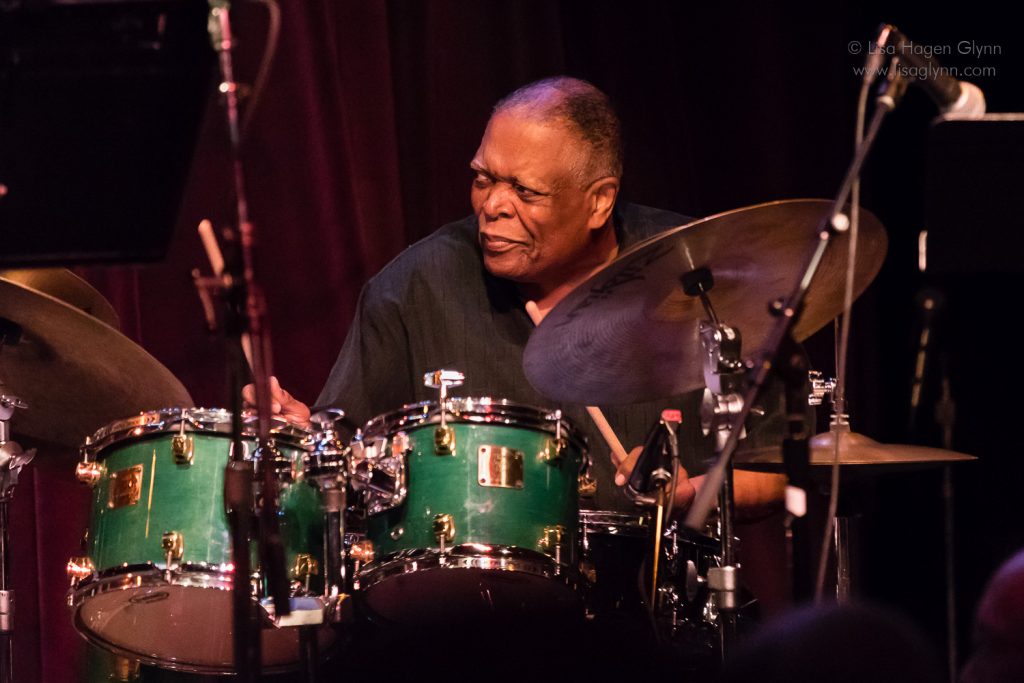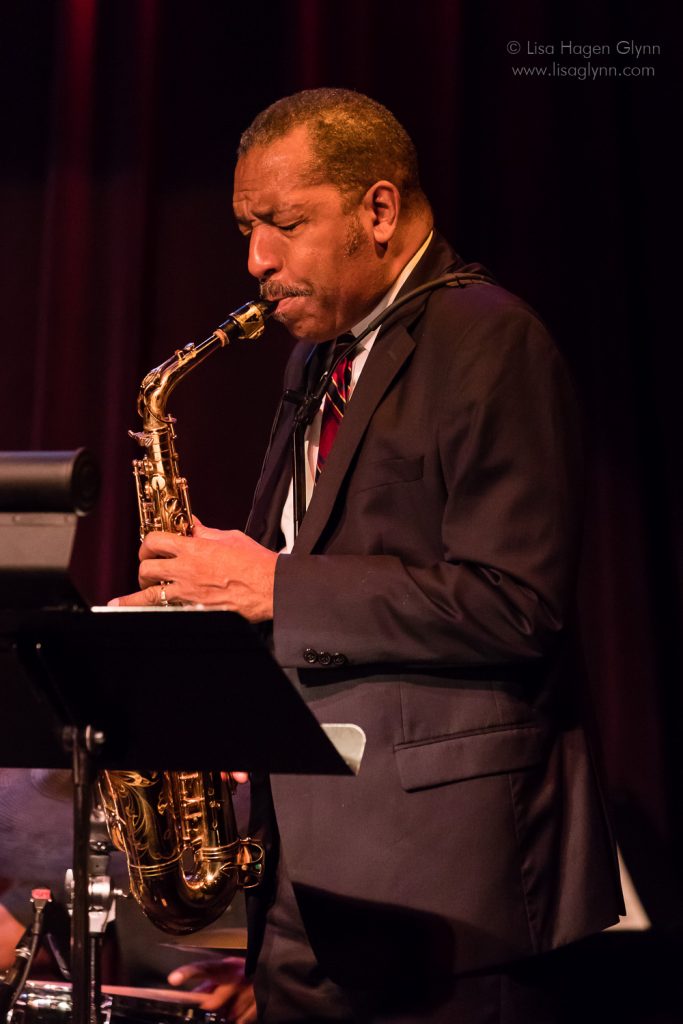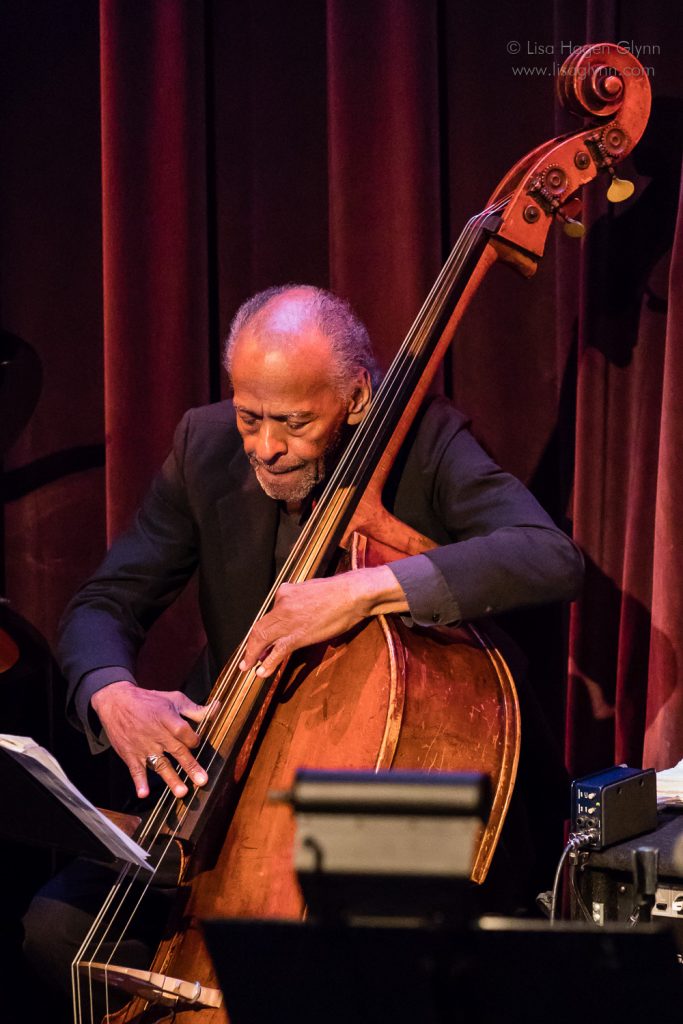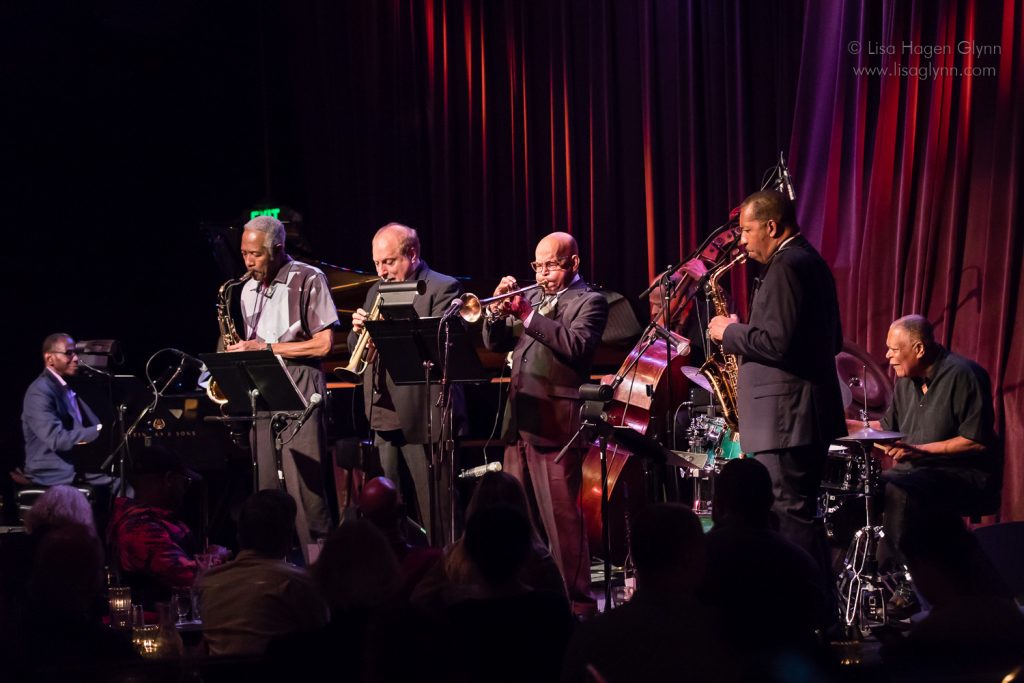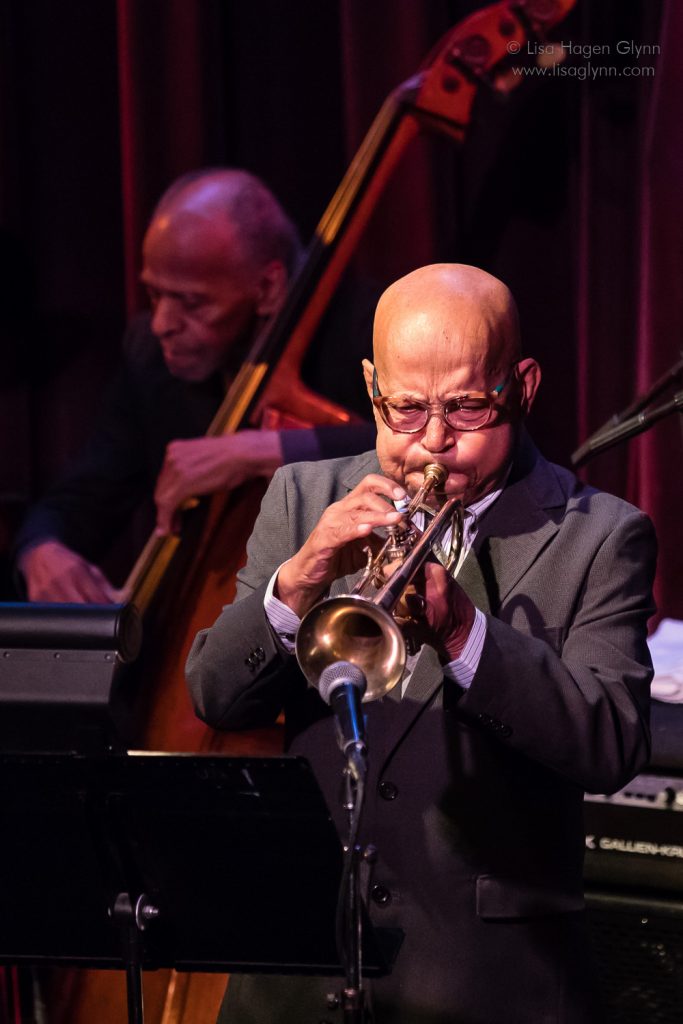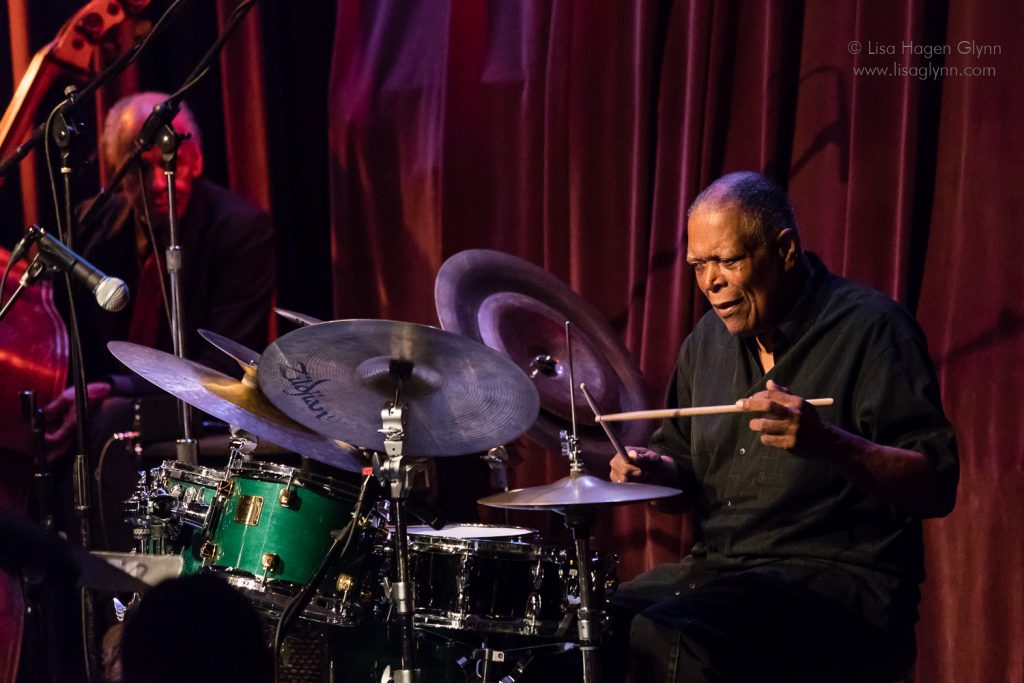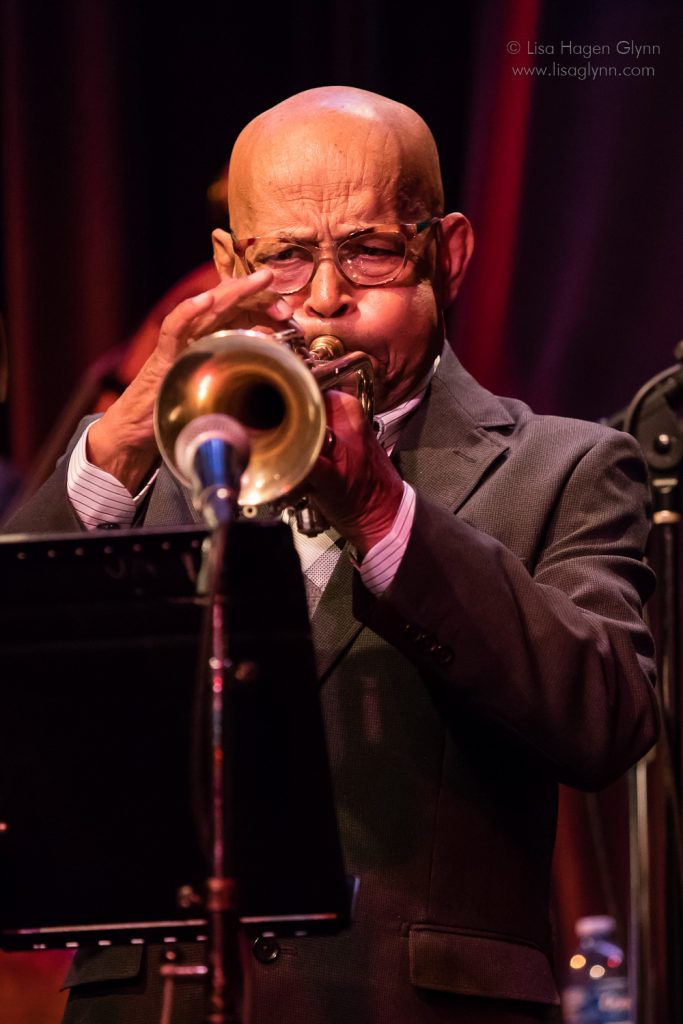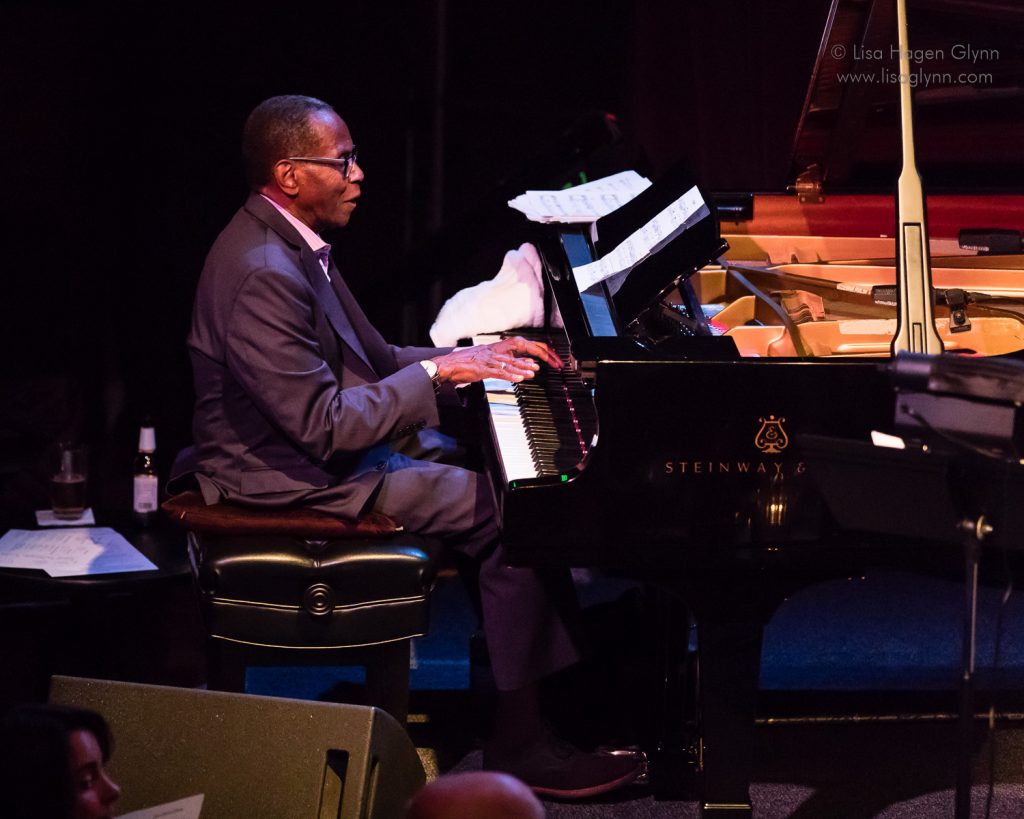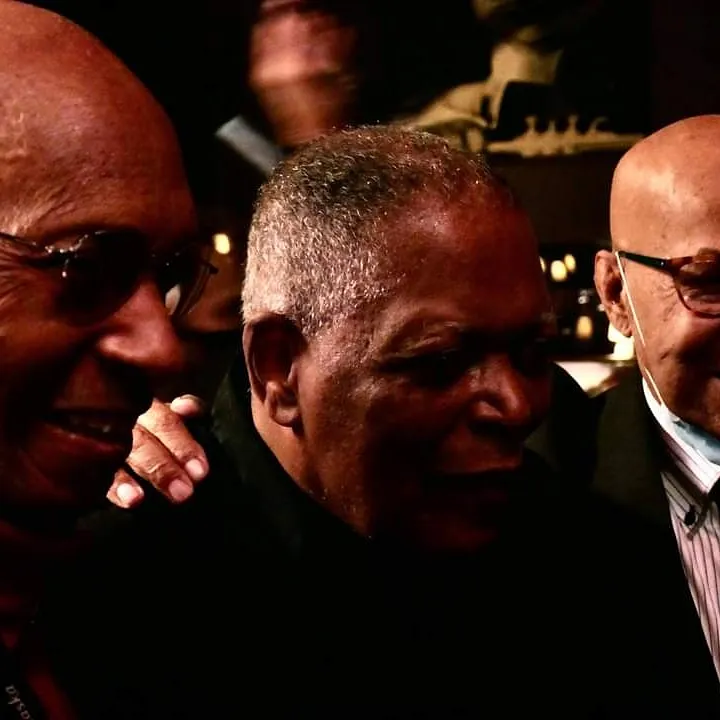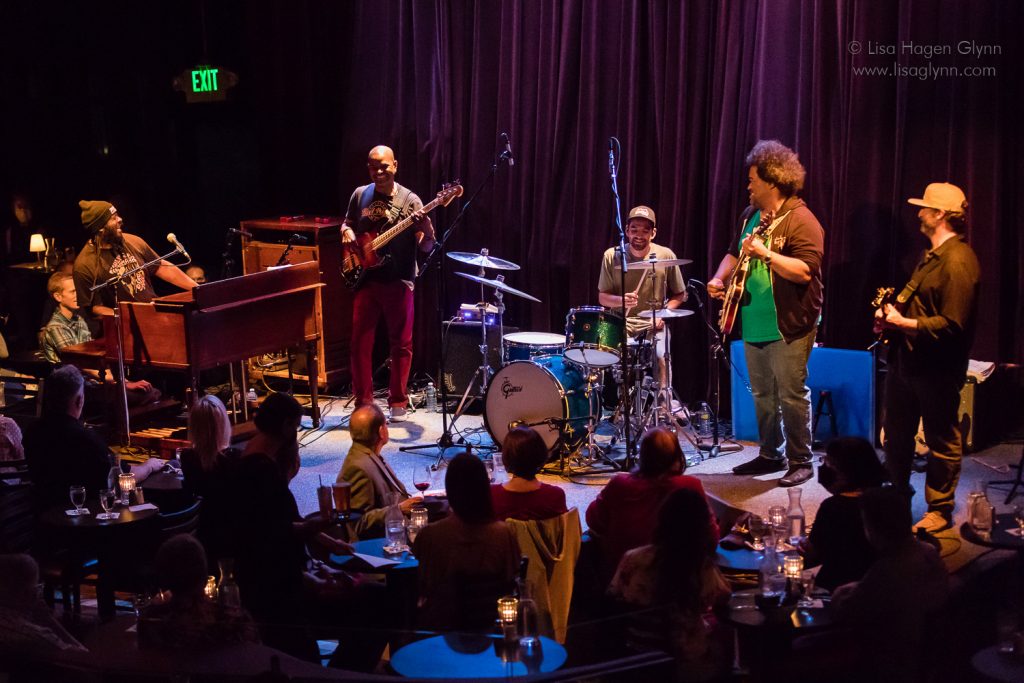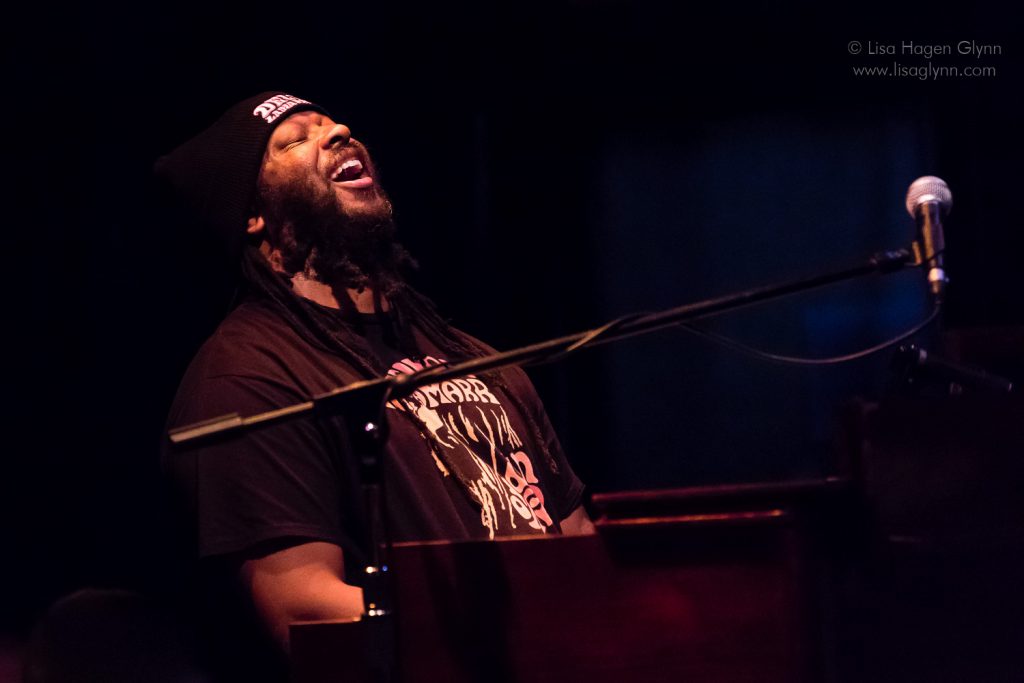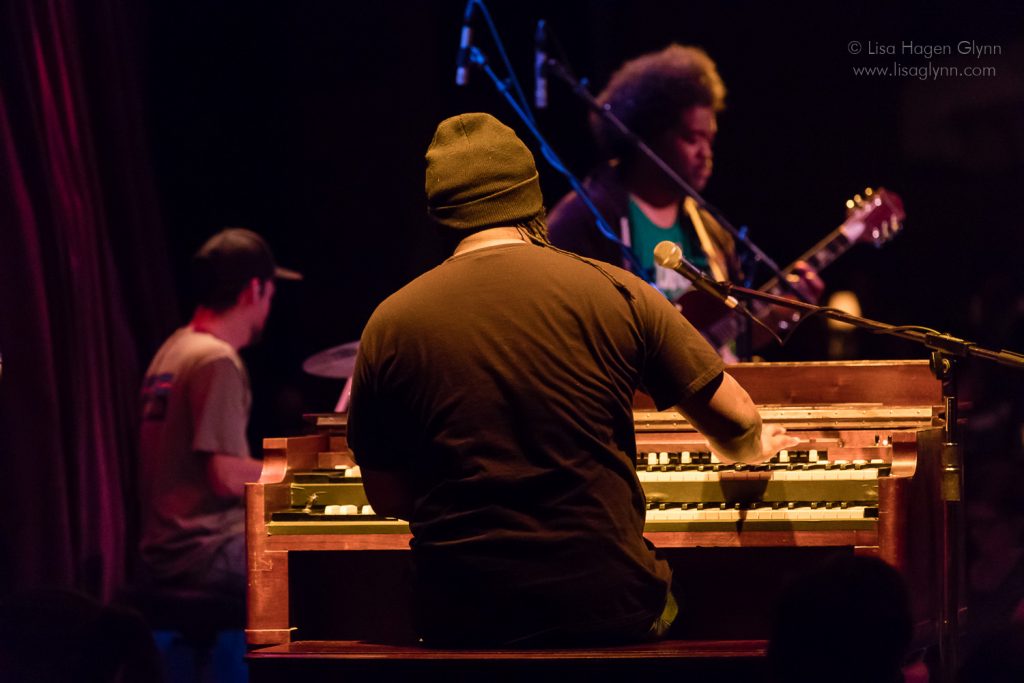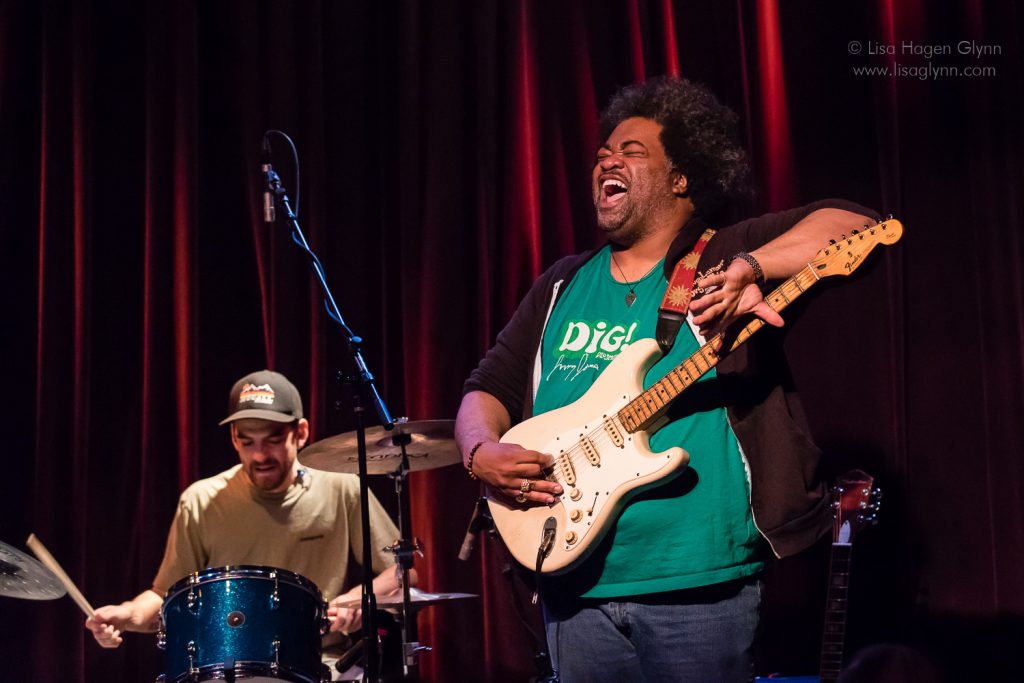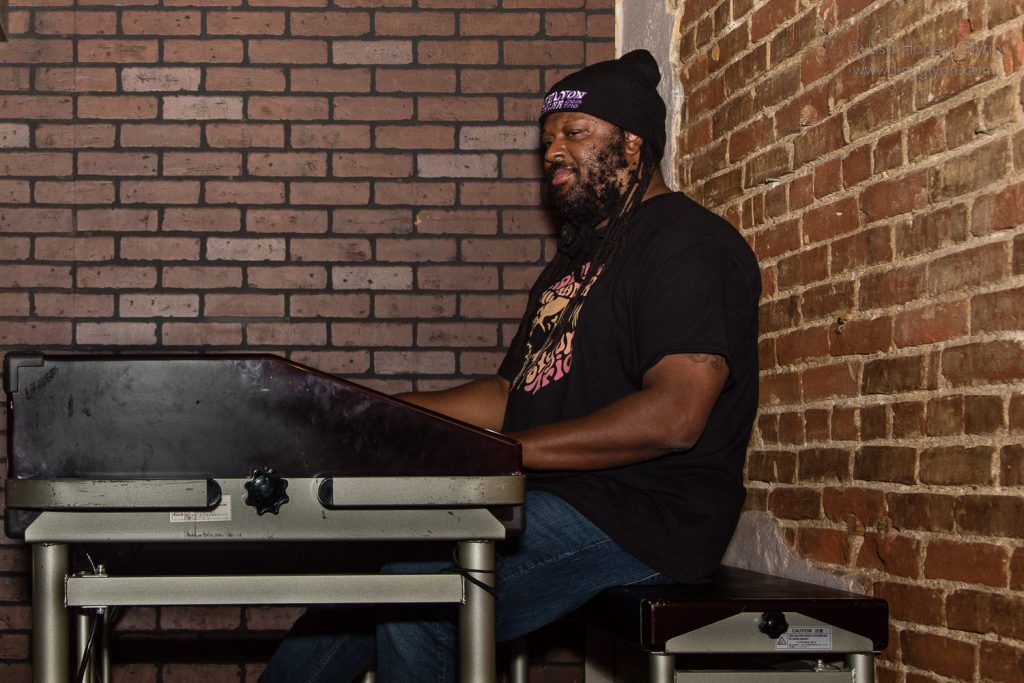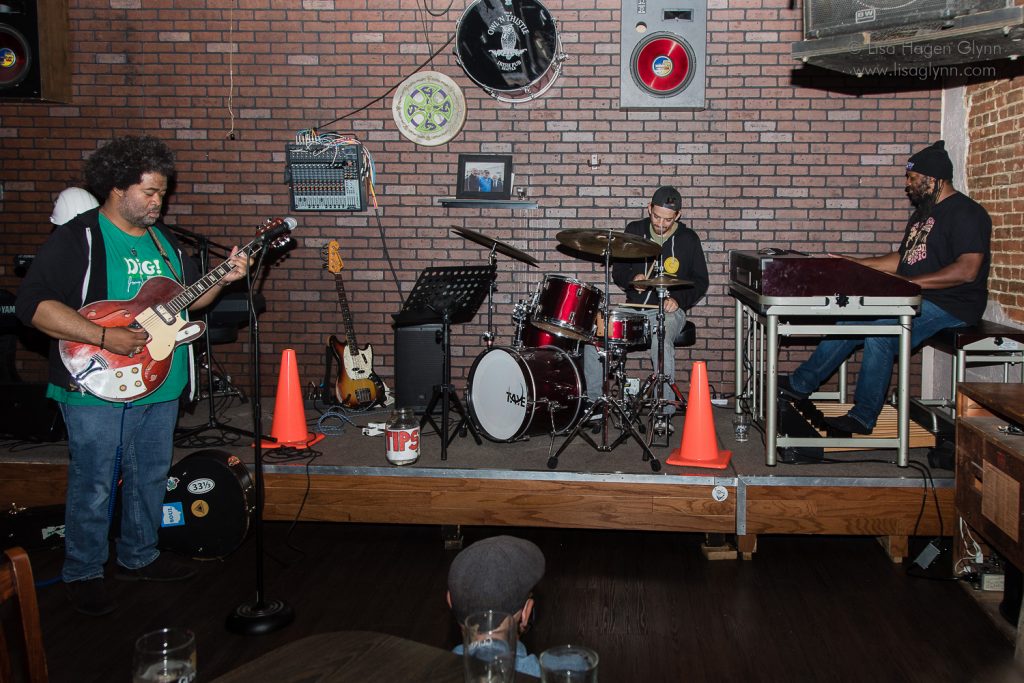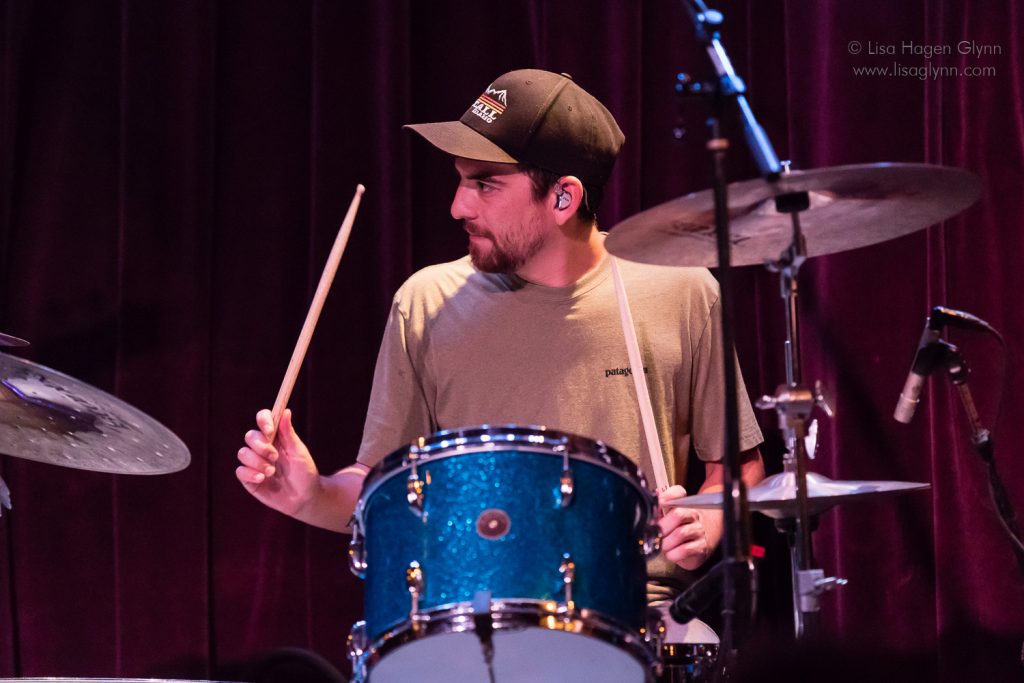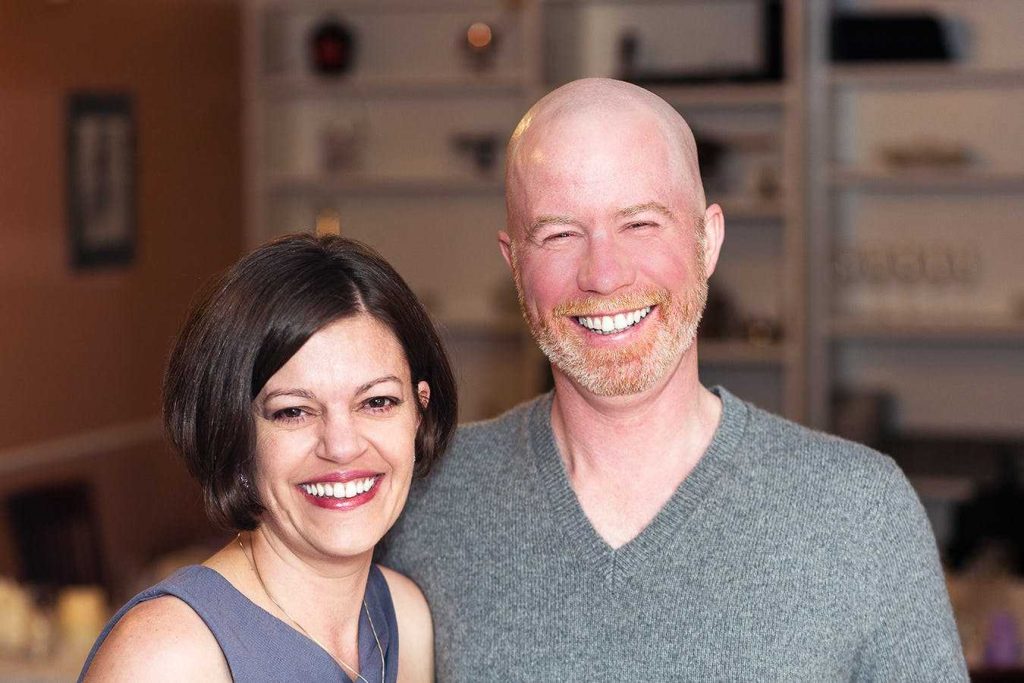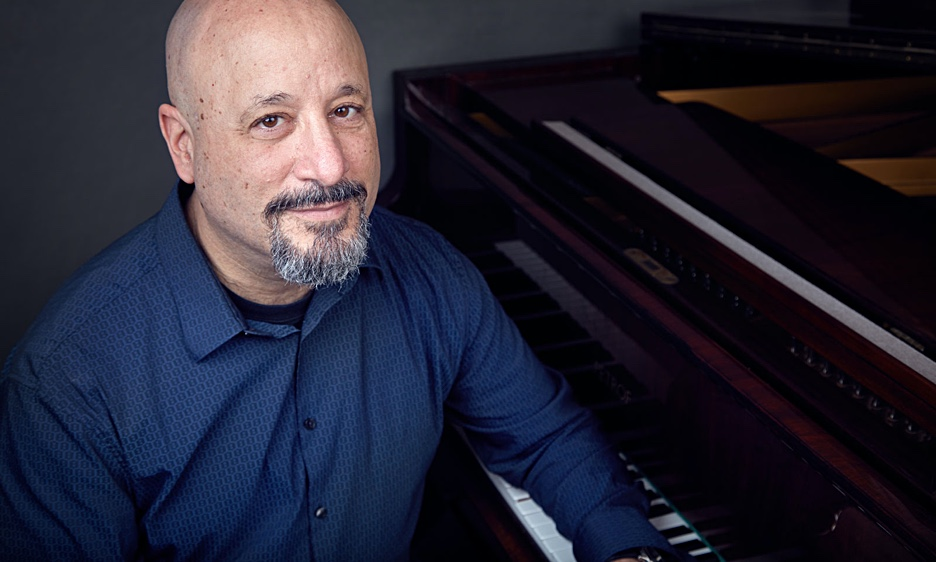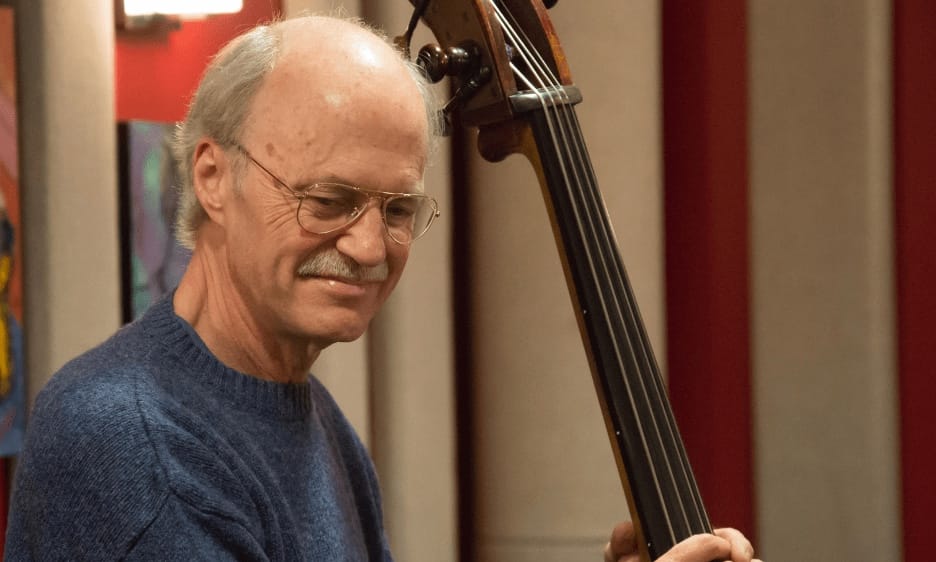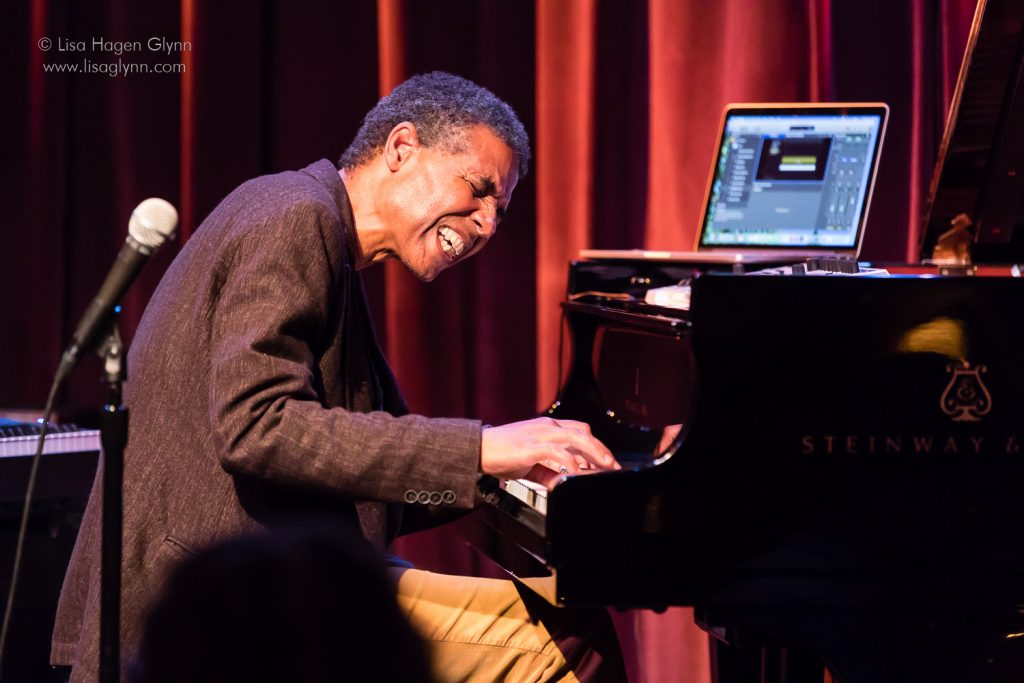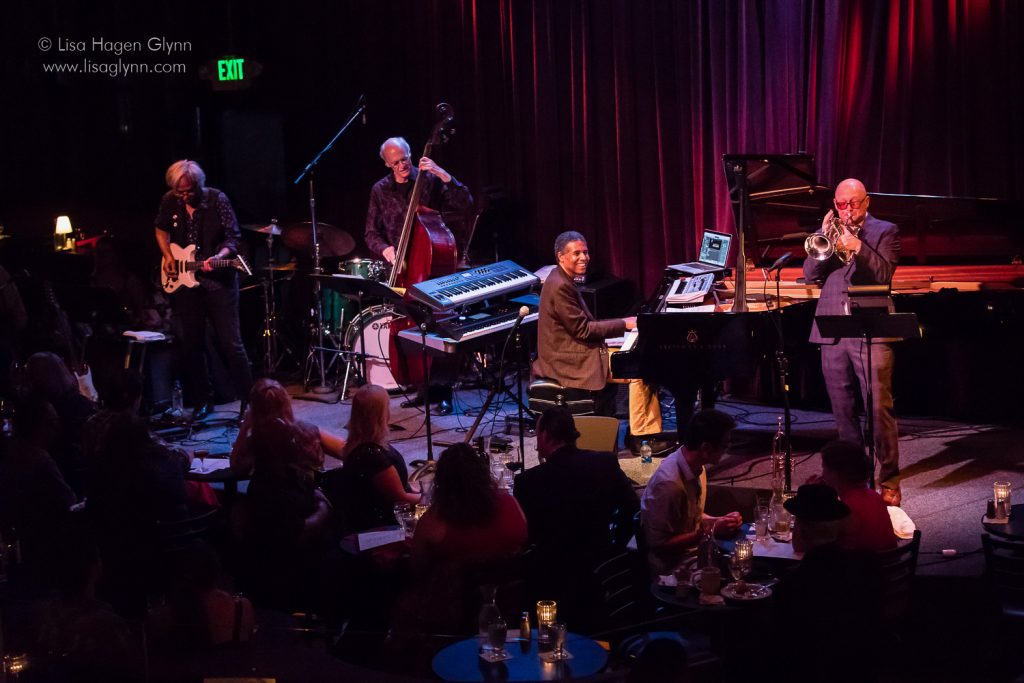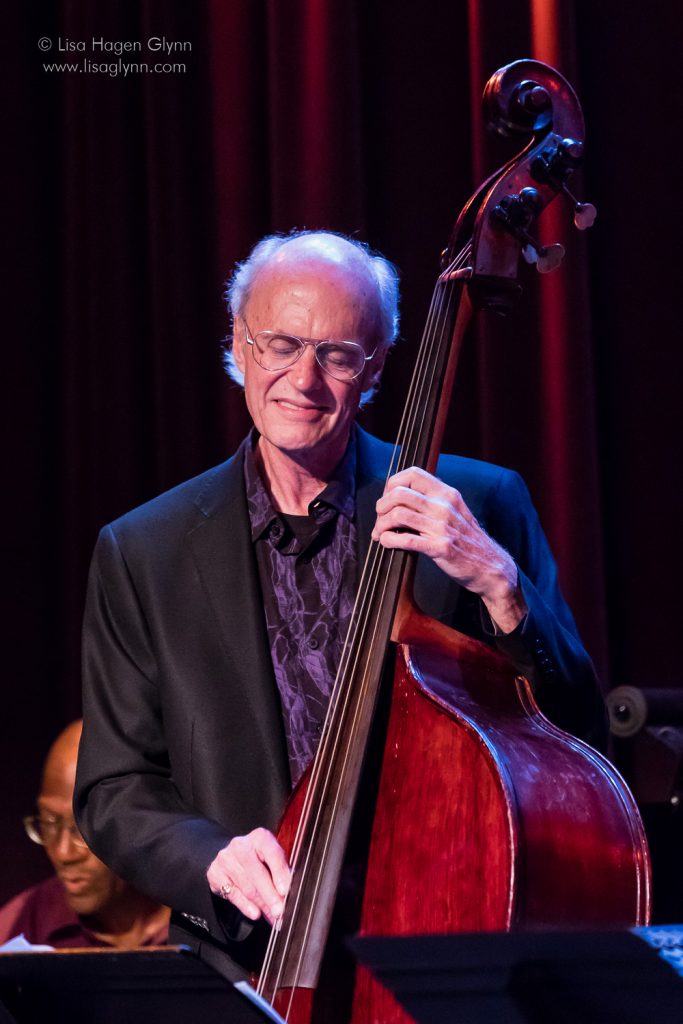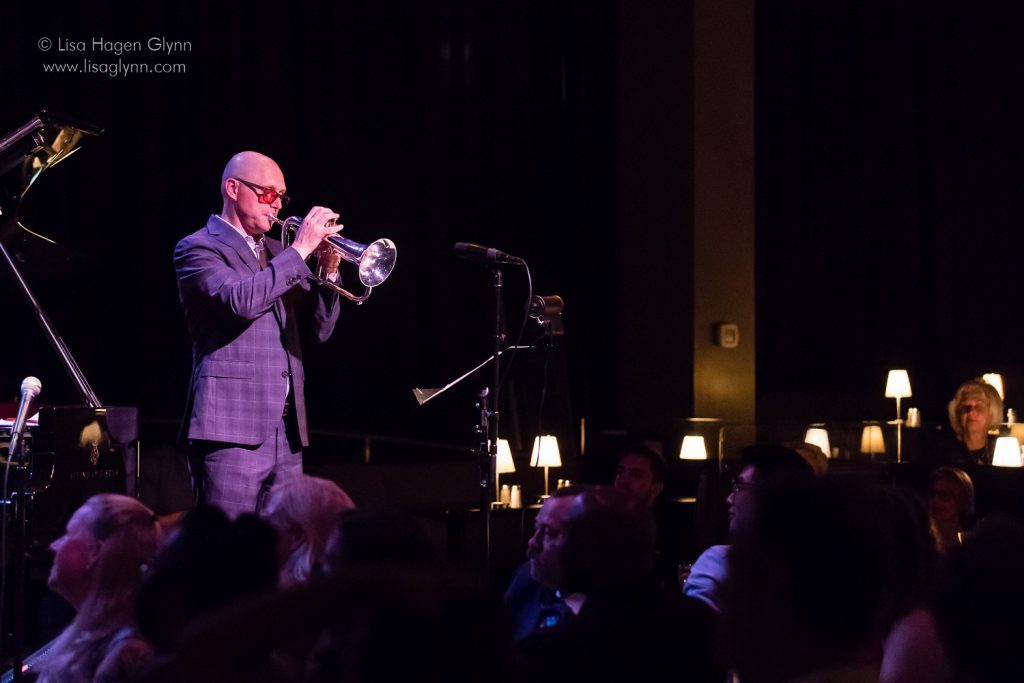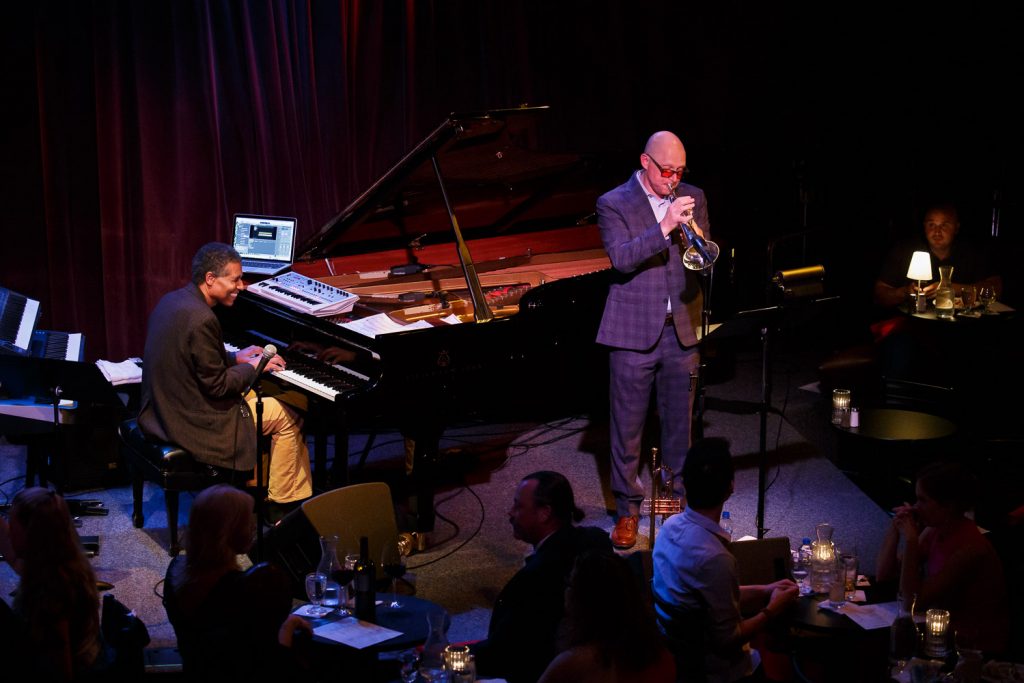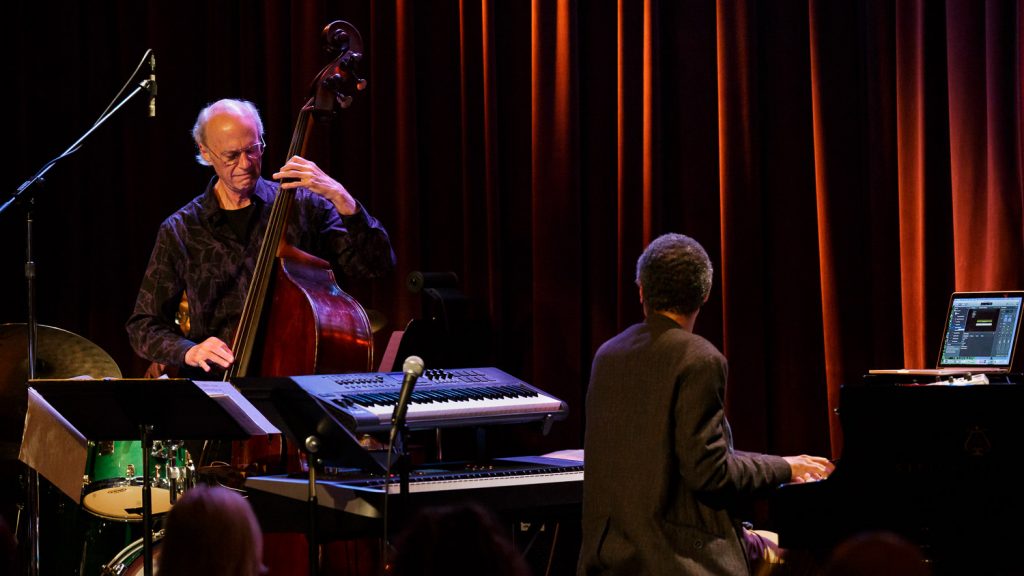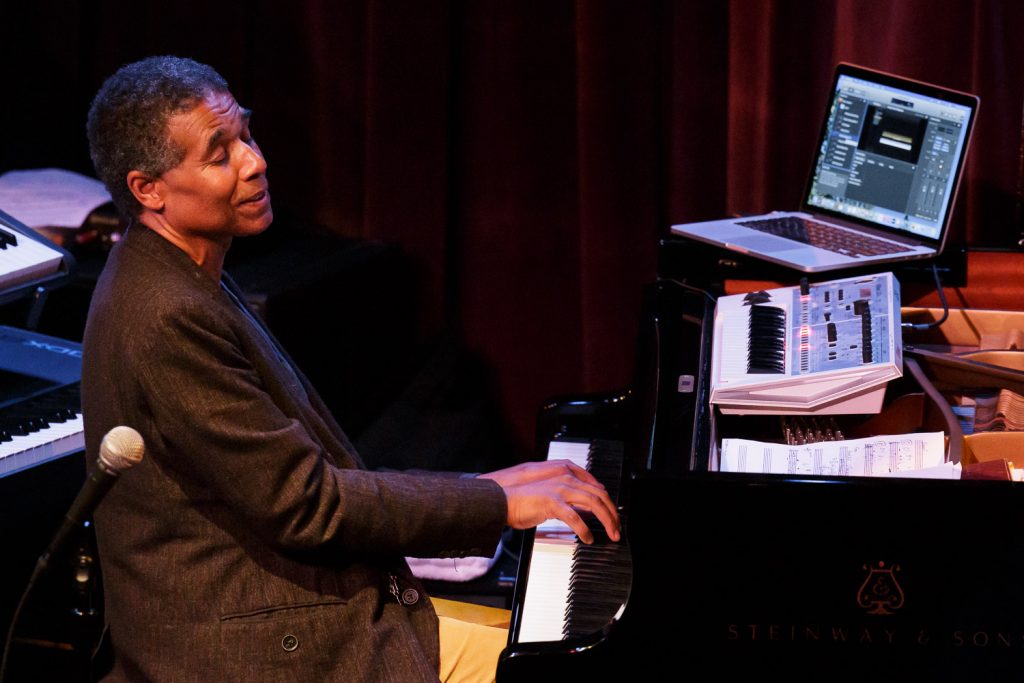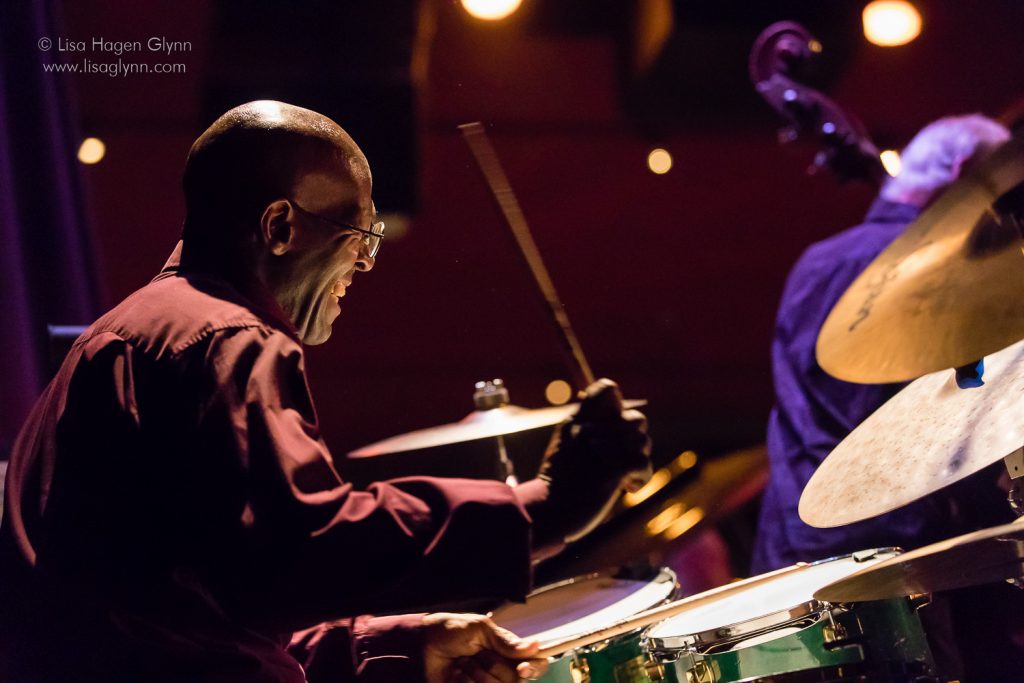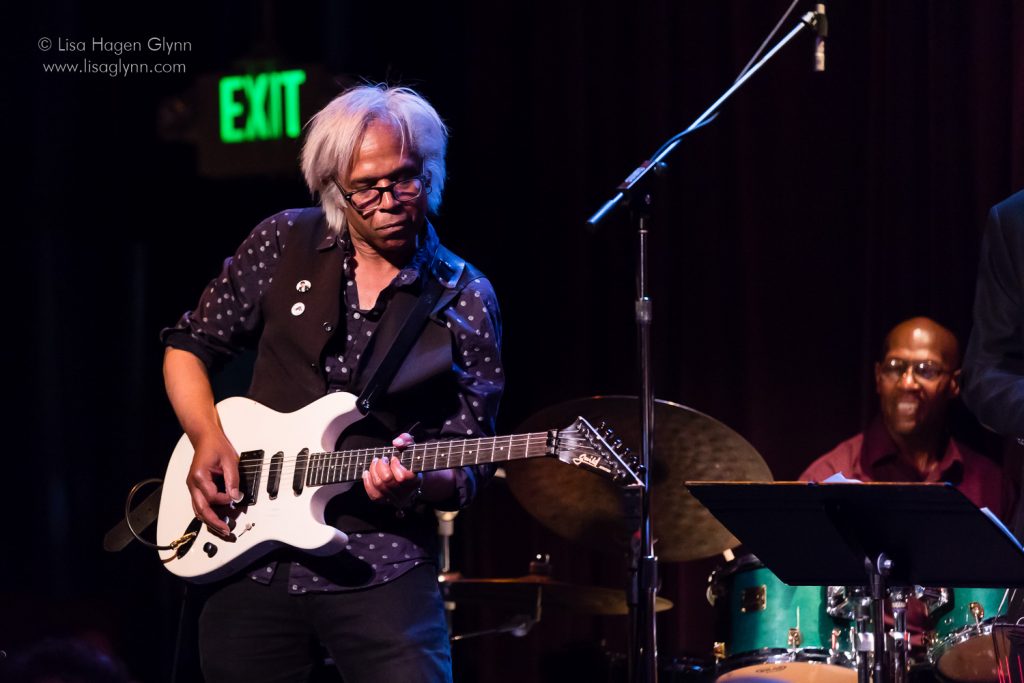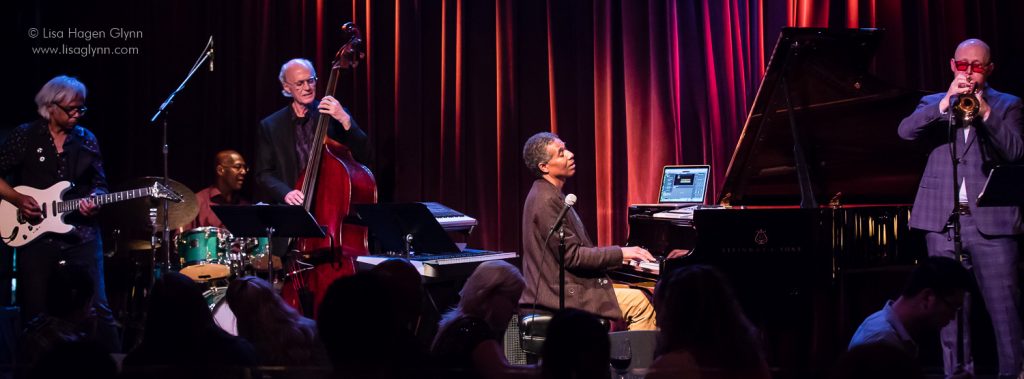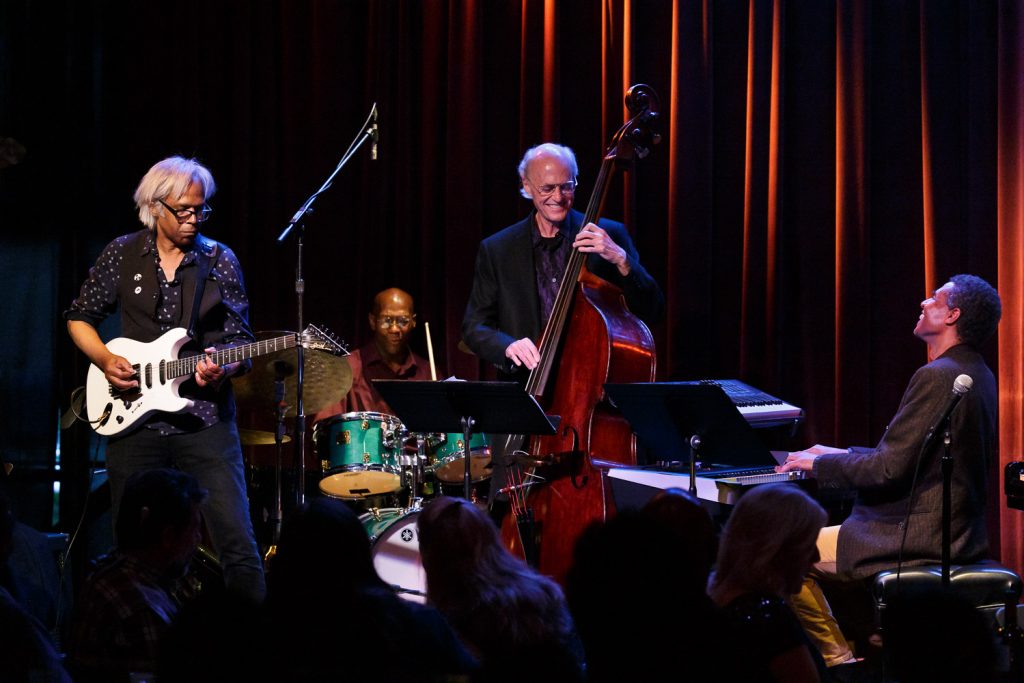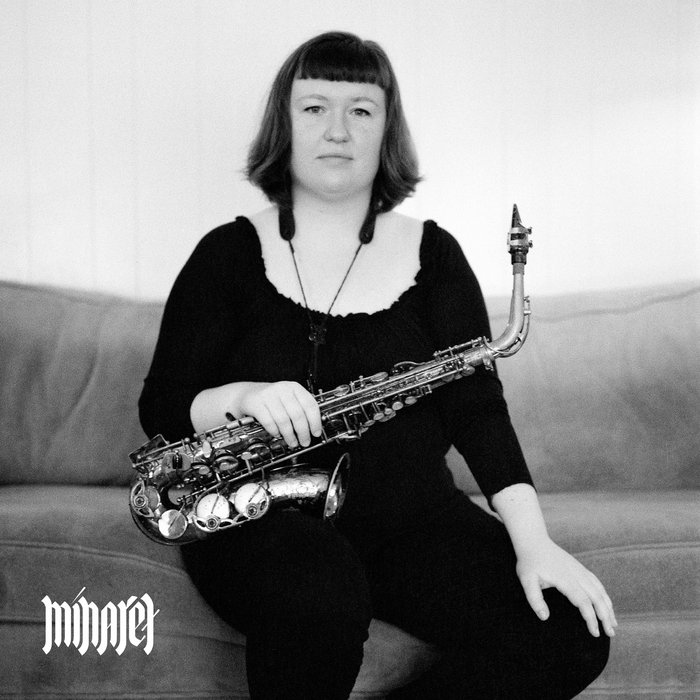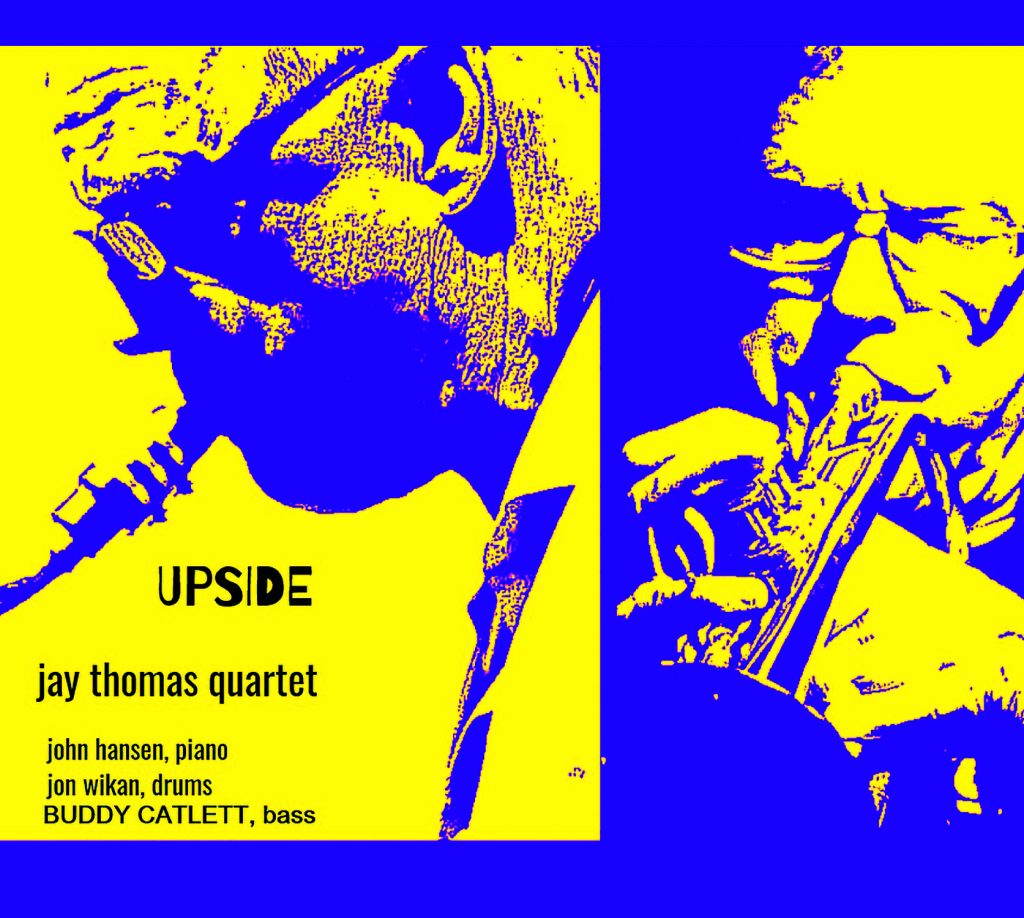Seattle Jazz Scene: Live Jazz Previews for Seattle
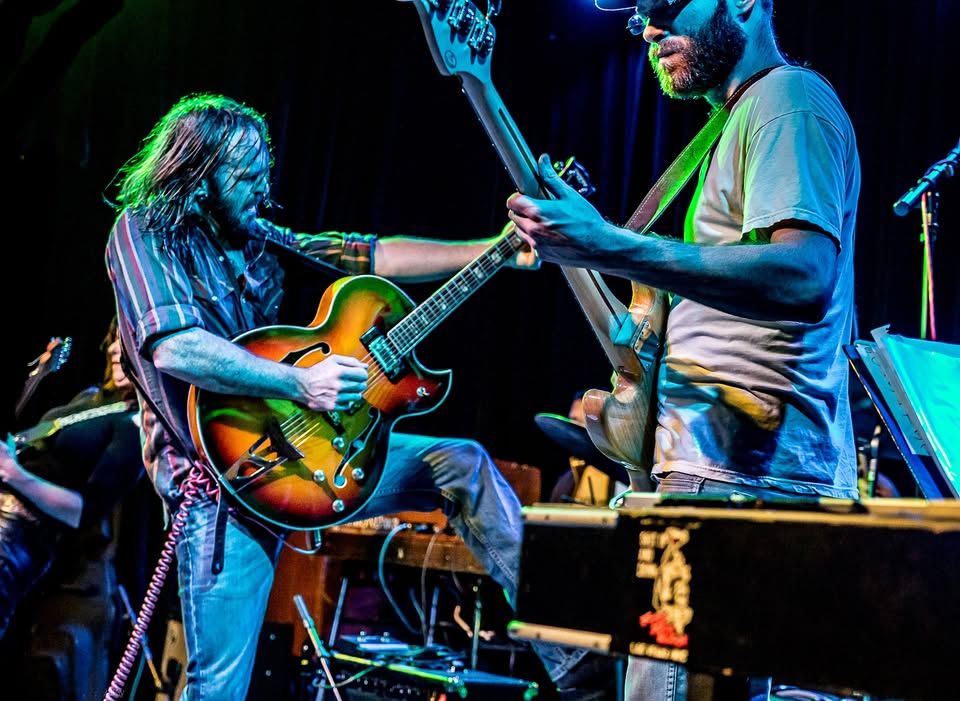
RL Heyer & Al Hemiola)
Fri Mar 6, 7:30 PM / Seattle Jazz Fellowship- 103 S. Main St.
Guitarist RL Heyer has always lived on the edge of differing styles that merge into a single voice that expresses clearly what guitar music has meant to now generations of music lovers. He can bask in the refinement of jazz guitar and in a flash be shredding hard rock riffs more reminiscent of Jeff Beck than a straight up jazz player. His playing bears the liberation of rock, the chops of jazz fusion and the cerebral aspects of post-bop jazz. Here, he hits The Seattle Jazz Fellowship with his trio featuring bassist David Dawda and drummer Brad Boal, themselves titans of instrumental versatility. For this gig, they add keyboardist / percussionist Bob Rees to the mix, with the possibility of more special guests hanging in the night air in Pioneer Square.
Heyer states that this band was formed with Khruangbin in mind, giving us another idea of what is to take place. Heyer is a musician that needs to be heard more on the jazz scene, making this booking a welcome change to what we might have seen in the dinner club reality of the past on the Seattle jazz scene. Many Seattle jazz fans may remember him from Tarik Abouzied’s Happy Orchestra pre-pandemic. http://seattlejazzfellowship.org
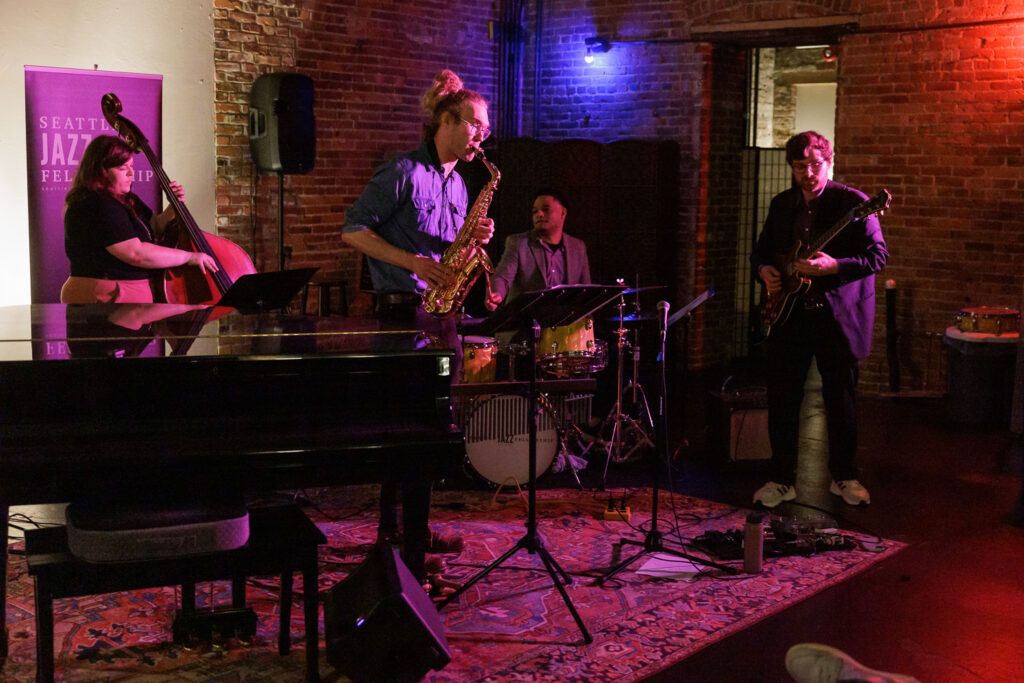
Ian Hughes Quartet
Sat Mar 7, 7:30 PM / Seattle Jazz Fellowship- 103 S. Main St.
Completing an all-guitar weekend at SJF, guitarist Ian Hughes makes his sophomore visit to the non-profit’s stage, leading a quartet featuring bassist Marina Christopher, saxophonist Michael Jedynak. and drummer Chris Patin. For this performance, they are joined by pianist Joey Walbaum. The evening will be an album release celebration of Hughes’ latest release, Dreamscapes, a work featuring his originals and skillful arrangements. http://seattlejazzfellowship.org

Monday Night Jam at Seattle Jazz Fellowship
Monday Nights, 7:30 PM / Seattle Jazz Fellowship- 103 S. Main St.
The Monday night jam in Pioneer Square has been quite the thing since the third Monday in January 2025. The session has been a gathering spot for some of the best musicians in town, from seasoned professionals to ascending high school and college players. It has also become a focal point for gen z to gather socially outside of the shadow of technology and screen life. Each week the club is full, and a line ascends up the stairs, around the corner and down First Avenue. These young people arrived via a Tic Tok video with the idea of an all ages, cover free experience with new music performed honestly, in the moment. They became a jazz audience with much more reverence for the music than most sessions. They listen, applaud solos, cheer on their favorites and deeply enjoy the idea of musicians creating on the spot jam style. We long-time patrons of the art are right there alongside them and it is a true joy. The musicians, both in house band led by Thomas Marriott, and the jammers feel the vibe as well. The early start and end allows for those who have school and work the next day. If you are looking for a ray of hope in our city, this may be your gig. Show up by 7 PM and you should have a seat. Musicians enter at will as long as they sign up to play. https://seattlejazzfellowship.org/

Tuesday Night Jam at the Owl
Tuesdays at 9:30 PM / Owl & Thistle
The Tuesday night jam at the Owl is a Seattle tradition dating back to 1997, and a band known as Bebop and Destruction. It’s interesting, and often zany history includes wild antics, colorful characters and many a drop in from national touring musicians including Wynton Marsalis, Roy Hargrove, Branford Marsalis, Emmett Cohen and the Spanish Harlem Orchestra. Pianist Eric Verlinde guided the jam into more tranquil waters over his eighteen years directing the session, a tenure that recently ended. Pianist Matt Williams has now taken the reins, injecting a new found enthusiasm and freeing up Verlinde to come and hang and play! The 9:30 start enables musicians with gigs that evening to show up and play after the opening set that lasts forty five minutes or so.
The session is very important within the musical and social fabric of the Seattle jazz scene. The very interesting and often humorous history of the session is well documented in an article I wrote for All About Jazz a few years back. Link provided below.https://www.allaboutjazz.com/tuesday-night-jams-at-the-owl-a-25-year-legacy-in-seattle
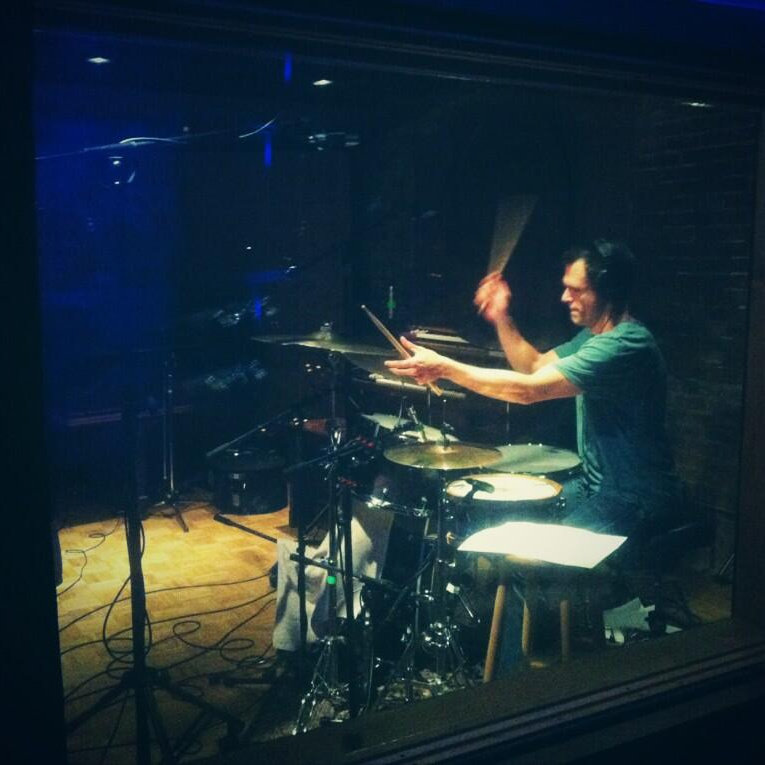
Claudio Rochat-Felix Trio
with Tim Kennedy & Trevor Ford
Thu Mar 12. 7:30 PM / Seattle Jazz Fellowship
Drummer Claudio Rochat-Felix is back in town, and teaming up with pianist Tim Kennedy and bassist Trevor Ford for a trio date at SJF. Kennedy plays a lot of dates around town, including as the pianist in the house band at the Monday night jam in Pioneer Square- but it’s been awhile since we’ve seen him on a trio date. Ford is also a member of that Monday night house band, with Rochat-Felix a long-time associate of Kennedy’s here in Seattle, before relocating in California. You see the connections here- and a chemistry forming that is so vital to the piano trio process. http://seattlejazzfellowship.org
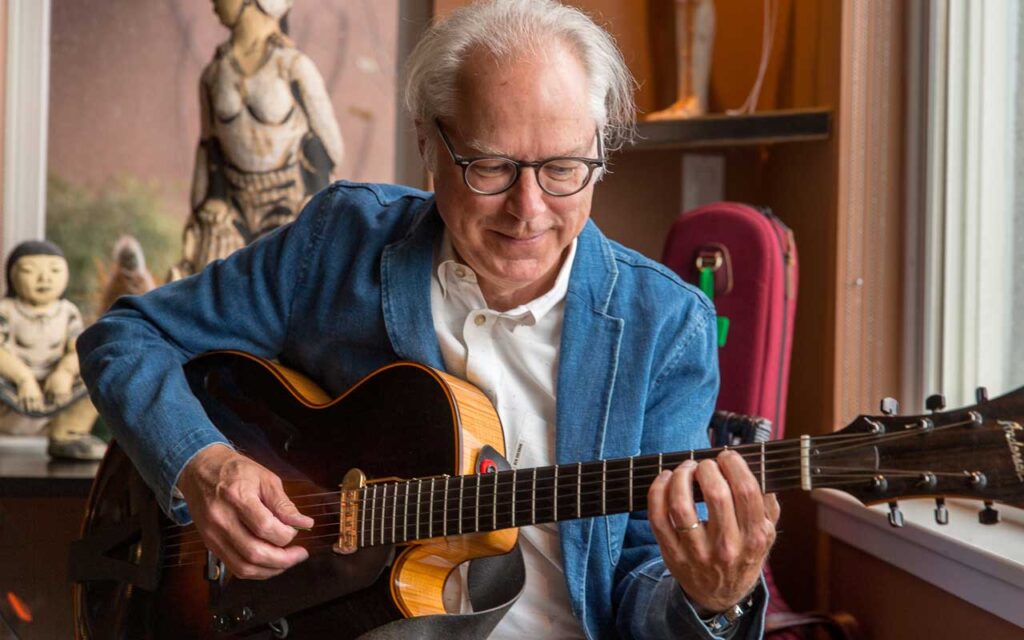
Bill Frisell Trio featuring Luke Bergman & Tim Angulo
Fri Mar 13, 8 PM / Moore Theatre
Iconic guitarist Bill Frisell celebrates his 75th birthday by returning to Seattle for a special appearance at the Moore as part of his national tour. Frisell has been a major influence in the jazz guitar world, revolutionizing the instrument in jazz in terms of approach, sound and instrument choice. Bassist Luke Bergman was born in Pullman and raised in Ellensburg. He has a close assoication with Frisell from years together at the University of Washington. He is an innovator on guitar and pedal steel as well. New York based drummer Tim Angulo rounds out this trio that will no doubt be in exploration mode throughout the evening, armed with the advantage of familiarity.
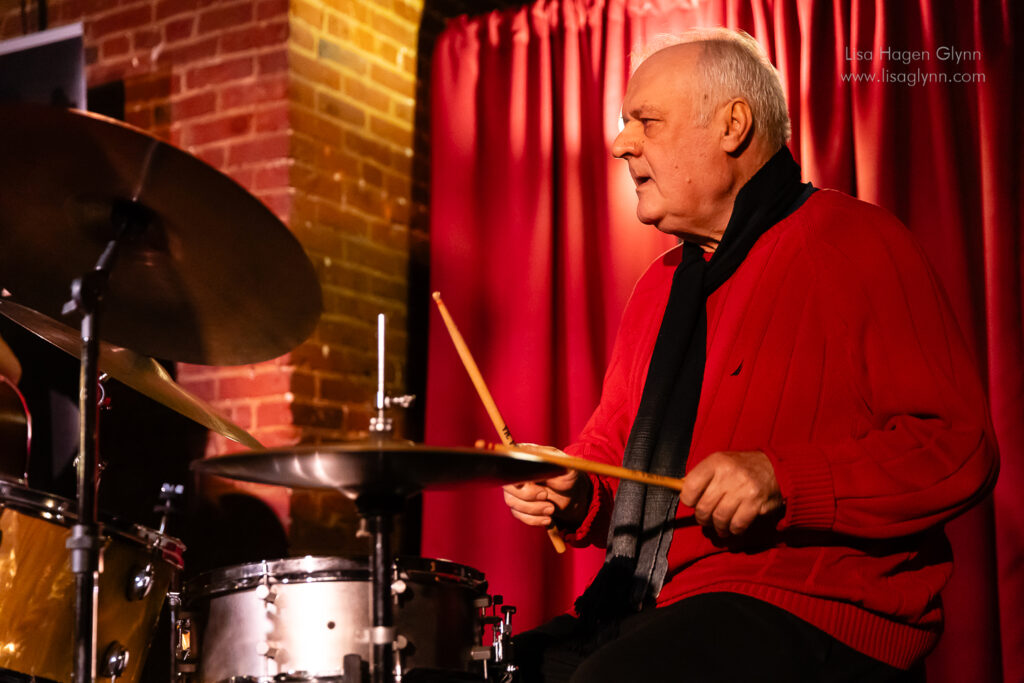
Beri Purlovsky Quartet
Fri Mar 13, 7:30 PM / Seattle Jazz Fellowship- 103 S. Main St.
Drummer Beri Purlovsky has been a constant on the Seattle scene in recent times- but certainly not as a leader. Yet if you have attended local jam sessions, you have likely seen him play. The Croatia born Purlovsky was a mainstay on the San Francisco scene for many years. He has assembled a formidable band for his Seattle Jazz Fellowship debut, with first-call bassist Michael Glynn, vibraphonist Jacques Willis and pianist Tim Kennedy on the gig. The veteran drummer has not played a significant date as a leader in town to my knowledge, so it is hard to truly put the proper bent on what to expect on this evening- but the band is full of talent, making this a good bet for area jazz fans. http://seattlejazzfellowship.org
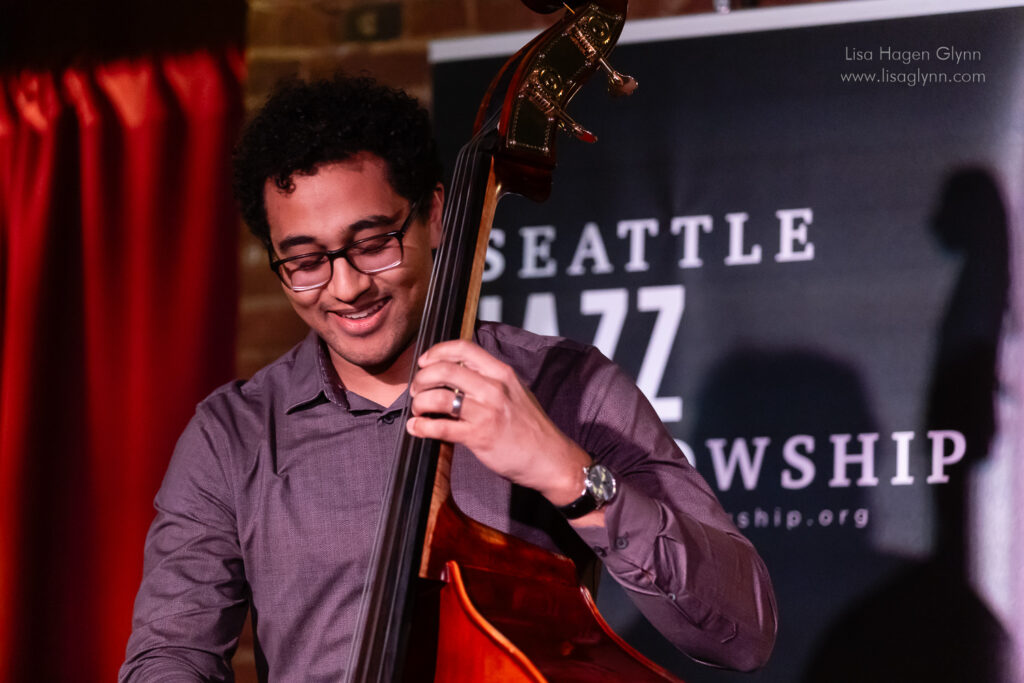
Trevor Ford & Pico Trio
with Martin Budde & Dylan Hayes
Sat Mar 14, 7:30 PM / Seattle Jazz Fellowship- 103 S. Main St.
Bassist Trevor Ford, guitarist Martin Budde and pianist Dylan Hayes have been playing a restaurant gig under the name, Pico Trio, an effort that does not include a drummer. When you consider the top shelf quality of the players involved, it becomes a chamber-like jazz ensemble of three equal parts. The threesome plays originals and interpretations of jazz standards and selected pop tunes. All three are very versatile players, giving the trio the ability to move in a wide variety of directions. Budde is a jazz guitarist with roots in bluegrass and Americana, Hayes an excellect composer and arranger to add to his formidable chops as a pianist. Ford is well known to area jazz fans as the bassist in Thomas Marriott’s Seattle quartet, but has been performing as a leader- this being his third hit at SJF. He swings with great ease and definitive post-bop roots. This should be a fun night, led my musicians that have integrated themselves into the Seattle jazz community on a steady basis. http://seattlejazzfellowship.org
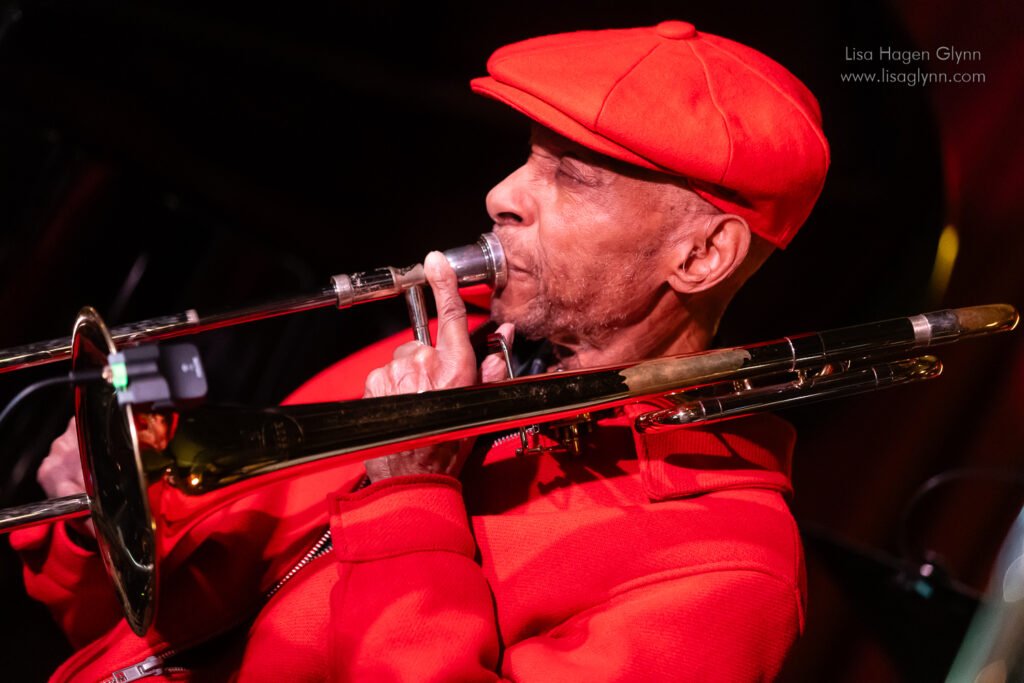
Julian Priester & Priester’s Cue
Fri Mar 20, 7:30 PM / Seattle Jazz Fellowship- 103 S. Main St.
Legendary trombonist Julian Priester settles in with familiar company for the second installment of his monthly residency at SJF. Priester was on staff at Cornish with pianist Dawn Clement for many years, in the process, developing an important musical alliance. The album In Deep End Dance chronicles this quartet that includes bassist Geoff Harper and drummer Byron Vannoy. This band, like their album, requires that you go all in as a listener- with each listen, one hears something new, something fresh. Priester’s ideas, decision making process, tonal mastery and pure emotion always brings his audience to a special place. At 90 years old, the flame still burns brightly, as was evidenced by his February performance at SJF. Priester, the artist-in-residence at SJF is a Seattle treasure, and one that continues to gift our community with wonderful, spontaneous moments. http://seattlejazzfellowship.org
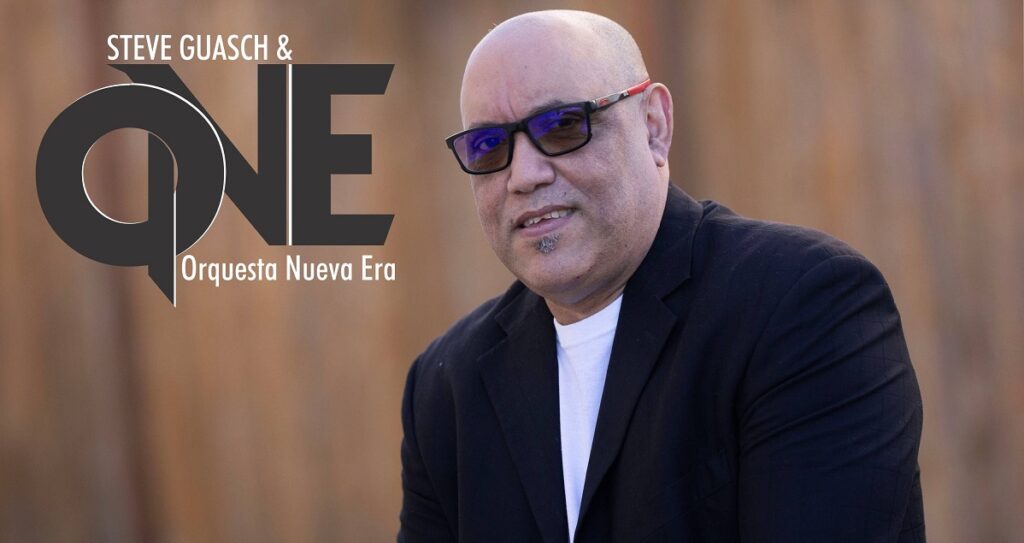
Steve Guasch & ONE Album Release Concert
Fri Mar 20, 7:30 PM / The Triple Door Mainstage
Steve Guasch and ONE (Orquesta Nueva Era) celebrate their new Salsaneo Records release, Buscando La Verdad with a performance at the Triple Door featuring internationbal salsa stars and the best of Seattle’s vibrant Latin Jazz scene. International stars include Cuban drummer Calixto Oviedo, trumpeters Luis “Papo” Marquez and Haile Uriarte and bassist Maximo Rodriguez. Vocalists Francis Rosa Velez, Miguel Angel Baez, Josean Rivera and Carlos Cascante complete this all-star cast.
The Seattle based contingent within the orchestra includes pianist /arranger Julio Jauregui, Grammy nominated Cuban cuatro master, Kiki Valera, trumpeter Mike Mines, trombonists Nathan Vetter and Audrey Stangland and saxophonist Ted Dortch. The performance is financed by a 4Culture grant written by Seattle percussionist Tor Dietrichson. This should be a superb show for area Latin jazz fans, as well as those who wish to be introduced to the music. https://tickets.thetripledoor.net/eventperformances.asp?evt=2216
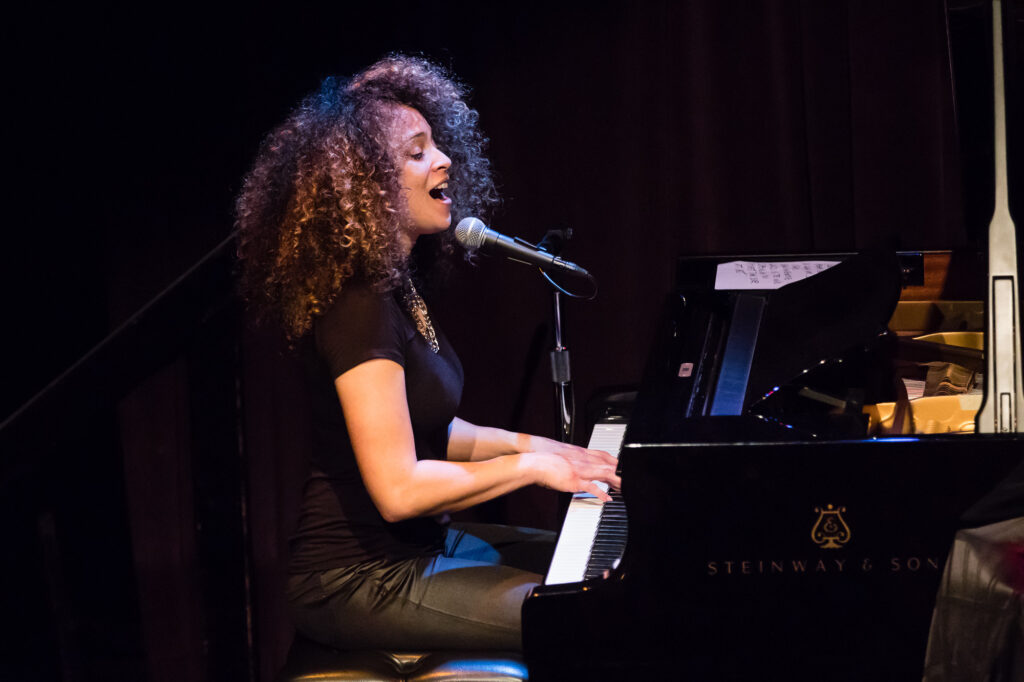
Kandace Springs Trio
Mar 26-Mar 29, 7:30 & 9:30 PM / Jazz Alley
Kandace Springs returns to Jazz Alley for a six show run. Springs is an excellent jazz vocalist and pianist, leading a long-tenured trio that is well worth the effort to get down to Belltown and have a nice evening at the Alley. Bassist Caylen Bryant and drummer Camille Gainer join Springs in a format that features Springs originals and a healthy portion of standards interpreted in soulful ways. One of the better jazz vocal artists on the scene, she is known specifically as a great live performer with a great rapport with her audience. https://www.jazzalley.com/www-home/artist.jsp?shownum=8754
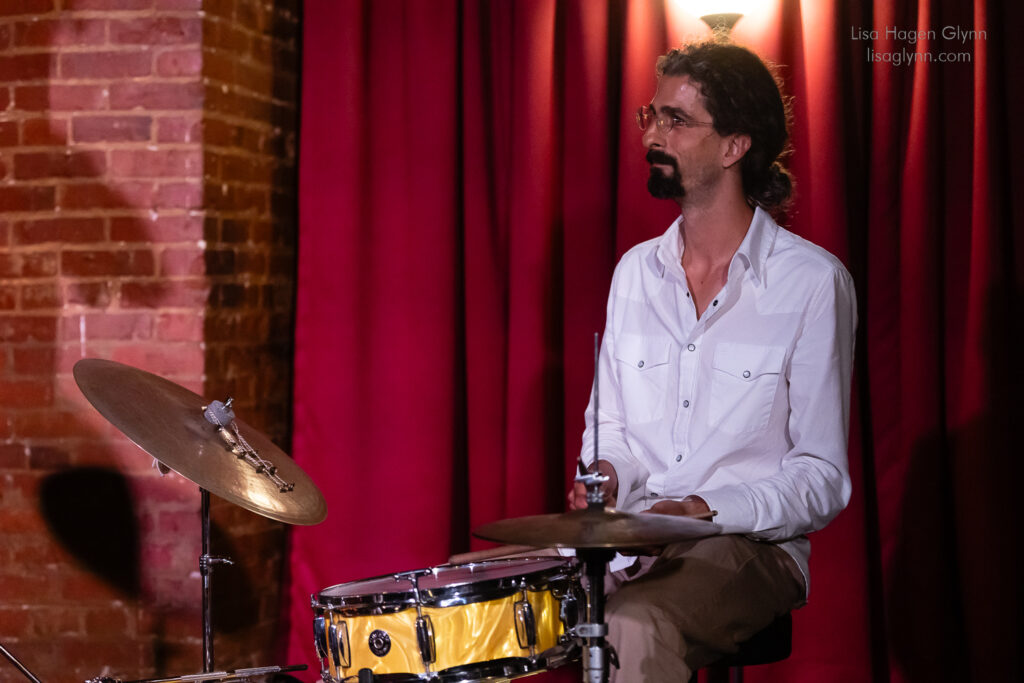
Will Lone Quartet
Thu Mar 26, 7:30 PM / Seattle Jazz Fellowship- 103 S. Main St.
Drummer Will Lone makes his debut as a leader at SJF, leading a quartet of eclectic Seattle players. Pianist Josh Rawlings and bassist Abbey Blackwell are formidable additions to the rhythm section, while tenor saxophonist Joel Steinke completes the foursome. Steinke is a bit underappreciated- a vibrant player with a classic tenor sound, he seems the perfect fit for this band. Blackwell hasn’t been around the Fellowship much, so a great opportunity to see her perform with a prime selection of bandmates. Rawlings is a versatile player with deft touch and great ideas behind the piano. This performance is a culmination of an interesting journey for Lone, who frequents the jam at SJF as well as supporting other artist’s gigs. He is a formidable talent- the hope here is that the gig is well supported. seattlejazzfellowship.org
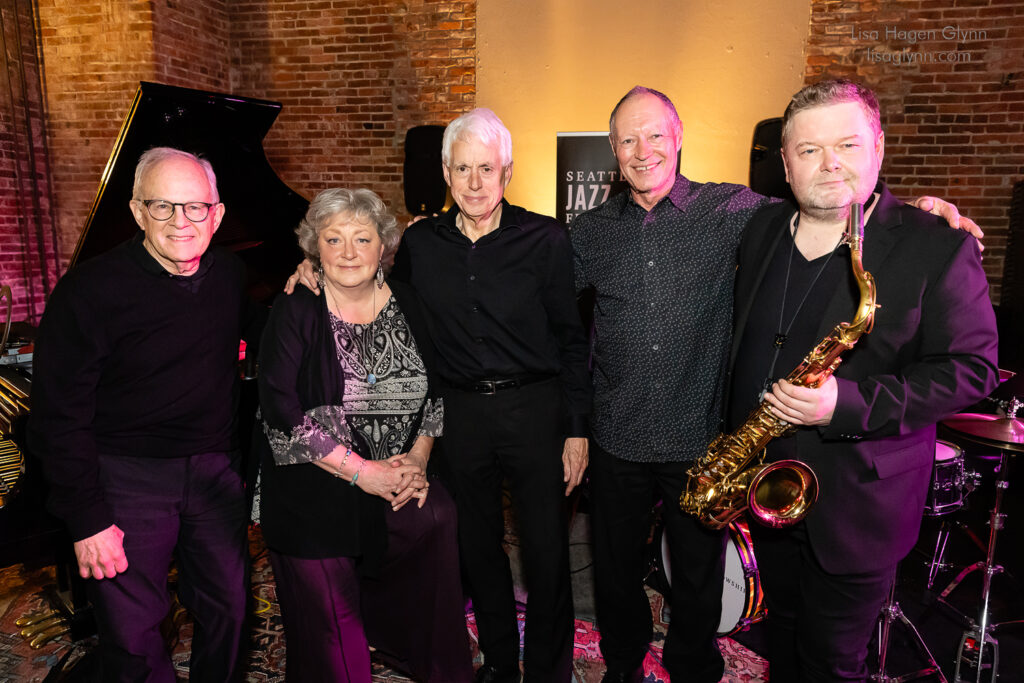
Greta Matassa Quintet
Sat Mar 28, 7:30 PM / Seattle Jazz Fellowship- 103 S. Main St.
Here I am atop my Greta Matassa soapbox again- but hey, it’s a fine and true place to be, because her artistry continues to astound after all this time. Matassa has not only impacted Seattle jazz deeply as a vocal artist of the highest order, but her role as a mentor to jazz vocal culture in the region has raised the bar for jazz singers from Seattle and beyond. Her band is killin’ as well, and better yet, she let’s them play things out. I know this date will draw the usual support from her long tenured legion of fans, but here’s to hoping that a few of you who haven’t sampled her sublime talent, will attend in the perfect space to do so. http://seattlejazzfellowship.org

Samantha Boshnack Uncomfortable Subtet
Sun Mar 29, 7:30 PM / Royal Room
It’s been a while since Samantha Boshnack has come up with a new project, so this is a welcome item to the Seattle music calendar. The trumpeter / composer is known for her adventurous narrative statements that include angular melodies and many moving parts through the melodic and harmonic elements of her sound. No, this isn’t jazz exactly, but the music is rooted in that spirit, with a “new music” vibe that taps into the most adventurous forms of composition. Boshnack describes herself as a jazz composer, essentially because that’s where the open space lies between her musical world and ours. The result is something confoundingly original with the ability to allow you to have different insights into the nature of the connection of all world sounds. If you follow Boshnack, you know of which I speak- if not, you should hit the Royal Room for a Sunday night introduction. https://www.earshot.org/event/samantha-boshnack-premieres-uncomfortable-subtet/
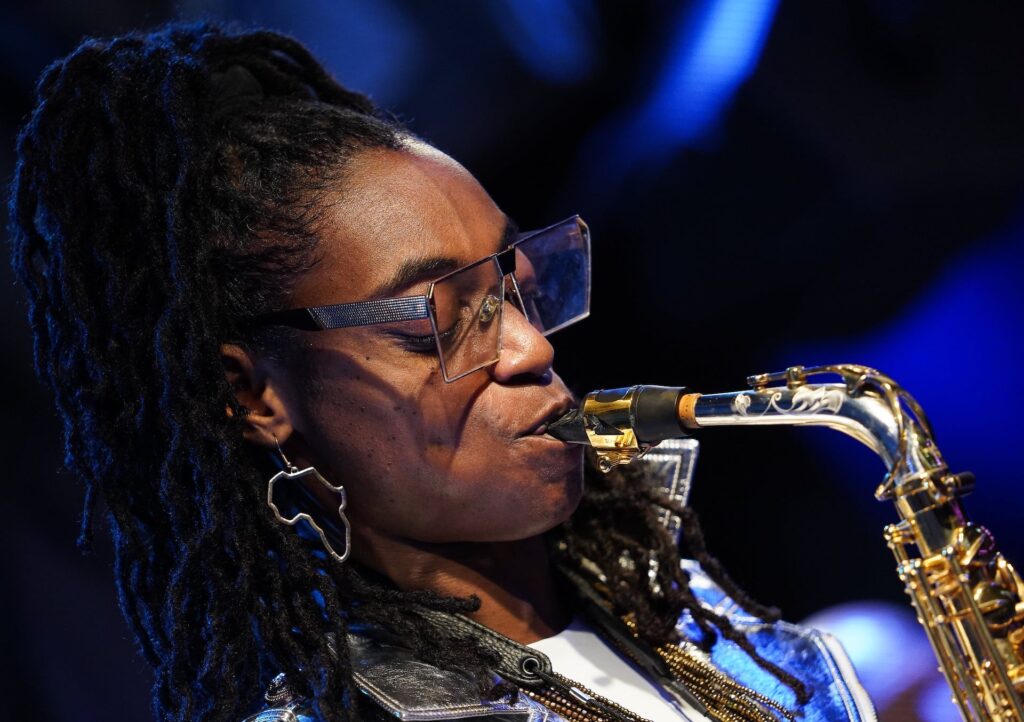
Lakecia Benjamin and Phoenix
Tue Mar 31 -Wed Apr 1, 7:30 PM / Jazz Alley
I will admit to warming up slowly to alto saxophonist Lakecia Benjamin. I believe it was all the Coltrane name-dropping that took place with her launch as a recording artist in jazz. I’ve come to realize that in a way, she was victimized by the basic tenets of jazz commodicication- that being said, she storms into Seattle after a whirlwind 2025. Pianist Oscar Perez, bassist Elias Bailey and drummer Quentin Baxter are all formidable, making this a great opportunity to dig Benjamin’s own legacy aside from all the media expectations. She can play, and the results should be great fun. https://www.jazzalley.com/www-home/artist.jsp?shownum=8760
